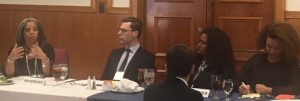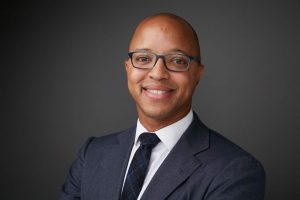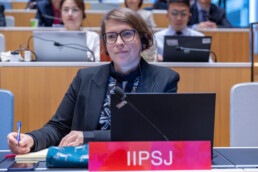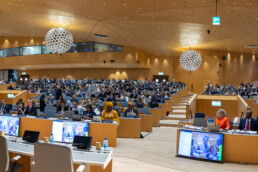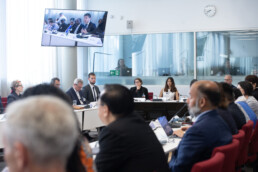RECOMMENDED PRO BONO & AFFORDABLE LEGAL SERVICES
This catalogue of legal clinics and law resources represents some of the free and reasonably affordable legal services available to anyone in need.
CLE Registration
Click the link below to register. The program annually qualifies for 4-6 CLE credit hours, including 1 hour of Ethics credit. CLE sign-up sheets will be on-site and CLE accreditation will be emailed after the program. 2019 CLE credit applications will be filed in California, Delaware, New Jersey, New York, Ohio, Pennsylvania, and Virginia. Additional fees may apply for applying for credit in additional states.
| Registration Fees |
| $150 All registrants not listed below |
| $50 Howard University Alumni, or multiple registrants from the same organization (unless listed below) |
| Registration is free for all Non-Profit, Governmental/Judicial, Public Interest Lawyers, and Full-time academic attendees. |
The first 50 individuals to contact us will receive free registration.
Venue and Directions
The 2019 IIPSJ CLE will be held at the Howard University School of Law in Washington D.C. The address for the law school is:
Howard University School of Law
2900 Van Ness St., N.W.
Washington D.C. 20008
Located in the beautiful Northwest district of Washington, DC, near the National Zoo, the Howard University School of Law is accessible by car, taxi, or Metro.
Driving Directions
Take Connecticut Avenue to Van Ness Street.
Turn east on Van Ness Street, and proceed past apartment buildings on both sides of the street.
The school is at the end of the cul-de-sac on Van Ness.
Parking is limited; Metro is recommended.
Metro Directions
Take the Red Line to the Van Ness/UDC station.
Take the Connecticut Avenue East Exit and walk left on Connecticut for two blocks until you reach Van Ness.
Turn left on Van Ness and proceed past apartment buildings on both sides of the street.
The Law School buildings face a circle at the end of the cul-de-sac.
IIPSJ IP Law and Policy Think Tank
From its inception in 2002, IIPSJ has developed and disseminated forward-looking ideas about social justice perspectives on and implications of intellectual property law. One of its earliest actions was sponsoring a symposium on IP and social justice which resulted in a number of published articles. It has also started an online library of relevant works. IIPSJ’s principals have presented papers, published articles, infuse their IP courses with social justice perspectives, and advocated social justice positions on various public issues.
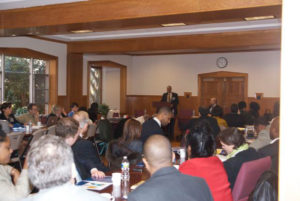
In 2010 IIPSJ formalized this aspect of its social justice work with the creation of the IP Law and Policy Think Tank. The IIPSJ Think Tank works with ideas, of course, and it also actively engages target audiences both in the development and implementation of impact programs. While the Think Tank is always examining issues from the perspective of the effect of choices on social justice concerns, the IIPSJ Think Tank is structured flexibly to adapt to the evolving IP environment and various issues it presents.
The Think Tank's core activities are:
- Organizing and hosting scholarly symposia and policy roundtables,
- Hosting and sponsoring visiting scholars and fellows to introduce and develop topical initiatives and permanent programs;
- Conducting and sponsoring targeted research on social justice implications of IP law, policy, and administration;
- Writing, presenting, and distributing position statements and comments on IP-related initiatives by the United States and in the international realm;
- Developing and maintaining Information repositories and other resources for scholars, policymakers, IP creators, IP users, and IP entrepreneurs;
- Collaborating with other NGOs, pedagogical institutions, and IP-interest entities on each of these to further IIPSJ’s social justice objectives; and
- Developing and implementing programs ranging from professional conferences to workshops to hands-on mentoring and provision of services on identified issues.
The IIPSJ Law and Policy Think Tank is the only think tank dedicated to evaluating IP law and policy and related issues from the social justice perspectives of inclusion and empowerment. The Think Tank functions as an incubator for social justice-oriented IP legislative development and amendment; IP Civil Rights activism and community awareness, education, entrepreneurship, and empowerment; and scholarly and professional involvement on important national and international IP law and policy controversies.
The IIPSJ Think Tank uses a multi-disciplinary approach, designed to steward IP law and policy toward a more socially cognizant and equitable IP regime. The IIPSJ Think Tank generates and facilitates collaboration and discourse among legal, scientific, and economic scholars, as well as legislators, policymakers, jurists, practicing attorneys, and civil rights and social activists; conducts research, legislative briefings, public comments, and publications; and promotes and organizes community, activist, and professional coalition building.
The 2011-12 Think Tank program is designed to build upon the important relationships developed in the past year and to capitalize on IIPSJ’s unique achievements and national reputation. Through its past efforts and current plans, the IIPSJ Think Tank is well poised to become a prominent voice for IP-related social justice and civil rights interests.
Among its activities in the 2010-11 program year, the IIPSJ Think Tank:
- Organized the first National IP Social Justice Summit of IP government officials, policymakers, scholars, professionals, and community leaders;
- Conducted a Congressional Policy Briefing on IP and Civil Rights;
- Organized and hosted an IP and Social Justice Scholars Roundtable;
- Prepared and disseminated position papers and submitted comments to Congress and various governmental agencies regarding IP law and policy issues.
In 2011-12, the IIPSJ Think Tank will continue to do such work with particular emphasis on:
- A Legislative IP Social Justice Awareness Initiative, through which it will prepare and submit position statements, public comments, legislative proposals, and otherwise provide information to Congress and other legislative and governmental authorities regarding IP law amendment, enforcement, and social justice interests;
- An IP and Civil Rights Activism Project, through which it will further organize an IP Civil Rights Coalition for IP education, activism, and Digital Entrepreneurship; and
- An IP Scholar Activist Project, through which it will conduct and sponsor scholarly research, conferences, and publications intended to heighten legislative, judicial, practitioner, and social activist awareness of domestic and international IP social justice issues and options for change.
GSR Inn of Court
The Giles S. Rich Inn of Court for the Court of Appeals for the Federal Circuit
The Giles S. Rich Inn of Court is a professional organization dedicated to advancing the principals of civility and service in the legal profession. One of the Inn's major priorities is providing mentorship and support to newly admitted attorneys and law students interested in IP practice. Each year the Inn invites the participating law schools to select up to four students to participate as Pupil members in all of the Inn's programs and activities.
SInce IIPSJ's founding in 2002, it has developed a strong working relationship with the Giles S. Rich Inn of Court t for the Federal Circuit. IIPSJ Director Lateef Mtima is the current (2009-10) President of the Inn. He has been a member of it since 2003 and has held several other leadership positions in it. (President, ‘09-‘10; Vice-President, ‘08-‘09; Program Chair, ‘05-‘06; Mentoring and Scholarship Chair, ‘04-‘05).
Each year IIPSJ at HUSL's relationship with the GSR Inn provides four HUSL IP students with an especially valuable opportunity of being student members of the Inn of Court even before they become members of the bar. This provides an unparalleled opportunity for students to meet with and learn from practicing lawyers.
Student Honors
IIPSJ Student Honors
Awards earned by students in 2005
Tameka Simmons '05
Ms. Simmons won the 2005 Jan Jancin Award for demonstrating excellence in intellectual property law. Ms. Simmons stands out through her remarkable service, while still a law student, in furthering IP pedagogy at the law school and in CLEs, through her dedication and service to IIPSJ and related HUSL programs, and to the IP Bar. The Jan Jancin Award is a national IP award open to all law schools (a number of whom have large IP and technology transfer programs) and to all of their students. This award is sponsored by the American Intellectual Property Law Association (AIPLA), the American Intellectual Property Law Education Foundation (AIPLEF), and the Intellectual Property Section of the American Bar Association.
Letoria House '06
At the 2005 annual Giles S. Rich Inn of Court Dinner (at which Sen. Patrick Leahy was the keynote speaker), Letoria House received the Giles S. Rich American Inn of Court Scholarship. This award is bestowed upon a recently admitted lawyer or a law student who has contributed significantly to the Inn as measured by "the degree and quality of participation" and by the person's "contribution to fulfilling the Inn's Mission." Part of the Inn's mission to further the principles of civility, professionalism, and competence in the practice of law. The GSR Scholarship is open to junior Inn members practicing throughout the DC/Maryland/Virginia region and to the student members of the GSR Inn from the five participating law schools (HUSL, Georgetown, Catholic, American, and George Mason).
Stephanie Harris '07
On the eve of her matriculation to HUSL, Ms. Harris became HUSL's first recipient of a Sidney B. Williams, Jr. Intellectual Property Law Scholarship sponsored by the American Intellectual Property Law Education Foundation. This scholarship is open to minority students throughout the nation. It is awarded to minority students with demonstrated accomplishment and potential in the field of IP practice. Ms. Harris's scholarship was renewed in 2005 on the basis of her continuing accomplishments as a HUSL student.
On a related note, Sid Williams, for whom the scholarship is named, is a great friend of HUSL, having served as IIPSJ's inaugural keynote honoree when IIPSJ was launched in 2002.
Internships
IIPSJ at HUSL Internship & Clerkship Programs
IIPSJ, Inc.'s Program at HUSL includes helping place students in internships and clerkships, especially in IP-related settings.
Information is available at
Judicial Clerkship
The 2011 program will be held on Saturday, Oct. 20, 2011, at Georgetown University Law Center.
The JCIC is an annual program sponsored in part by the Institute for Intellectual Property & Social Justice that brings judges and judicial clerks from around the Washington, D.C., Virginia, and Maryland area to a Washington area law school to meet with law students to provide information about judicial internships and clerkships.
Flyer pdf
When: Oct. 20, 2011
Where: Georgetown University Law Center
What:
- Learn about judicial clerkships and internships from judges and law clerks
- Meet judges from federal and state trial, administrative, and appellate courts
- Hear Judges and law clerks describe the work of their courts and their own experiences
- Understand the application process and the selection criteria for clerkships and internships
Complimentary breakfast and lunch provided.
Registration
register at https://bitly.com/jcic2011rsvp
Sponsoring Organizations
- American University Washington College of Law
- Asian Pacific American Bar Association of the Greater Washington, D.C. Area
- Asian Pacific American Bar Association of Maryland
- Asian Pacific American Bar Association of Virginia, Inc.
- APABA Educational Fund
- George Washington University Law School
- Georgetown University Law Center
- Hispanic Bar Association of the District of Columbia
- Howard University School of Law
- Institute for Intellectual Property and Social Justice, Inc.
- South Asian Bar Association of the District of Columbia
- Vietnamese American Bar Association of the Greater Washington, D.C. Area, Inc.
IIPSJ Education and Outreach
From its inception in 2002, IIPSJ has conducted programs to reach out to the bench and bar and to government officials through workshops and seminars as well as through participation in professional organizations such as the Giles Rich Inn of Court and the American Intellectual Property Association. One of IIPSJ's earliest conferences was a continuing legal education program designed for lawyers and judges. The CLE has been done annually ever since.
Over the years IIPSJ has sponsored or participated in various outreach initiatives and programs to educate undergraduates and community members about IP and its opportunities. This aspect continues to grow through partnering with the NAACP, the USPTO, Sramani, and with other organizations for particular programs.
IIPSJ at Howard University School of Law (HUSL) is designed to provide interested students with the tools needed to succeed as IP attorneys and advocates. IIPSJ at HUSL supports the IP curriculum, mentors students academically and professionally, supports student IP and entertainment law organizations, and sponsors outside speakers for various informational student programs.
IP Empowerment Program
General Information
IIPSJ has an ongoing IP Empowerment Program working to empower marginalized communities economically, socially, and politically through their development, use, and lawful exploitation of IP. One of the steps in this ongoing program was the IP Empowerment Summit held on November 5, 2010. (In addition to the information below, the Summit Circular can be downloaded in pdf form.) Ongoing work is being done by committees and interest groups working on particular projects identified at the Summit and through partnering with the USPTO, NAACP, and other organizations.
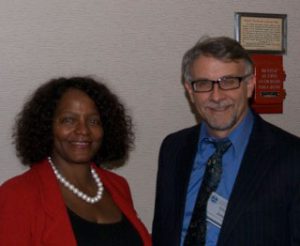
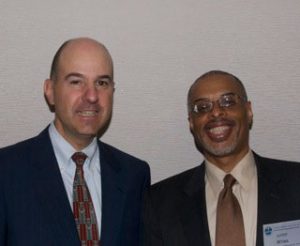
IIPSJ IP Empowerment Summit
On November 5, 2010, the Institute for Intellectual Property and Social Justice (IIPSJ) conducted its first National IP Empowerment Summit at the Howard University School of Law. The IP Empowerment Summit brought together a diverse group of IP professionals, including IP lawyers from private practice, in-house counsel, and academia, to collaborate with legislators and public interest and community activists to devise strategies for community development built around artistic works and technological innovation.
IIPSJ IP Summit Empowerment Committees will be formed to create both discrete plans on particular topics and to collectively construct a blueprint to help educate and empower socio-economically marginalized communities to protect and commercially exploit their own IP works for their own benefit. We expect these efforts to lead to the establishment of IP Empowerment Zones in strategic urban locations. The groups to be served include associations of artists; students in fine arts, engineering, and science degree programs; community development association; and inventors. IIPSJ IP Summit attorneys will also work to empower attorneys serving these communities to develop the competencies and skills to carry out this work.
IP practitioners from a variety of law firms, in-house counsel departments, academic institutions, and public interest organizations have committed to participate in the IP Empowerment Summit, and plans are underway to link this program to similar initiatives around the nation.
The Need for IP-Focused Empowerment Strategies
In today's information-based economy, economic power is often dependent upon intellectual property. Consequently, IP attorneys can and should take the lead in empowering minority and other marginalized communities to compete for and attain a stake in the 21st century economy. Stimulating an increase in ethnic diversity within the intellectual property bar is a major objective of the Summit, and is a key means to implement the empowerment strategies.
IIPSJ IP Empowerment Summit Core Principles and Objectives
The core principles underlying IIPSJ's community IP empowerment program are:
- Education about IP rights and their value is central to the tasks at hand;
- Helping protect IP rights is a necessary step toward beneficial exploitation of the IP rights;
- Entrepreneurial values and skills are necessary for success of the program; and
- Political activism and legislative lobbying will play a valuable part in any such undertaking.
The one-day IP Empowerment Summit will bring together patent, trademark and copyright attorneys, other IP professionals, and members of the public interest and community action sectors, to meet, discuss, learn, and network about how they can implement the underlying principles through:
- Diversifying the field of IP practice;
- Empowering minority and marginalized communities through the vehicle of IP protection and exploitation; and
- Sharing best practices in an effort to further their professional careers and ascend to strategic positions through which to effectuate social change.
IP Empowerment Summit Pilot Community Programs
The IP Empowerment Summit will function as a clearinghouse of valuable information concerning minority artists, inventors, entrepreneurs, and IP professionals. Information regarding market opportunities and business development trends will also be developed as will a national database of minority IP lawyers. Much of this information will be captured at the Summit and then disseminated through IIPSJ’s website (www.iipjs.org). Summit participants will be invited to join permanent IP Empowerment Action Committees to assess and use the data, and to deploy the IP empowerment agenda through various community programs which include:
Minority Students in Science and Engineering Road Show
This program will engage law students, attorneys, and academicians in the development and presentation of "IP Road Show" programs designed to expose undergraduate minority science, engineering, and fine arts students to the fundamentals of IP law. The twin objectives of this program are to apprise students of information needed to exploit successfully their creative works as well as to expose them to the option of pursuing legal careers in the IP field.
Community IP Rights and Education Program
This program will educate high school and college students as well as community creative artists and inventors about the interconnected themes of the nature of intellectual property rights and of the value of exploiting creator's and inventor's rights. Law students and practicing IP attorneys will undertake to familiarize members of the target communities with the benefits of IP protection, and to help them to more fully appreciate that they are both creative artists and inventors as well as IP end-users. Community artists and inventors will learn how weak creator/inventor rights diminish their own prospects for IP-related economic empowerment. The program will include exploration of public domain material as a preferred source for user-generated content and private innovation since such material has fewer legal restrictions and concomitantly greater prospects for entrepreneurial success.
IP Talent Development Program
This program will bring together IP professionals and entrepreneurs to assist marginalized creative artists and inventors in the propitious exploitation of their creative output in the digital age. Sponsored community workshops and laboratories will provide development facilities, IP-related educational and vocational information, and opportunities for artistic license arrangements and technology transfer agreements.
IP Empowerment and Political Activism Project
This multi-faceted project will seek to increase public awareness and understanding of IP, will engage in political activism through community building around IP issues, and will function as a legislative developments think tank. IP professionals, educators, and public interest and community activists will collaborate on policy initiatives and lobbying efforts intended to impact IP legislation and government initiatives to ensure a close fit between IP rights and empowerment of minorities and other marginalized groups.
IIPSJ Program Date: November 5, 2010
The schedule for the IP Empowerment Program may be downloaded in PDF form.
Sponsors and Supporters
Past internship Placements
Awards earned by students in 2005
Tameka Simmons '05
Ms. Simmons won the 2005 Jan Jancin Award for demonstrating excellence in intellectual property law. Ms. Simmons stands out through her remarkable service, while still a law student, in furthering IP pedagogy at the law school and in CLEs, through her dedication and service to IIPSJ and related HUSL programs, and to the IP Bar. The Jan Jancin Award is a national IP award open to all law schools (a number of whom have large IP and technology transfer programs) and to all of their students. This award is sponsored by the American Intellectual Property Law Association (AIPLA), the American Intellectual Property Law Education Foundation (AIPLEF), and the Intellectual Propert Section of the American Bar Association.
Letoria House '06
At the 2005 annual Giles S. Rich Inn of Court Dinner (at which Sen. Patrick Leahy was the keynote speaker), Letoria House received the Giles S. Rich American Inn of Court Scholarship. This award is bestowed upon a recently admitted lawyer or a law student who has contributed significantly to the Inn as measured by "the degree and quality of participation" and by the person's "contribution to fulfilling the Inn's Mission." Part of the Inn's mission to further the principles of civility, professionalism, and competence in the practice of law. The GSR Scholarship is open to junior Inn members practicing throughout the DC/Maryland/Virginia region and to the student members of the GSR Inn from the five participating law schools (HUSL, Georgetown, Catholic, American, and George Mason).
Stephanie Harris '07
On the eve of her matriculation to HUSL, Ms. Harris became HUSL's first recipient of a Sidney B. Williams, Jr. Intellectual Property Law Scholarship sponsored by the American Intellectual Property Law Education Foundation. This scholarship is open to minority students throughout the nation. It is awarded to minority students with demonstrated accomplishment and potential in the field of IP practice. Ms. Harris's scholarship was renewed in 2005 on the basis of her continuing accomplishments as a HUSL student.
On a related note, Sid Williams, for whom the scholarship is named, is a great friend of HUSL, having served as IIPSJ's inaugural keynote honoree when IIPSJ was launched in 2002.
Further Commentary on the Washington NFL Football Team Trademark
As we settle into 2015, we thought you might be interested in a commentary regarding the continuing debate surrounding the name of the Washington NFL football team, Missing the Point: The Real Impact of Native Mascots and Team Names on American Indian and Alaska Native Youth, written by Eirk Stegman, Associate Director of the Half in Ten Education Fund at the Center for American Progress, and Victoria Phillips, who teaches intellectual property and communications law at American University Washington College of Law and is the Director of the Glushko-Samuelson Intellectual Property Law Clinic. Stegman and Phillips discuss the psychological impact of the team’s controversial appellation, noting that “…too much of the debate misses the point. It is not just about a name, a logo, a business, or a matter of intent. Racist and derogatory team names have real and harmful effects on [American Indian and Alaska Native] people every day, particularly young people.” Among other things, the authors note that “AI/AN students across the country attend K-12 and postsecondary schools that still maintain racist and derogatory mascots.
Research shows that these team names and mascots can establish an unwelcome and hostile learning environment for AI/AN students. It also reveals that the presence of AI/AN mascots directly results in lower self-esteem and mental health for AI/AN adolescents and young adults. And just as importantly, studies show that these mascots undermine the educational experience of all students, particularly those with little or no contact with indigenous and AI/AN people. In other words, these stereotypical representations are too often understood as factual representations and thus “contribute to the development of cultural biases and prejudices.”
To read the full commentary, follow the link at https://www.americanprogress.org/issues/race/report/2014/07/22/94214/missing-the-point/
IIPSJ IP and Civil Rights Conference | 2012
IIPSJ's IP and Civil Rights Conference was held on Thursday, May 17, 2012 at the Howard University School of Law. Rev. Jesse Jackson Sr. was the keynote speaker. The conference brochure in pdf form is available for download. The conference was cosponsored by IIPSJ and the Black Leadership Forum (BLF).
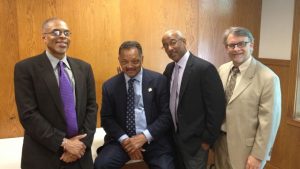
From left to right: IIPSJ Director Lateef Mtima; Rev. Jesse Jackson; Prof. Roger Groves (Fla. Coastal School of Law); IIPSJ Assoc. Dir. Steven Jamar at IIPSJ IP and Civil Rights Conference - May 17, 2012.
Recently Released Book
Professor Lateef Mtima, along with several other authors, recently released a book that is now available for purchase. Click here for more information!
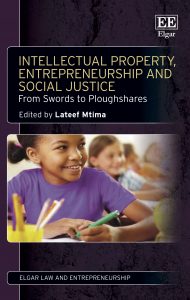
In the Information Age, historically marginalized groups and developing nations continue to strive for socio-economic empowerment within the global community. Their ultimate success largely depends upon their ability to develop, protect and exploit their greatest natural resource: intellectual property. Through an exploration of the techniques used in social entrepreneurship, Intellectual Property, Entrepreneurship and Social Justice provides a framework by which historically marginalized communities and developing nations can cooperate with the developed world to establish a socially cohesive global intellectual property order. Divided into four parts, knowledgeable contributors discuss topics surrounding entrepreneurship and empowerment, education and advocacy, engagement and activism and, finally, commencement toward “IP Empowerment”. Experts in the field, scholars, law professors and students of intellectual property, human rights and international trade and development will find this book to be both resourceful and thought-provoking.
Race + IP
IIPSJ is a co-sponsor for the RACE + IP Summit held at Boston College April 20-22. The conference will feature five plenary sessions which develop and engage the subfield of critical race IP, concurrent sessions with scholars across disciplines conducting multimethodological research, roundtable discussions on special topics related to race and intellectual property (e.g. the intersections of social media, algorithmic culture, and racial justice), and a special presentation by Chinatown Dance Rock band and trademark renegades, The Slants. Accepted participants will be invited to participate in these and other conference events, including a Saturday evening dance party cocktail reception.
Comments to U.S. Copyright Office
Copy This Podcast
IISPJ’s Director, Lateef Mtima, is a guest on the recent edition of the CopyThis podcast hosted by Kirby Ferguson and presented by the Re:Create Coalition. You can find the podcast along with a full description here on the Re:Create Coalition website. A portion of the description is reproduced below.
Copy This Podcast Episode 5: Copyright Drives the Beat of Social Justice
“…While many may think about copyright law in terms of music, books and movies and how to access them, Lateef Mtima, Professor of Law at the Howard University School of Law and Founder and Director of The Institute for Intellectual Property and Social Justice, points to the Constitution to remind listeners that copyright’s “most important function is to provide people with knowledge, to educate themselves… to share ideas and information.”…
From the Black Lives Matter movement, to the high profile “Blurred Lines” case that has pitted Robin Thicke and Pharrell Williams against Marvin Gaye’s estate, and even led to varying opinions across the full spectrum of the copyright community, Lateef helps bring to light copyright discussions that are playing out in communities and the courts in real time today so be sure to tune in.”
Recent Updates
IIPSJ provides an e-mail newsletter containing updates on intellectual property and social justice developments, issues, and events. If you have a topic suggestion for future updates, please email us at updates@iipsj.org.
To receive the newsletter, please type your email address and click enter in the box on the right side of this page or by sending an email to updates@iipsj.org with the subject line SUBSCRIBE. The most recent edition of the newsletter is posted on this page and past editions on the "Prior Updates" page.
------------------------------------------------------------------------------------------------------------
Recent E-Mail Update
|
||||||||||||||||||||||||||||||
|
Copyright Podcast
Copyright & Social Justice Podcast & Other Articles of Interest
1) IISPJ’s Director, Lateef Mtima, is a guest on the recent edition of the CopyThis podcast hosted by Kirby Ferguson and presented by the Re:Create Coalition. You can find the podcast along with a full description here on the Re:Create Coalition website. A portion of the description is reproduced below.
Copy This Podcast Episode 5: Copyright Drives the Beat of Social Justice
“…While many may think about copyright law in terms of music, books and movies and how to access them, Lateef Mtima, Professor of Law at the Howard University School of Law and Founder and Director of The Institute for Intellectual Property and Social Justice, points to the Constitution to remind listeners that copyright’s “most important function is to provide people with knowledge, to educate themselves… to share ideas and information.”…
From the Black Lives Matter movement, to the high profile “Blurred Lines” case that has pitted Robin Thicke and Pharrell Williams against Marvin Gaye’s estate, and even led to varying opinions across the full spectrum of the copyright community, Lateef helps bring to light copyright discussions that are playing out in communities and the courts in real time today so be sure to tune in.”
2) http://www.eifl.net/news/eifl-marrakesh-guide-launches-nepali
Please see the following information from EIFL on the Marrakesh Treaty:
EIFL is delighted to announce that our popular library guide to the Marrakesh Treaty for persons with print disabilities is now available in Nepali, bringing to six the total number of languages for the guide.
The Marrakesh Treaty, which entered into force in September 2016, gives organizations like libraries the right to reproduce printed works in accessible formats like braille and audio, and to exchange these works across national borders. EIFL has been a strong advocate for ratification of the Marrakesh Treaty and its implementation into national law.
‘The Marrakesh Treaty: an EIFL Guide for Libraries’ is a key resource for librarians supporting ratification and national implementation of the Treaty. The guide provides a straightforward introduction to the Treaty and its key provisions, and concrete recommendations for implementation in order to maximize accessible reading materials available through libraries.
In addition to the new Nepali version, EIFL has published the guide in English, French, Lithuanian, Russian and Serbian.
EIFL would like to thank Mr Pratyush Nath Upreti and colleagues at Upreti & Associates for translating the EIFL Marrakesh guide and for invaluable assistance in producing the Nepali version. We hope it will be a useful resource for librarians, the visually impaired community and policy-makers who are working towards ratification of this important Treaty.
Visit EIFL Resources to download The Marrakesh Treaty: an EIFL Guide for Libraries (Nepali)
3) On April 26 WIPO celebrated World IP Day. This year’s theme was Innovation – Improving Lives. On the WIPO website you can find videos on the topic, including videos by WIPO Director General Curry and innovators such as Consuelo Cano Gallardo, inventor of a downhill skateboard and Arthur Zang, inventor of a cardiac care tablet.
Update on H.R. 1695
Update on H.R. 1695: Should the Register of Copyrights Become a Political Appointee?
For those not familiar with the Register of Copyrights Selection and Accountability Act (H.R. 1695) this Legislative Bill would extinguish the authority of the Librarian of Congress to appoint the Register of Copyrights, a responsibility that the Librarian has held since 1870. There has been relatively little public discussion of the Bill – in fact it has already passed in the House of Representatives. If the Bill is passed by the Senate, the power to appoint and dismiss the Register would shift to the President.
Supporters of the Bill argue that removal of the Librarian’s appointment power is necessary to modernize the Copyright Office. Among the questions that have been raised by the Bill’s proposal, however, is how modernization of the Copyright Office would be aided by making the Register’s appointment a political process. Given the Constitutional directive that the primary function of copyright is to serve the national interest in promoting the progress of the arts and sciences, it seems reasonable to expect that the expert entrusted with curating the national repository of knowledge and culture would also be well-qualified to appoint a Register capable of serving the public interest in the modern administration of the copyright system.
The actual text of H.R. 1695 does not enumerate modernization of the Copyright Office as one of its objectives. Consequently some critics urge that the Bill is actually an effort to benefit the Content Industries at the public’s expense. “This bill serves no purpose other than to take power away from the Librarian of Congress and give it to powerful lobbyists, who will have a major say in who runs the Copyright Office,” writes Michael Masnick on TechDirt.com. “It’s…a gift to Hollywood.” Other critics argue that the Bill is a veiled attack on the current Librarian. According to Laura Burke of NewsOne Now, “President Barack Obama appointed [Dr. Carla] Hayden the 14th Librarian of Congress on February 24, 2016. She is the first African American to hold the position, as well as the first woman to be the Librarian of Congress….On March 23, legislation was introduced to block Hayden from appointing the next Register of Copyrights.”
Both supporters and opponents seem to agree that Dr. Hayden’s reassignment of former Register Maria Pallante, who subsequently resigned, is one issue at the heart of the controversy. In an article in The Hill, H.R 1695 supporters Dina LaPolt and John Meller write that “[T]he Librarian of Congress…is rarely … in tune with copyright issues…to put it mildly…. [L]ast year, without warning or justification, the Librarian fired Register Maria Pallante, long heralded as a fantastic Register and advocate for strong copyright protection.” While serving in her position, Register Pallante publicly expressed the view that “Copyright is for the author first and the nation second.”
Given the important public interest functions that both the Librarian and the Register embody in the copyright system, H.R. 1695 raises important issues of copyright social justice. Attached below is a link to the text of the Bill, as well as links to various commentaries in support of and in opposition to the proposed legislation.
We invite you to post comments and questions on our Facebook page.
IIPSJ
H.R. 1695 Bill Text
https://www.congress.gov/bill/115th-congress/house-bill/1695/text
Commentaries in support of H.R. 1695
Commentaries in opposition to H.R. 1695
http://shareblue.com/house-gop-seizes-power-from-first-black-female-librarian-of-congress/
http://www.blackpressusa.com/house-votes-to-limit-powers-of-first-black-librarian-of-congress/
Send an email to updates@iipsj.org with SUBSCRIBE in the subject line to receive these updates to your inbox.
Copyright & Social Justice Podcast
We thought the following might be of interest to you:
1) IISPJ’s Director, Lateef Mtima, is a guest on the recent edition of the CopyThis podcast hosted by Kirby Ferguson and presented by the Re:Create Coalition. You can find the podcast along with a full description here on the Re:Create Coalition website. A portion of the description is reproduced below.
Copy This Podcast Episode 5: Copyright Drives the Beat of Social Justice
“…While many may think about copyright law in terms of music, books and movies and how to access them, Lateef Mtima, Professor of Law at the Howard University School of Law and Founder and Director of The Institute for Intellectual Property and Social Justice, points to the Constitution to remind listeners that copyright’s “most important function is to provide people with knowledge, to educate themselves… to share ideas and information.”…
From the Black Lives Matter movement, to the high profile “Blurred Lines” case that has pitted Robin Thicke and Pharrell Williams against Marvin Gaye’s estate, and even led to varying opinions across the full spectrum of the copyright community, Lateef helps bring to light copyright discussions that are playing out in communities and the courts in real time today so be sure to tune in.”
2) http://www.eifl.net/news/eifl-marrakesh-guide-launches-nepali
Please see the following information from EIFL on the Marrakesh Treaty:
EIFL is delighted to announce that our popular library guide to the Marrakesh Treaty for persons with print disabilities is now available in Nepali, bringing to six the total number of languages for the guide.
The Marrakesh Treaty, which entered into force in September 2016, gives organizations like libraries the right to reproduce printed works in accessible formats like braille and audio, and to exchange these works across national borders. EIFL has been a strong advocate for ratification of the Marrakesh Treaty and its implementation into national law.
‘The Marrakesh Treaty: an EIFL Guide for Libraries’ is a key resource for librarians supporting ratification and national implementation of the Treaty. The guide provides a straightforward introduction to the Treaty and its key provisions, and concrete recommendations for implementation in order to maximize accessible reading materials available through libraries.
In addition to the new Nepali version, EIFL has published the guide in English, French, Lithuanian, Russian and Serbian.
EIFL would like to thank Mr Pratyush Nath Upreti and colleagues at Upreti & Associates for translating the EIFL Marrakesh guide and for invaluable assistance in producing the Nepali version. We hope it will be a useful resource for librarians, the visually impaired community and policy-makers who are working towards ratification of this important Treaty.
Visit EIFL Resources to download The Marrakesh Treaty: an EIFL Guide for Libraries (Nepali)
3) On April 26 WIPO celebrated World IP Day. This year’s theme was Innovation – Improving Lives. On the WIPO website you can find videos on the topic, including videos by WIPO Director General Curry and innovators such as Consuelo Cano Gallardo, inventor of a downhill skateboard and Arthur Zang, inventor of a cardiac care tablet.
Copyright Office Comments & Race
Copyright Office Comments & Race + IP Summit
Also, as a reminder, IIPSJ is a co-sponsor for the RACE + IP Summit held at Boston College April 20-22. The conference will feature five plenary sessions which develop and engage the subfield of critical race IP, concurrent sessions with scholars across disciplines conducting multimethodological research, roundtable discussions on special topics related to race and intellectual property (e.g. the intersections of social media, algorithmic culture, and racial justice), and a special presentation by Chinatown Dance Rock band and trademark renegades, The Slants. Accepted participants will be invited to participate in these and other conference events, including a Saturday evening dance party cocktail reception.
Matal Tam
Matal v. Tam
On Monday, June 19, 2017, the Supreme Court held that the law prohibiting the federal registration of disparaging trademarks, part of Section 2(a) of the Lanham Act, was unconstitutional as viewpoint discrimination prohibited by the First Amendment guarantee of freedom of speech. Matal v. Tam, https://www.supremecourt.gov/opinions/slipopinion/16. The Court ruled 8-0 on the result and 8-0 on the theory of viewpoint discrimination, but split on a number of other issues considered by the Court. The social justice implications of this decision fall along several lines.
First, those who seek to "reclaim" disparaging words like "dykes" and "slants" will be able to use federally registered trademarks in support of their efforts to do so. This is empowering to such advocates. While some advocates of such "reclamation" strategies may find the Tam decision empowering, some other social justice advocates have raised competing concerns.
Second, the federal government will no longer be able to reject trademarks because they disparage a group or person. Trademarks like, STOP THE ISLAMISATION OF AMERICA, which the Federal Circuit (“CAFC”) previously affirmed a refusal to register the mark because it disparaged the Muslim community. Those with power and money are most likely to be able to exploit this change thereby further legitimating disparaging discourse not just in general, but also in the marketplace.
Third, the Court continues to support hate speech while ignoring the adverse impacts of it even in a quintessential commercial type of speech like trademarks.
Fourth, the implications of the Court's continuing shift toward formulaic evaluations of subtle freedom of expression issues signaled both in Reed v. Town of Gilbert from 2015 and in this case are troubling insofar as it results in more rigid rules with less room for balancing legitimate, strong, and even compelling interests against the extremely important, but not unlimited, right of freedom of expression.
Now that the disparagement provision has been struck down by the Supreme Court, we hope that Congress will work on a new version that can pass constitutional muster.
Many are also wondering how much of Section 2(a) of the Trademark statute, which also includes a ban on trademarks that are immoral or scandalous, will survive this decision. A decision from the CAFC may answer this question in the suspended case In re Brunetti, which appeals the TTAB decision affirming a refusal of FUCT under the scandalousness provision of the statute.
And we plan to continue the debate as well. We expect to have a lively panel discussion on this topic at our 2018 CLE program. And our own Professor Steven Jamar, who serves as the Institute’s Associate Director for International Programs, is currently preparing a journal article on the decision.
Below we have included links to recent articles further discussing the decision. And we invite you to post comments and questions on our Facebook page.
IIPSJ
Articles of interest on Matal v. Tam
https://ucsocialjustice.com/2017/06/23/supreme-court-offensive-speech-may-be-trademarked/#more-2883
Send an email to updates@iipsj.org with SUBSCRIBE in the subject line to receive these updates to your inbox.
International IP
1. Copyright Implications of Renegotiating the North American Free Trade Agreement (“NAFTA”) – In May 2017, the United States Trade Representative (“USTR”) published a request for comments on the Trump administration objectives for renegotiation of NAFTA. Here are links that discuss some of the comments submitted on copyright and social justice concerns.
Re:Create Coalition: What They’re Saying: Protecting A Balanced Copyright System In NAFTA Renegotiations
Program on Information Justice and Intellectual Property (“PIJIP”): Copyright Balance as a NAFTA Negotiating Objective: Testimony to the Trade Policy Staff Committee
Creative Commons: Is Re-negotiating NAFTA Opening Pandora’s Box?
2. Updates on the Marrakesh (“Books for the Blind”) Treaty – In May we included an article announcing that the Electronic Information for Libraries (“EIFL”) library guide to the Marrakesh Treaty for persons with print disabilities is now available six languages: English, French, Lithuanian, Russian, Serbian, and Nepali. This month we bring some links for background on the treaty as well as an update on the status in the EU.
World Intellectual Property Organization (“WIPO”): The Marrakesh Treaty In Action
WIPO: Stevie Wonder to UN Member States: Help Others Beat the Odds Like I Did, Join Marrakesh Treaty
Intellectual Property Watch: EU Parliament Adopts Marrakesh Treaty; Blind Union Prepared To Fight Publisher ‘Compensation’
3. Copyright Reform in South Africa - The South African Parliament published a pending Bill amending the Copyright Act and a request for comments. Click here to read the pending Bill.
IP Watch: Lessons From South Africa: Protecting Non-Expressive Uses In Copyright Reform
Infojustice: Comments on South Africa's Copyright Amendment Bill (B13-2017)
4. Other Articles of Interest
Infojustice, reposted from EIFL: Course Packs for Education Ruled Legal in India
Public Knowledge: Net Neutrality Challenges in the World: Zero-Rating in the European Union
Reposted by Infojustice: German Federal Court of Justice Grants Compulsory License in Preliminary Proceedings
IIPSJ
IP Symposium: Best Practices in Rights Clearance
As we all welcome the New Year IIPSJ continues its collaborative work in community IP education and empowerment initiatives as a co-sponsor of
Presented by the Center for Protection of Intellectual Property at the Anton Scalia Law School at George Mason University, on Thursday, January 18, 2018, beginning at 1pm.
This symposium will bring together scholars, industry representatives, and visual artists to discuss when and whether rights need to be cleared when using the work of others. During the networking reception to follow, students from the Arts & Entertainment Advocacy Clinic at the Scalia Law School will be available to consult one-on-one with attendees about copyright questions they may have and to otherwise facilitate further consultation with the Washington Area Lawyers for the Arts and other Volunteer Lawyers for the Arts organizations.
Please visit the link here at Center's website for further information and to register for the Symposium.
Net Neutrality
Over the summer, you likely noticed an increase in webpages and social media posts on Net Neutrality. And when you visited various webpages on July 12 you may have seen ads supporting the Internet wide day of action to save net neutrality.
Other Programs
Other IIPSJ Education and Outreach Programs
From its inception in 2002, IIPSJ has conducted programs to reach out to the bench and bar and to government officials through workshops and seminars as well as through participation in professional organizations such as the Giles Rich Inn of Court and the American Intellectual Property Association. One of IIPSJ's earliest conferences was a continuing legal education program designed for lawyers and judges. The CLE has been done annually ever since.
Over the years IIPSJ has sponsored or participated in various outreach initiatives and programs to educate undergraduates and community members about IP and its opportunities. This aspect continues to grow through partnering with the NAACP, the USPTO, Sramani, and with other organizations for particular programs. Below is information on current and some past programs that IIPSJ has sponsored or participated in.
Fair Use & Creative Control
Copyright in the Community: From Fair Use to Creative Control
This month we’d like to discuss some updates in the area of fair use and also invite you to the official launch of Creative Control, the IP community education and pro bono advice initiative.
What is Fair Use?
Fair use is a legal doctrine within the copyright law that allows the public to use copyrighted works and material without the permission of the copyright owner. The fundamental social purpose of copyright protection is to promote the progress of the arts and sciences: to advance American learning and culture by encouraging authors and other creators to share their works with the public. Consequently, copyright reserves to authors only certain specific uses of their works, such as making a copy, while all other uses, such as reading a book aloud as a bed-time story, are freely available to the public. In addition, fair use allows the public to also engage in the authors’ reserved uses, typically referred to as the authors’ exclusive rights, when allowing the activity promotes the social purpose of copyright.
For example, while making a copy of a work is an exclusive right, it would undermine the purpose of copyright if authors could always control whether their work, or any part of their work, can be copied. Without the fair use doctrine, the author of a news article or a history book could prevent a teacher from copying any part of a copyrighted work for use in a classroom discussion. Similar uses by the public, such as reproducing works for purpose of literary or public criticism or social activism, or reproducing portions or aspects of works to create new works such as “fan fiction”, are other activities that are dependent upon fair use.
Fair Use Recent Court Decisions
Some recent court decisions demonstrate the importance of fair use to the creation of new works and art forms and to free speech. In Drake Winning Sampling Case Over Fair Use Is Big News... But Still Demonstrates The Madness Of Music Licensing, Mike Masnick discusses how courts are reevaluating hip-hop sampling as fair use of portions of pre-existing music. In Reaction video YouTubers win landmark ‘fair use’ copyright case in the US,” Heather Gay discusses how a court recently held that a YouTube “reaction video”, video wherein viewers of various Internet videos share their opinions of these works, was protected by fair use.
For more information on how courts have applied fair use, visit the Fair Use Index on the U.S. Copyright Office website. The index is a searchable database of court decisions on fair use compiled to aid the public in understanding the types of uses that have previously been determined to be fair use. For more information on criticism and commentary as fair use, check out “Copy This Podcast Episode 9: Parody Isn’t Always a Laughing Matter.”
Fair Use and Halloween (and other uses…)
In light of the past week’s festivities, you might find interesting a recent op-ed by Joshua Lamel, Fair Use and Halloween, which discusses how fair use supports this All Hallowed American pastime.
Is there an IP social justice development or issue that you think might interest other IIPSJ readers? Please let us know - and as always, we look forward to your comments and questions.
IIPSJ
Creative Control
The Lawyers’ Committee invites you to the launch of Creative Control - an initiative to elevate and empower online expression. The event will feature local DC artists, thought leaders on protecting your creative works, and one-on-one free advice with attorneys.
The event takes place Thursday, November 16 from 7 -10 pm at RedRocks on H St in NE DC.
15th anniversary
Celebrating 15 Years
of Intellectual Property &
Social Justice CLE
“The IP and Social Justice CLE Program was established and has been sustained by members of the Bench, Bar, and corporate and institutional supporters who envision the principles of access, inclusion, and empowerment as inherent to the social function of IP protection. This annual exploration of cutting edge developments in IP law, informed by consideration of social justice issues, is fittingly enriched by the most consistently diverse congregation of CLE IP faculty and attendees in the nation. It is a privilege to be a part of this enduring, collaborative effort to assist IP lawyers in achieving the Houstonian professional equipoise of technical proficiency in service to the greater societal good.”
 - Professor Lateef Mtima
- Professor Lateef Mtima
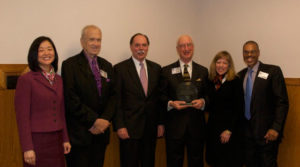
Much of Howard University’s history is about courageous people who put their lives on the line to open the door to opportunity not just for some people but for all. Intellectual property is all about opportunity and the protection of individual rights—opportunity based not on your ethnicity or your sexual preference, or the color of your skin, your religious beliefs, or your station in life, but instead on your creativity, your ingenuity, your intellect, and your abilities. Intellectual property is about opportunity and protecting the creative rights of all people, whoever they might be. In that sense, intellectual property has much in common with the struggle for social justice. I congratulate Howard University and Professor Lateef Mtima, the Founder and Director of the Institute for Intellectual Property and Social Justice, for fifteen years of excellence in educating the future leaders of the intellectual property bar. – Judge Richard Linn
Thoughts from Those There at the Beginning
Read more about the start of the CLE program here.
15 years ago, Howard University School of Law was pretty much an unknown on the IP front. But under the leadership of Professor Mtima and others at Howard, the IP and Social Justice CLE was inaugurated. Outside lawyers and distinguished members of the Judiciary have volunteered their time to the CLE to greatly increase the IP profile of Howard. For me, it has been enormously satisfying to watch this growth. May it continue. – Thomas Irving
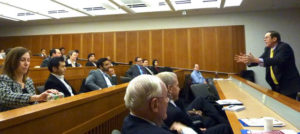
From inspirational vision of Professor Mtima and so many others at Howard University School of Law, we celebrate the 15th Anniversary of IIPSJ’s Annual IP and Social Justice conference. The conference has benefitted from the staunch support of judges, corporate counsels, outside counsels, and of course the fabulous Howard law students. It has been an absolute privilege and honor serving as the Chair of this conference and witnessing its growth over the years. Congratulations on the 15th Anniversary! – Esther Lim
I had the honor of being part of the creation of the Institute and the many wonderful “firsts” - the first CLE program, The first internship at Finnegan Henderson, the first special edition of the law journal, the first visit to the chambers of the CAFC, the first WIPO attendance etc. - It was a tremendous amount of work for an ever evolving cause with countless unanticipated rewards that flow-through my career and life. In fifteen short years, Institute has had an immeasurable impact on a macro and micro level on society, law, lawyers, entrepreneurs, inventors, creators and justice and has enabled me to work to leave a legacy that will inspire future generations. I am forever grateful. – Tameka Simmons
___________________________________________
IP & SOCIAL JUSTICE THROUGH THE YEARS
Through tireless efforts of Prof. Mtima most especially, but also through the supportive and independent efforts of many the others including especially those who have supported and continue to support IIPSJ, the social justice perspective has now worked its way into the very fabric IP discourse and reform at all levels of IP law, policy, advocacy, and administration. I have been most pleased to have been able to contribute to this project for the past 15 years and plan to continue to do so for awhile yet. – Steven Jamar
2007 Intellectual Property and Social Justice Symposium
Introductory Remarks: Applying the Intellectual Property Law in the Public Interest: Copyrights And the Public Use of Software
Presentation: Granting Patents Based On Race: The Practitioner’s Role in Shaping Social Policy
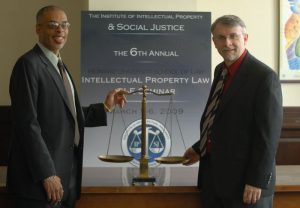
2009 Intellectual Property and Social Justice Symposium Presentation: Where Intellectual Property Theory Meets ‘Outsider’ Jurisprudence–What African-American Cultural Production Can Teach IP Policy

2011 Intellectual Property and Social Justice Symposium Presentation: Intellectual Property and the Pursuit of Civil Rights: Issues & Challenges for the Digital Information Age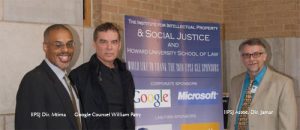
2014 Intellectual Property and Social Justice Luncheon Presentation: Intellectual Property Social Justice: Civil Rights and Economic Empowerment in the 21st
It has been my honor and privilege to participate in Howard’s IP and Social Justice CLE for more than ten years. This is the only CLE of which I am aware that is focused on highlighting the intersection of intellectual property and social justice. It is through this CLE and other work that IIPSJ demonstrates a commitment to ensuring equal access to our intellectual property systems, domestically and abroad. - Toni Y. Hickey
2017 Intellectual Property and Social Justice Luncheon Keynote: Property, Intellectual Property, and Social Justice: Mapping the Next Frontier
CLE Impact & Opportunities
The CLE programs help HUSL alumni and other practitioners develop and maintain expertise in IP practice and provide opportunities for experienced minority IP lawyers to demonstrate their expertise to an audience they might not otherwise reach. The CLE programs also provide networking opportunities for lawyers from diverse groups including attorneys from private practice, from government, from the judiciary, and from academia.
Having attended Howard University School of Law and entered into the IP profession as a patent attorney prior to the establishment of the IP & Social Justice CLE Program, I am so very honored and proud to see the impact that it has had on the students and the IP community as a whole by providing opportunities that previously were hard to come by or not available at all for diverse lawyers in IP law. – Jennifer M. Hayes
As a proud member of the class of 2005… I continue to take pride in this program as an essential element of my continuing legal education. The CLE is uniquely rooted in Howard’s mission of social justice, offering invaluable insights from esteemed members of the bar and bench. I am honored to join the 15th year of this program, and I look forward to returning for many years to come. – Idris McKelvey
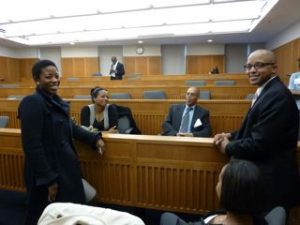
The IIPSJ CLE event has been essential in helping to direct the trajectory of my career. Every year I have participated, through the various modules and panel discussions, I walked away with a solid grasp of the current trends in the profession. Moreover, I emerged with an understanding of the future direction of the profession. Thus, I have been able to align my professional experiences with the ever evolving field of Intellectual Property. – Ulysses Williams
I came to Howard Law School with the intent to use my law degree to effect change... Attending the IP & Social Justice CLE program ... I gained a clearer understanding of the intellectual property-related social justice issues not only concerning disenfranchised people in the United States, but around the world. It is an invaluable program and service to the larger community. – Aisha (Williams) Cassis
Prior to attending law school, I spent more than a decade in the biotechnology arena as a scientist. When I entered Howard University School of Law in 2013, I knew that I wanted to be a patent attorney, however, I did not have a strong network of mentors in the patent field. I quickly joined the Howard University School of Law, Intellectual Property Student Association, and benefited from the mentorship of Professor Lateef Mtima. By attending the IP & Social Justice CLE Program each year, I was afforded the unparalleled opportunity to forge new mentoring relationships with practicing attorneys in the IP arena, and learn about emerging IP issues. This unique experience helped guide my career and continues to do so. Currently, I am a second year associate at Finnegan, Henderson, Farabow, Garrett & Dunner, LLP. – Candice R. Jones
Phil Hampton has graciously volunteered his time to participate in the CLE every year.
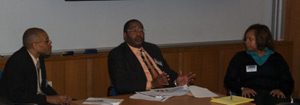
As a student here I benefited from mentoring by Professor Mtima and participation in the CLE, and soon found my passion in the practice of trademark law. By participating as an attorney, I am able to stay up to date and involved with issues of intellectual property and social justice; while continuing the tradition of mentoring the students I meet each year. Congratulations on 15 years and I look forward to the next 15 and many more! – Tashia Bunch
Student Summary: Counterfeiting
Summary from a Student: Counterfeiting: Ways to Combat
- Iesha Summerall, rising 3L, Howard University School of Law
This session was presented by Toni Y. Hickey, the Deputy General Counsel & Chief IP Counsel at Cummins, Inc., a Fortune 500 company and Robert “Bob” J. Kenney, Partner at the one of the nation’s highest ranked IP firms—Birch, Stewart, Kolasch & Birch, LLP.
The presenters began the session by discussing what a counterfeit is and why it occurs. Bob explained that those who engage in counterfeiting make fake replicas of a real product. These replicas are produced with the intent of taking advantage of the superior value of the imitated product.
Counterfeiting can take place in each area of IP—tampering with patented products, passing off trademarks, and pirating copyrights. Toni and Bob also explained that sometimes the counterfeit product is not counterfeit because it is fake, but counterfeit because it is imported from another country without the permission of the intellectual property owner. These products are known as gray market goods.
After discussing what a counterfeit is and why it occurs, Bob and Toni discussed the social justice and business issues that occur as a result of counterfeiting. As a societal concern, defective or inferior goods can seriously injure and even kill consumers, advertently or inadvertently. Toni gave an example of counterfeiting that could affect health. When tampering with a pharmaceutical patent, a counterfeiter can remove the active ingredient from a drug, causing the drug to be completely ineffective. Bob also described how a tech defect in a counterfeit cell phone battery has caused serious injury in the past because it blew up while the consumer was using their cell phone. Another serious societal issue is that counterfeit products are used to support and fund terrorism, organized crime, and sex and drug trafficking.
Business issues that arise as a result of counterfeiting include the counterfeit goods harming the reputation of the trademark or the brand of a product. Counterfeit goods also cannibalize sales from the imitated goods and cause manufacturers to spend millions in resources on anti-counterfeiting efforts and regulation.
Combatting counterfeits can require different approaches and strategy, depending on a firm’s makeup. Toni offered her perspective of combating counterfeiting as in-house counsel and Bob offered his perspective as a partner in a mid-sized firm. One way firms can combat counterfeit goods is to record important marks with the Customs organizations globally. As in-house counsel, Toni further noted that in-house can make efforts to know how their products get to market and record with the appropriate Customs organization. This would make the counterfeit products easier to track before they enter the market. Generally, in order to combat counterfeits, any firm or company should always know the main problem areas and where most of the counterfeit products come from. Additionally, consumers can combat counterfeiting by refusing to purchase inauthentic goods. All in all, it was very interesting to learn the different effects of counterfeiting and how to combat them in the legal profession.
Student Summary: Music
Summary from a Student: Music Sampling, Fair Use, and Social Justice
- Anthony Williams, rising 2L, Howard University School of Law
This session was a panel discussion with Lita Rosario (President & CEO - WYZ Girl Entertainment Consulting, LLC), Chanelle Hardy (Strategy Partnerships and Outreach – Google), and Dylan Gilbert (Policy Fellow - Public Knowledge); moderated by Kimberly Tignor (Public Policy Director - Lawyers’ Committee for Civil Rights Under Law). Panelists discussed the complicated relationship between music sampling, the Fair Use standard, and how to utilize the Fair Use standard as a tool for Social Justice. Attorney Hardy spoke to the imbalance that people of color face when dealing with copyright law enforcement. Specifically, suits for copyright infringement are brought against people of color at higher rates than their Caucasian counterparts. Additionally, people of color have lower success rates in asserted claims of copyright infringement.
Attorney Gilbert transitioned to how there needs to be legislation outlining a specific Fair Use standard. The Fair Use standard allows an individual to use copyrighted materials as long as it is not a substantial amount and for a transformative purpose. However, courts vary in deciding what qualifies as fair use. There is no law in the United States that expressly dictates how many seconds of a copyrighted sound recording an artist can use. Hip-Hop artists are particularly susceptible to the lack of consistent Fair Use guidelines, as Hip-Hop music relies heavily on music sampling. In response, Attorney Rosario emphasized this point by discussing a technique used a lot in Hip-Hop called looping, in which a composer takes a part of an instrumental and loops it multiple times to create a new sound. Although this technique essentially creates a new composition, nevertheless suits against Hip-Hop artists are initiated at disproportionate rates due to the inconsistency. For example in Bridgeport Music v. Dimension Films, rap group N.W.A was told that a music license was mandatory to use a sample, but in the Salsoul v. Madonna, Pop singer Madonna was allowed to use copyrighted material deemed de minimis or so trivial that it was not a violation of copyright infringement.
In the final segment, Attorney Rosario offered an interesting perspective on advocating for stronger copyright laws and a definitive fair use standard. Attorney Rosario represents some older musicians, whose primary source of income is through music sampling. Without stronger copyright protections these artists are unable to generate income as they are unable to tour or put out new music. Social justice advocacy takes many different forms and it was highly informative to learn about opportunities to advocate in the intellectual property realm.
Student Summary: Entertainment
Summary from a Student: Entertainment Law Update: Developments in Trademark and Right of Publicity Law
- Lauren J. Walker, rising 3L, Howard University School of Law
The laws surrounding trademark and rights of publicity are developing as intellectual property laws continues to advance. Jonathan Goins and Benita Collier, professionals in the intellectual property sphere shared their expertise on the law and its relationship to the entertainment industry. The panel opened with a Top 10 list of issues that are currently prevalent within media and entertainment law. The issues from the perspective of the brand owner ranged from Trademark Infringement, Trademark Advertising and Federalization of Trade Secret Laws. On the contrary, from the perspective of the individual being accused of infringement the popular issues were Fair Use and the use of the mark in relation to one’s First Amendment rights.
Jonathan Goins is currently a partner at the Atlanta office of Lewis Brisbois Bisgaard & Smith, LLP where he is a member of the firms Intellectual Property & Technology and Entertainment, Media & Sports Practices. With over 15 years of legal experience, Goins has been identified as a leader in Intellectual Property Law.
Bernita Collier is Associate General Counsel at Urban One. In this role she manages intellectual property for four different major media markets. In managing these markers her responsibilities are distributed amongst radio, digital, and television.
Two of the landmark cases that were referenced during the panel were Twentieth Century Fox Television v. Empire Distribution and Curtis Jackson v. William Roberts. In Empire, the question before the court is whether the use of Empire Records was infringement under the Lanham Act and trademark law. The court found that the use of the record distribution company that previously existed and slightly parallels the portrayed record company in a television show would not cause consumer confusion and would not be trademark infringement. On the contrary, in Jackson the question presently before the court is whether the actual usage of popular rapper 50 Cent’s (Curtis Jackson) voice in rapper Rick Ross’s (William Roberts) song is copyright and right of publicity infringement. The use of Jackson’s voice is 19 seconds in a 3-minute song so the court will need to address whether the use of the voice from a song that has a copyright constitutes copyright infringement and is not fair use. Additionally the court will decide whether this use is a violation of Jackson’s right of publicity since this song will likely be sold and Roberts may earn financial gain.
Panelists Goins and Collier established that no celebrity is exempt from intellectual property lawsuits. Entertainer Beyonce Knowles was recently sued by a Russian artist for the use of her voice in Beyonce’s song. The court found in favor of Knowles for di minimus use and First Amendment Fair Use.
To close the panel each panelist discussed the array of issues that they may handle during the day given their roles but shared the importance of staying up to date with the law as it develops, the need to have a good relationship and open communication among all parties, and the importance of correctly advising your client.
Student Summary: Tam
Summary from a Student: IIPSJ Roundtable: The Aftermath of In re Tam
- Alexis Harrison, rising 2L, Howard University School of Law
This panel discussion included the following speakers; Phillip Hampton, senior counsel at Haynes & Boone 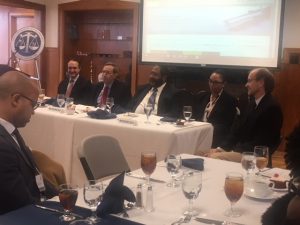 LLP; Toni Hickey, Deputy General Counsel & Chief IP Counsel at Cummins, Inc.; William Thomashower, counsel at Pryor Cashman LLP and; Douglas A. Rettew, partner at Finnegan, Henderson, Farabow, Garrett & Dunner, LLP. It was moderated by Stephen McJohn, a professor at Suffolk University School of Law. The discussion centered around the implications arising from the holding of In Re Tam. Here the Court reversed its course, holding that it is unconstitutional for the Patent and Trademark Office to deny the registration of disparaging content. Attorney Thomashower compared the effect of the opinion to the opening of the Pandora’s box. He is also concerned that the opinion made no mention of a chilling effect in disallowing disparaging content from being registered, while still permitting its use. Another critique found it unfortunate that the Court also did not mention the level of scrutiny used in the opinion.
LLP; Toni Hickey, Deputy General Counsel & Chief IP Counsel at Cummins, Inc.; William Thomashower, counsel at Pryor Cashman LLP and; Douglas A. Rettew, partner at Finnegan, Henderson, Farabow, Garrett & Dunner, LLP. It was moderated by Stephen McJohn, a professor at Suffolk University School of Law. The discussion centered around the implications arising from the holding of In Re Tam. Here the Court reversed its course, holding that it is unconstitutional for the Patent and Trademark Office to deny the registration of disparaging content. Attorney Thomashower compared the effect of the opinion to the opening of the Pandora’s box. He is also concerned that the opinion made no mention of a chilling effect in disallowing disparaging content from being registered, while still permitting its use. Another critique found it unfortunate that the Court also did not mention the level of scrutiny used in the opinion.
Another effect described is the registration of distasteful content in order to limit their use and abuse by other inciting or hateful groups. However, attorney Hickey countered that this would pose a difficult challenge for communities and populations of people that do not have the financial resources to pursue this method of reclaiming distasteful or hateful content. Additionally, attorney Hickey described the impact of the opinion for the average citizen. There is no longer a reliable standard for citizens to consider in determining immoral content.
When asked to consider legislative solutions to the opinion, the panelists concluded that a fix from this branch of government is unlikely and erroneous. Instead, attorney Thomashower described the role of the courts. The objective test should be applied by judges to determine the standard for disparaging content. This is not censorship he argued, because the government has a genuine interest in restricting the registration of content which could lead to a dangerous or inciting result. Nonetheless, attorney Hampton emphasized that the Trademark Office is still pretty conservative, and thus there is an initial layer of bias with the examiners.
IP Community Outreach, Education, and Pro Bono legal support
Recent E-Mail Update
This month our focus is on IP Community Outreach, Education, and Pro Bono legal support. IIPSJ is involved in various new initiatives to promote IP Empowerment and entrepreneurship in marginalized communities which we thought you might find of interest.
The Lawyers’ Committee for Civil Rights: Creative Control
This Fall the Lawyers’ Committee for Civil Rights will launch Creative Control – an initiative which will examine how intellectual property law and policy impacts historically marginalized communities and will provide pro bono IP legal support to community creators and innovators. The goal of Creative Control is to educate community creators and innovators as to the importance of IP rights and protections, to empower online expression, and to provide one-on-one free legal advice from IP attorneys.
LCCR hosted a soft launch of Creative Control at Smith Commons on July 25, 2017, at which more than 70 community creators joined IP experts for discussions on IP protection and how IP law and policy impact creators. In addition, LCCR collaborated with lawyers from the Hogan Lovells law firm to provide one-on-one legal sessions for 22 DC community creators.
IIPSJ Director Professor Lateef Mtima participated in the July soft launch of Creative Control – here’s a link to a sixty-second montage of the launch which highlights the diversity of the attendees and the legal and creative talent showcased during the event:
The official launch this Fall will also include the release of the LCCR white paper, know your (IP) rights primer and the commencement of the pro bono IP legal clinic component.
IP Pro Bono Clinic Database
We have recently updated our website to add a growing list of IP legal clinics and other resources for low or no cost legal services.
Other Topic of Interest
Recently, a federal district court judge struck down part of the copyright for the song “We Shall Overcome”. The song is of unknown origin and was particularly popular during the civil rights era. The copyright was held by several songwriters, including Pete Seeger, since the 1960’s for changes to the original melody and some of the wording. Part of the royalties from the copyright is used for social and cultural programs in the South.
You can read more in the New York Times article “'We Shall Overcome’ Verse Not Under Copyright, Judge Rules” or listen to a music news segment on National Public Radio “Federal Judge Rules First Verse Of 'We Shall Overcome' Public Domain.”
Follow-up on Net Neutrality – Last month we discussed the FCC rulemaking on Net Neutrality. We appreciate the many comments and questions we received in connection with our distribution on net neutrality, we thought you might be interested in formal comments file by National Hispanic Media Coalition regarding the social justice implications. You can find the full comments here and a summary here.
Update on Blurred Lines
Blurred Lines in More Ways Than One – Part III
‘As mentioned in Part II, I didn’t expect to write several posts about this litigation, but it turns out that “Blurred Lines” (Williams v. Gaye) raises several copyright issues—doctrinal, cultural, and historical—worthy of consideration and not easily condensed into a single article. In the first post, I alluded to an editorial written in 2015 by scholars Lateef Mtima and Sean O’Connor supporting the outcome in Williams from a historical perspective, asserting that traditional means of registering works and identifying infringement disfavored artists of color.
Citing this OpEd drew some criticism from a few readers, particularly musicians, who noted that people of color comprised two-thirds of the authors of “Blurred Lines” and that the Mtima/O’Connor opinion seems to be a matter of looking for a problem that doesn’t exist, comparable to often-overwrought and ahistorical complaints about “cultural appropriation.” But discussions about cultural cross-pollination in the art are largely separate from the issues these scholars are raising about copyright law. Still, for context, we must acknowledge that a vast amount of American popular music in the 20th century—jazz, blues, rock, funk, soul, R&B, rap, etc.—is more deeply rooted in African-American traditions than Euro-American traditions.
The amicus brief Mtima and O’Connor wrote with colleague Steven D. Jamar was submitted to the Ninth Circuit in 2016 on behalf of the Institute for Intellectual Property and Social Justice. It argues for affirming the jury’s verdict in Williams, concurring in part and dissenting in part with regard to the evidence admitted at trial. Although the jury arrived at the opinion favored by the brief’s authors, the reasons why Gaye’s sound recording was not admitted as evidence points to the fact that “Got To Give It Up” is among thousands of musical works that happen to fall within an abstruse window in copyright history that, the authors argue, especially disfavored artists of color. For concision, I’ll refer to the amicus brief as the IPSJ Brief, which states …
“For reasons not fully known and not linked to any further change in the statute, at some point (in the 1930s we believe) the Copyright Office began requiring written notation deposits, before again allowing deposits of phonorecordings for musical compositions beginning in the 1980s, and again not linked to statutory changes.”
Like many artists who did not receive formal training, least of all in European staff notation, Marvin Gaye composed by getting the music that was inside him to come out through the instruments and the players and then record the finished sounds in the studio. Many composers—regardless of race or culture—work this way today, of course, and their sound recordings are both valid for copyright registration and as evidence in a prospective infringement litigation.
But Gaye’s 1977 hit was subject to the 1909 Copyright Act, and it predated the apparently inscrutable shift in USCO policy that finally allowed sound recordings as registration deposit copies in the 1980s. Although the IPSJ Brief cannot fully explain a rationale for the fifty-year period when only written-notation scores were accepted for deposit (e.g. the statute did not mandate this), the brief’s authors do allude to lingering, judicial ambiguity stemming from White-Smith v. Apollo, which held in 1908 that piano rolls were not copies of compositions because they were not readable by humans.
Had that ruling gone the other way, it might have set a precedent for accepting sound recordings as deposit copies much earlier in the 20th century. And although SCOTUS held that sound recordings are, constitutionally, “writings” in Goldstein v. California in 1973, there is apparently no clear explanation as to why the Copyright Office did not amend its deposit requirements for musical works for nearly another decade.
As a matter of social justice, and in the service of demanding that copyright must empower the broadest diversity of authors, the IPSJ Brief asserts that the seemingly arbitrary emphasis on written notation between the 1930s and the 1980s was especially harmful to artists of color, who composed almost exclusively in aural traditions. Certainly, it is hard to miss the fact that this period encompasses the span of time when certain styles of black music sneaked into the mainstream via white artists beginning in the 1950s and slowly gained wider acceptance as black music by black artists through the 1960s and 70s.
Partly because written-notation scores were required as registration deposit copies, composers like Gaye relied on other parties to transpose their sound recordings into musical notation. This practice led to two recurring problems, according to the IPSJ Brief: 1) the scores did not always adequately represent the compositions; and 2) unscrupulous managers, label owners, et al sometimes exploited the opportunity to falsely assert co-authorship of the compositions. The brief states …
“The Copyright Office should have accepted phone recordings as registration deposits throughout the entire period in which the 1909 Act was in effect. Neither Gaye nor other composers should today be penalized by restricting evidence of their compositions to a stripped-down lead sheet deposit created to comply with an extra-statutory administrative practice, especially where that deposit does not match the work composed by the author in the studio.”
In the “Blurred Lines” case, the jury was not allowed to compare the two sound recordings but was allowed to consider the “lead sheets” and expert testimony by musicologists. As the IPSJ Brief explains, lead sheets are somewhat rudimentary versions of musical scores that are generally of use only to professional musicians, who can interpolate what’s not on the page and play the song (by ear or from memory) the way the composer meant for it to be played. To get an idea of the difference, I’ll borrow a reference cited in the Brief and direct you to the musicnotes.com page for “Got To Give It Up,” where you can play a computer’s interpretation of the score and decide how much those lifeless and literal beeps and bloops sound like the Marvin Gaye song you know.
The IPSJ Brief asserts that only the sound recording correctly represents the originality (ergo the protectable aspects) in Marvin Gaye’s composition—and that the same is true for thousands of compositions made by artists, who worked in aural traditions rather than standard notation during the rough half-century at issue. Thus, the brief’s authors support the evidence presented by the Gayes’ musicologists, asserting that these experts correctly identified the protectable elements in the work, giving the jury fact-based reason to find infringement. Nevertheless, the authors remain critical of the fact that the sound recording of “Got To Give It Up” was not admitted into evidence.
The IPSJ Brief also argues that the outcome in Williams does not, as many fear, “copyright musical style.” To the contrary, the authors assert that the lines separating “style” (idea) from “originality” (expression) have instead been too often drawn incorrectly due to bias tilting toward certain musical traditions. In practical terms, this means that a composer like Gaye can arrange a dozen unprotectable ideas in a manner that is uniquely expressive, and this can only be analyzed in context to his studio-based process rather than on paper alone.
Whether or not one agrees with this analysis—or with the jury in Williams—Mtima, O’Connor, and Jamar offer an intriguing discussion about copyright history and practice during one of the most prolific, experimental, and culture-shattering periods in Western music. As much as it would be absurd to overlook American musicians of color between the 1930s and 1980s, it seems likewise inappropriate to ignore this aspect of the “Blurred Lines” case rather than to view it in tandem with the subjects of infringement doctrine, case law, and circuit court splits that this litigation has inspired other scholars to address.
Copyright Claims for Graffiti Artists
Graffiti: Copyrightable Art, Illegal Activity, or Both?
Graffiti on buildings, in alleys, and on trains – sometimes signed, sometimes anonymous, and usually unwanted by the property owner. However, often these creations are both beautiful and edgy. A perfect match for marketing clothing whose image so desperately wants to align! Many brands attract customers based on advertising themselves as street-savvy and edgy. And, while many graffiti artists often do not seek attribution, for obvious legal reasons, that does not necessarily mean that their artwork is free to use by others.
In recent years, the issue of unauthorized use of graffiti in advertising has bubbled up frequently. In 2014, David Anasagasti, a well-known street artist in Miami, sued American Eagle for copyright infringement, alleging unauthorized use of his signature “droopy eyes” in their advertisements. American Eagle used the imagery on their website, as part of their social media presence, as well as in-store displays globally. The case ended in a private settlement.
In the same year, the Italian brand Roberto Cavalli was sued by a group of graffiti artists from California for allegedly using their artwork on the Just Cavalli line of clothing.
The most recent case sparking off a fresh round of discussion on the topic involves H&M, who received a cease and desist letter from Jason “Revok” Williams, over the use of a mural he created in Brooklyn in their ads. In response, H&M filed a lawsuit asking the court to declare that Williams had no copyright to assert because his art was a criminal act. Possibly due to pressure from street artists’ and supporters’ calls for a boycott, H&M withdrew the lawsuit in March 2018.
Does Copyright Protect Graffiti?
United States Copyright law, as stated in 17 U.S.C. §102(a) states that copyright protection subsists “in original works of authorship fixed in any tangible medium of expression, now known or later developed, from which they can be perceived, reproduced, or otherwise communicated, either directly or with the aid of a machine or device.” Copyright protection is derived from the US Constitution, specifically Article 1, Section 8, Clause 8, which states “To promote the progress of science and useful arts, by securing for limited times to authors and inventors the exclusive right to their respective writings and discoveries.”
Another recent case, 5pointz, turned on the Visual Artists Rights Act (VARA) protection granted to artists of authorized works. While street art, the murals at issue were there with the permission of the property owner. This case was a little different in that, the artists had permission to create their murals, with a verbal warning that it could be destroyed at any time. While that case found in favour of the artists, the decision may have had more to do with the “willful” destruction of the street art without sufficient warning to the artist.
VARA, enacted in 1990, recognized the moral rights of artists to their visual works of arts. Codified in 17 U.S.C. § 106A, VARA grants authors of visual work additional rights regarding attribution of the visual art. Specifically, the moral rights of artists of VARA-protected works must be disclaimed, in writing, which did not occur in the 5pointz case.
What does this mean going forward?
Many of the defendants in recent copyright infringement cases involving graffiti have been slow to respond to why they did not simply ask for permission. Some, like H&M, may have been hoping to rely on the defence that unauthorized graffiti is un-copyrightable because it is not legal. Others may have been unable to contact the original artist or assumed they would not take action to protect their intellectual property.
Additionally, property owners, such as those in the 5Pointz case, should not assume that they have the right to destroy or mutilate artwork without obtaining required permits, permission from the artists, or by obtaining a VARA waiver in advance.
Getting a federal court decision stating that graffiti is protected by copyright could have some interesting implications. It will certainly increase the likelihood that retail companies will do additional due diligence to clear the use of graffiti in advertising or, alternatively, not use unauthorized graffiti at all. Additionally, while H&M’s production agency did contact the New York City Parks and Recreation Department for permission, the inability to find an author may not be enough to protect against an infringement allegation in the future.
Likely, some types of commercial use will still be allowed – currently, for architectural and visual works the exceptions of Fair Use and Incidental Use apply to accusations of infringement. For example, the recent Gayle v. Home Box Office, 17-CV-5867 (SDNY May 1, 2018) dismissed an alleged copyright infringement case concerning a shot of graffiti on a dumpster that appeared in the HBO series Vinyl. Interestingly, the court in Gayle did not directly address the question whether graffiti was generally protected by copyright. Instead, the court ruled that the graffiti in question was “never fully visible, let alone legible” and was, therefore, de minimus.
However, commercial users – such as retailers, film studios, etc. – will need to be careful to ensure that, if graffiti features prominently in the commercial use, permission is obtained. Otherwise, a lawsuit could follow. And, while all of the lawsuits involving graffiti have settled to date, it may not be cheap to do so.
So, while existing graffiti may indeed provide a tempting edge for a new marketing campaign, or as the backdrop for a great commercial, companies will need to decide if it is worth the legal or public relations risk. If the original graffiti artist cannot be found or is unwilling to allow their art to be used, it may end up being less expensive to start from scratch than to manage the fallout from an allegation of stolen artwork, damaged reputation, and a lawyer for the lawsuit that follows.
Blurred Lines Decision a Social Justice Win?
Blurred Lines’ ruling brings justice to composers like Marvin Gaye
In mid-March, a federal appellate court correctly affirmed the 2015 verdict against Robin Thicke and Pharrell Williams, finding their 2013 “Blurred Lines” hit infringed on Marvin Gaye’s seminal “Got To Give It Up.”
Unhappy with the result, Thicke and Williams have just requested a rehearing of the case. They are likely bolstered by critics who claim composers will be stifled and fearful because of the ruling. But the sky is not falling: The creation of new music can proceed as it always has before.
In fact, the ruling may clarify the scope of musical works, by endorsing audio recordings as evidence of the compositions of “aural” composers who do not use European-based sheet music. This advances social justice for songwriters from disadvantaged backgrounds who were exploited under earlier copyright registration rules and fosters the creation of original compositions going forward.
Our litigation system, contested facts are usually sent to the jury. A judge will decide copyright infringement as a matter of law only where there is a complete absence of credible evidence on one side. In the “Blurred Lines” case, expert musicologists for both sides presented reasonable evidence. Consequently, the trial court rightly submitted this factual dispute for the jury to decide, and the appellate court affirmed that decision.
All parties agree that neither musical style nor musical genre is protected by copyright. Style and genre are abstractions that identify the kinds of musical elements repeatedly used by a composer (style) or by composers in a particular musical field (genre). As abstractions or ideas, they are not copyrightable. Groove is not an abstraction, but rather the particular rhythm instrument parts of a composition taken together. As with any other specific and original composed parts, or particular original combination of parts, a groove can be protectable.
The Gayes’ experts identified particular expressions of both (1) individual elements, such as an original bass line and vocal melodies, and (2) a compilation of musical elements. They also opined that these elements had been copied by Williams and Thicke.
The Thicke parties retained their own experts who disagreed. Because of the importance of observing witnesses and experts firsthand in making decisions about credibility, appellate courts normally defer to jury verdicts absent fatal procedural errors. It is not a judge’s role to second-guess evidence properly presented by a party. The underlying rules of law and procedure have not been changed by the “Blurred Lines” decisions. Indeed, the decisions are examples of those rules being applied in a straightforward fashion.
But something else may have changed for the better. Gaye, like many iconic 20th-century pop composers, was not fluent in European-based sheet music notation. The copyright registration system of the time required “aural” composers (those composing by ear) such as Gaye to submit written notation. Music publishers had employees score a bare-bones interpretation of the composer’s actual song, which might not contain all of its parts, as a placeholder for the full composition.
Multitrack recording technologies allowed aural composers to “score” and arrange their songs on tape. Actual recordings are the best evidence of the full scope of the composition. The year after Gaye composed “Got to Give It Up” in the recording studio, the U.S. Copyright Office changed its rules and allowed the deposit of audio recordings of musical compositions for copyright purposes.
In an amicus brief to the appellate court, we argued that courts should allow such recordings as evidence of the full scope of aural composer’s works. The appellate court noted this and stated that trial courts could address the use of this evidence. Going forward, justice may finally be done for aural composers who have been systematically exploited by the system.
For Graffiti Artists, Musicians, Small Business Owners, and more
|
||||||||||||||||
|
Net Neutrality, CLE, Blurred Lines, and Recent Events
Highlights from IIPSJ's 15th Annual IP and Social Justice CLE Program at the Howard University School of Law Check out our website for highlights from this year's CLE program. We take a look back at 15 years of providing CLE programming on IP and Social Justice, as well as provide a summary of the event and some of the panels including student reporting on various panels available at the specified links
|
New to IP
We realize that many entrepreneurs, creators, and inventors may not have a lot of time to research and understand Intellectual Property (IP) law. We created this section of the website to provide some initial information about IP and how to find out more about the IP issues that are relevant to you. We have begun to gather information and resources to answer some of the most common IP related questions. If you have a general IP question* not answered below, feel free to email it to us at updates@iipsj.org.We will continue to update this page as we find new resources and receive new questions.
*Note we cannot provide legal advice but we do include links to organizations that provide free or low cost legal advice.
Intro to Intellectual Property (IP)
The most common types of IP are patents, trademarks, and copyrights.
| Type of IP | Protects | A little more information | Federal Registration for Protection at |
| Patents | Inventions | - rights grant the inventor ownership rights in their invention
- grants the inventor an exclusive right to make, use, offer for sale, or sell the invention |
US Patent and Trademark Office (USPTO)
|
| Trademarks | the way we identify who made or provides the products or services | rights may be used to prevent others from using a confusingly similar mark in commerce in connection with the same or similar products or services | USPTO |
| Copyrights | Original works of authorship | rights grant the author the exclusive right to reproduce the copyrighted work, to prepare derivative works, to distribute copies of the copyrighted work, to perform the copyrighted work publicly, or to display the copyrighted work publicly | US Copyright Office |
Learn More:
USPTO
Article: What Are Patents, Trademarks, Service marks, and Copyrights?
Video: Basic Facts: Trademarks, Patents, and Copyrights
U.S. Small Business Administration video: Patents, Trademarks, and Copyrights
Check out our Legal Resources page to find free and low cost services to help you with your IP.
Check back for additional information.
IP Mosaic
The IIPSJ MOSAIC IP Law and Policy Roundtable Conference
Purpose and Objectives
The IIPSJ Mosaic Roundtable Conference was established to bring together scholars, law and policy makers, and social activists of diverse and multicultural backgrounds and perspectives to explore progressive and non-traditional ideas in intellectual property law, policy, and social activism. Beginning in the late twentieth century, digital information technology and other innovations sparked a paradigm shift in scholarly assessment of the social ordering function of IP protection, exposing the need to critically examine the law’s social justice obligations in promoting human rights, self-determination, cultural progress, and nation-building and evolution. Because IP law and policy makers traditionally value scholarly analyses in their development and interpretation of IP protection, this emerging body of progressive, social justice-oriented IP scholarship, especially when infused with the experience and insights of social activists and policy makers, can provide them with the doctrinal basis for shaping a more socially responsible IP legal regime.
The Mosaic Roundtable Conference Format
Each Roundtable Conference is organized around a specific IP social justice legal issue, policy, or socio-economic problem, and is comprised of four paper or project presentation sessions; each session is divided into a principal presentation, a commentator’s assessment, and open discussion. Representative Roundtable topics include equitable access to health, medicines, knowledge, and information; socially beneficial application of information technology and related advances to IP development and dissemination; legal protection for traditional and indigenous knowledge and expression; and promoting IP awareness, education, and entrepreneurial and socio-political empowerment in marginalized communities. The Roundtable Conference is also amenable to expansion into a two day format, to accommodate plenary panels, keynote presentations, and “incubator project” and work in progress sessions.
IP protection is intended to play an important role in engendering human development, socio-economic empowerment, and social justice. The traditional tools and experience of scholarly analysis, reflection, and discourse, however, are not always readily adaptive toward targeted social action, or what is sometimes referred to as “public intellectualism”. Through the IIPSJ Mosaic Roundtable Conference, IP scholars can work together with political activists, practicing attorneys, community organizers, and policy makers to produce “activist scholarship”, to collaborate on various “IP Empowerment” policy initiatives and projects, and to otherwise help to shape and effectuate a progressive and contemporary IP socio-legal agenda.
2014:The First Annual IP Mosaic Conference: Diverse Voices in IP Scholarship
Luncheon Keynote: Reconstructing the IP Scholar Activist
July 2018
|
|
|
|
MMA
Update on the Passage of the Music Modernization Act
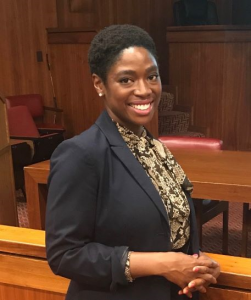 - Idia Egonmwan, a 2L student attorney in the Intellectual Property Clinic at Howard University School of Law.
- Idia Egonmwan, a 2L student attorney in the Intellectual Property Clinic at Howard University School of Law.
As many of our membership will recall, earlier this year IIPSJ submitted to Congress both formal comments and also a letter on behalf of intellectual property law and other scholars to support passage of the Compensating Legacy Artists for their Songs, Service, and Important Contributions to Society (CLASSICS) Act and the Music Modernization Act (MMA), and otherwise undertook a public campaign in support of these legislative bills. We are pleased to report that these and other grassroots and other efforts were successful and both acts were passed by Congress on September 18, 2018 (combined into a revised Music Modernization Act) and signed into law by President Trump on October 11, 2018.
What is the Music Modernization Act (MMA)?
The MMA mitigates many of the economic and social inequities perpetuated in the music recording business by creating uniformity in legal protection for pre- and post-1972 sound recordings via the federal copyright system.[1] The MMA is broken into three parts:
- Title I establishes a musical licensing collective to issue and administer blanket mechanical licenses for the use of sound recordings to digital music services and to and collect and distribute royalty payments directly to rights owners, including performing artists;
- Title II compensates pre-1972 sound recording artists by creating a royalty structure; and
- Title III creates a legal right for various musical contributors (producers, mixers, and sound engineering) to collect royalties for digital transmissions of sound recordings.[2]
The IP Social Justice Impact of the MMA
African American and other marginalized creators and artists have historically suffered from legal and social limitations upon their freedom to contract, inequities exacerbated by the systemic manipulation and abuse of the copyright law and music sound recording contracts and licensing agreements. “Legacy” recording artists such as Otis Redding, Martha Reeves and the Vandellas, and the Temptations were especially disadvantaged in that copyright protection did not extend to pre-1972 sound recording.[3] As a result of the passage of the MMA, composing artists will benefit from more equitable royalty structures under the Copyright Section 115 compulsory mechanical (recording) license (which historically exploited the inferior bargaining power of all artists, but particularly artists of color) (Title I); limited music copyright protection in the form of a digital performance right has been extended to pre-1972 “Legacy” sound recording artists (Title II); and a right for previously uncompensated producers, mixers, and sound engineers to collect royalties for their creative contributions has been established. (Title III).
Fair Compensation and IP Social Justice for Music Creators and Performers
The Music Modernization Act (MMA) is a progressive step for copyright law and the American recording industry, ultimately providing legacy, current, and future musical artists with more equitable compensation for creating, sharing, and performing their work. Utilizing intellectual property as a means of social justice in the music industry is a small subset of how IP law can be used to empower and rebuild marginalized communities. Although not perfect, the MMA represents the outcomes that can be achieved when legal scholars, legislators, and intellectual property and other social justice activists collaborate to preserve the purpose of copyright and other intellectual property law: to promote and encourage socially equitable and beneficial creative labors.
[1] See the Letter from Lateef Mtima, Dir., Institute for Intellectual Property & Social Justice, to Chuck Grassley, Chairman, U.S. S. Comm. on the Judiciary, Dianne Feinstein, Ranking Member, U.S. S. Comm. on the Judiciary, Bob Goodlatte, Chairman, U.S. House of Rep. Comm. on the Judiciary, Jerrold Nadler, Ranking Member, U.S. House of Rep. Comm. on the Judiciary (Mar. 14, 2018)
[2] See Mark Wittow, A Modern Melody for the Music Industry: The Music Modernization Act Just Passed Congress and Awaits Presidential Approval, The Nat’l Law Review (Oct. 2, 2018), https://www.natlawreview.com/article/modern-melody-music-industry-music-modernization-act-just-passed-congress-and-awaits
[3] Id.
Letter Supporting CASE Act
IIPSJ sends a letter to Congressman Jefferies supporting passage of the CASE Act.
The Institute for Intellectual Property and Social Justice (IIPSJ) hereby submits the following comments in support of passage of the Copyright Alternative in Small-Claims Enforcement Act of 2019 (HR 2426). IIPSJ was established to address the social justice implications of intellectual property law and policy both domestically and globally. IIPSJ’s work ranges broadly, and includes the scholarly examination of intellectual property law from the social justice perspective; advocacy for social justice-cognizant interpretation, application, and revision of the intellectual property law; efforts to increase the diversity of the intellectual property legal bar; and programs to empower historically and currently disadvantaged and marginalized communities through the development, protection, use, and exploitation of intellectual property.
Patent Pro Bono Program
Services offered: A nationwide network of independently operated academic and nonprofit organizations that endeavor to match volunteer patent practitioners with financially under-resourced inventors seeking patent protection.
Law School Clinic Certification Program
Services offered: This program allows applicants to obtain pro bono legal assistance in both patent and trademark matters while allowing law students enrolled in a participating law school’s clinic program to practice intellectual property law before the USPTO under the strict guidance of a law school faculty clinic supervisor.
Electronic Frontier Foundation
Services offered: Litigation defense, with concentration on “impact litigation”, i.e., precedent setting cases; nationwide referrals to attorneys in technology cases.
Eligibility criteria: No formal criteria
Regions covered: Nationwide in U.S.A.
Fees charged: None
International Trademark Association
Services offered: Through its Pro Bono Committee, INTA has established the Trademark Clearinghouse pilot program to bolster the protection of intellectual property by matching eligible clients facing trademark issues with INTA member attorneys so that legal services can be provided free of charge.
The Clearinghouse is intended to serve low-income individuals and/or directors of nonprofit or charitable organizations with low operating budgets (1) who might otherwise not know where to turn or (2) who don’t have access to legal assistance in the area of trademarks. This clearinghouse is the only one currently in existence that is dedicated primarily to trademarks.
Patent Pro Bono Florida
Services offered: A statewide program of the Arts & Business Council of Miami and Dade Legal Aid to provide under-resourced inventors with pro bono patent attorneys.
Patent, Trademark & Copyright Section
Services offered: Amicus briefs
Contact: Ralph P. Albrecht, Chair
(202) 216-8166
Eligibility criteria: No formal criteria
Regions covered: Nationwide in U.S.A.
Fees charged: None
Public Interest Intellectual Property Advisors, Inc. (PIIPA)
Services offered: PIIPA is the global non-profit resource for developing countries and public interest organizations seeking expertise in intellectual property matters to promote health, agriculture, biodiversity, science, culture, and the environment.
Eligibility criteria: Assists governments of developing countries, non-profit organizations in developing countries, and non-profit organizations in developed countries that help developing countries.
Regions covered: All developing countries
Fees charged: None
Public Patent Foundation
Services offered: Reexaminations of patents. Pre-litigation counseling, representation and negotiation. Representing defendants in patent litigation. Patent-related only. (No trademark or copyright services.) No patent applications or prosecution.
Eligibility criteria: Economically disadvantaged businesses (including sole proprietors, partnerships, corporations or other entities) accused of infringing dubious patents.
Regions covered: Nationwide in U.S.A.
Fees charged: Clients are expected to pay costs, but normally not attorney fees.
Cyberlaw Clinic
Services offered: The Clinic maintains an active practice in intellectual property advising, including risk assessment, and has drafted a wide range of transactional documents that relate to IP rights (including license agreements and other documents concerning transfers of intellectual property).
Entrepreneurship Legal Services
Services offered: Start-up company IP issues, such as trademark applications, provisional patent applications and patent research.
Eligibility criteria: Must be a start-up company without significant revenue.
Regions covered: All
Fees charged: $25.00 per hour for student time
Detkin Intellectual Property and Technology Legal Clinic
Services offered: The IPC provides pro bono transactional patent, copyright, trademark and trade secret services to individuals, non-profit and for-profit clients in technology and the arts.
Glushko Samuelson Intellectual Property Law Clinic
Services offered: The full range of intellectual property specialties — copyright, patent, trademark, and beyond — in a variety of settings — including client counseling, rights acquisition, transactional lawyering and negotiation, litigation, and administrative and legislative advocacy.
Eligibility criteria: Individual creators and users of intellectual property, small businesses and communities of rights holders and consumers, not for profit institutions and associations, and other entities.
Regions covered: All
Fees charged: Free, however clients generally must pay for other costs of legal representation, such as governmental filing fees and litigation-related costs.
Arts and Entertainment Advocacy Clinic
Services offered: The Arts & Entertainment Advocacy Clinic allows students to develop substantive legal knowledge in copyright and related areas of law as well as practical skills in research, writing, and advocacy by counseling clients and preparing legal and policy documents on behalf of artists and creators.
Information Packet for the Legal Clinic - Practical Preparation of Patent Applications.
In Memoriam Donald Dunner
In Memoriam
Donald R. Dunner: A Leader in Patent Legal Practice and A Champion for IP Social Justice
On October 16, 2019, the legal profession and the IP social justice community lost one of their pillars when Donald R. Dunner, name partner at Finnegan, Henderson, Farabow, Garrett & Dunner, LLP, passed away at the age of 88. Donald R. Dunner enjoyed a distinguished legal career and leaves an indelible imprint on contemporary patent law and practice.
One of the most accomplished and influential patent lawyers of his generation, Don Dunner helped to shape the contours of contemporary patent legal practice, not only through his successful representation of a wide array of clients, but also in supporting the progressive evolution of patent law. Under his auspices in 2003, the Finnegan law firm began its collaboration with IIPSJ to establish the nation’s first IP and Social Justice Continuing Legal Program, developed and implemented by Finnegan attorneys Tom Irving and Esther Lim and hosted by the Howard University School of Law. Now in its seventeenth year, the IIPSJ CLE program continues to educate IP attorneys and policy makers from around the nation as to the social justice obligations and opportunities presented by IP protection.

One of the program’s most highly regarded features is the Judicial Roundtable Panel, wherein Don Dunner would moderate an annual open conversation with sitting members of the federal judiciary and explore cutting edge developments in the field of IP law, including important issues which implicate the law’s social justice resonance in the total political economy. Don would often use this opportunity to ask the judges to share guidance for students in the audience seeking clerkships. It was Don Dunner’s stature and reputation in the patent bar that attracted leading jurists to share their insights and perspectives and thereby make the Judicial Roundtable Panel and the IP and Social Justice CLE program a unique and highly respected professional education experience.
While Don Dunner’s practice impacted major issues in patent law, his professional efforts went beyond “top down” approaches to improving the field. A thoughtful and earnest mentor, Don Dunner guided the professional development of many junior attorneys, and along with many of his colleagues at the Finnegan law firm, he was personally engaged in supporting initiatives to enhance racial and gender diversity within the IP bar. Through these efforts many attorneys gained exposure to IP legal practice and the opportunity to participate in IP-oriented internship programs and full-time practice at Finnegan and other IP law firms, and to practice IP law in various corporate in-house counsel and government legal departments.
Donald R. Dunner leaves an impressive legacy in the field of IP legal practice. From his work in various governmental commissions and studies to evaluate and improve the patent system, to his service as president of the American Intellectual Property Law Association, Chair of the American Bar Association’s IP Section, and as a recipient of the AIPLA Board of Director's Excellence Award, Don Dunner contributed much to the profession he cherished. He will be greatly missed by all of us who had the privilege to work with him, even as we continue to appreciate his enduring impact on IP legal doctrine, professional education, and the social justice aspirations of IP protection.
Fair Pay to Play Act
The California Fair Pay to Play Act- Finally IP Social Justice for Student Athletes
Earlier this month Governor Gavin Newsom signed into law the Fair Pay to Play Act, the nation’s first law to override the NCCA’s prohibition which prevents student athletes from commercially exploiting their IP and related legal rights. See California Law Takes Paying College Athletes Out of the NCAA's hands. The NCAA maintains its rule notwithstanding the fact that the NCAA requires student athletes to permit the NCAA to exploit those very same rights to obtain millions in revenues every year.
For years, some legal scholars (see e.g. Lateef Mtima, What's Mine Is Mine but What's Yours Is Ours: IP Imperialism, the Right of Publicity, and Intellectual Property Social Justice in the Digital Information Age) and many social activists have urged that the NCAA rules allowed the grossly unfair exploitation of student athletes, many of whom hail from marginalized, working class, and rural communities, and for whom the college athletic scholarship system provides the only opportunity to obtain a college education. Although at one point it seemed that the courts were willing to curtail NCAA rules and allow students to protect their IP rights from unfair exploitation, this progressive wave came to a halt when the United States Court of Appeals for the Ninth Circuit overturned a California District Court ruling that the NCAA prohibition violates the federal antitrust laws. Instead, the Court of Appeals declared that the NCAA rule satisfies the antitrust “rule of reason” doctrine, which effectively permits an antitrust violation where the social benefits outweigh the social harms (raising the question as to whose “benefits” count and whose “harms” don’t.)
Under the new law, college athletes in California will be permitted to accept commercial endorsements and hire agents beginning in 2023. Hopefully the Fair Pay to Play Act will inspire similar legislation in other states, and finally allow all student athletes to share in the millions of dollars of commercial revenues they generate every year.
We will continue this important conversation during our annual CLE program.
Federal,Academic,Blog,Policy,Advocacy
Blog Post On IIPSJ Participates in Event at Copyright Office
IIPSJ Joins Copyright Office to Discuss Social Justice and Empowering Creators of Color to Protect Their Creative Works
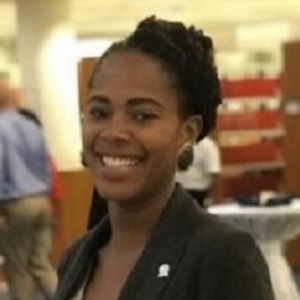
by Morgan Sills, Howard University School of Law ’21
On January 15 th the U.S. Copyright Office hosted a panel entitled “Copyright and Social Justice,” as part of its Copyright Matters series. The event explored the intersection of social justice and copyright protection, with a special focus on historically disadvantaged communities that are often unable to access protection for their work.
Opening remarks were given by Hakeem Jeffries, who is a U.S. Representative from New York and a member of the House Subcommittee on Courts, Intellectual Property, and the Internet. Representative Jeffries began the event by stressing the Constitution as the foundation of power for copyright protection and recognizing the emphasis placed on intellectual property rights by the Founding Fathers.
As the first panelist to speak, IIPSJ Founder, Professor Lateef Mtima, set the framework of the discussion by highlighting the social injustice surrounding communities that are unable to use the copyright system to protect their creations. As a result, the copyright system and structure of intellectual property rights as a whole both suffer from the exclusion of their talents and cultural contributions. IIPSJ’s Executive Director, Kim Tignor, reflected on the experiences of hip-hop groups like De La Soul and their noticeable absence from digital streaming services to illustrate the barriers faced by many artists today. She explained that there is a need to “decode” the copyright law so that artists can fairly profit from their efforts; and pointed out how the legal community often fails to educate creators on their ability to use digital space for the fair distribution of their work.
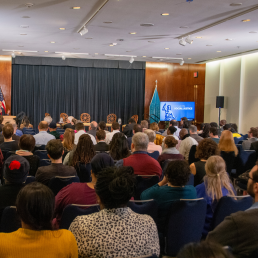
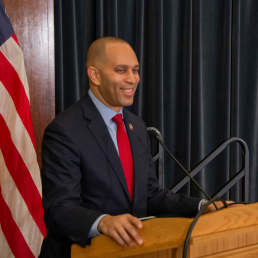
Hollis Wong Wear, a Grammy-nominated singer, songwriter, and producer, presented her perspective as an artist and advocate for other creatives. She voiced the idea that copyright lawyers can learn a great deal from artists and how legal regulations shape their reality, especially with expanded access through social media. She also used the example of Prince and his highly publicized fight against Warner Bros. to gain ownership of his master sound recordings, noting the social and economic impacts of such victories.
Law Professor and Co-Director of the IP Program at George Washington Law, Professor Robert Brauneis reported his findings after conducting research on thirty-five years of registration history. Consistent with the
reports of the previous panelists, Professor Brauneis reported that certain minority groups owned a significantly low number of actual copyright registrations compared to the amount of copyright eligible work they produced. He pointed to the CASE Act as a remedy for this situation, in
addition to the power of copyright attorneys and policy makers to serve creators and educate them on the best tools to benefit from their labor.
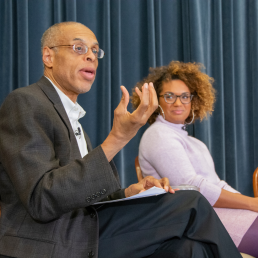
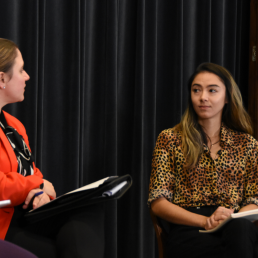
Blog Post On Likeness Legislation
Recent Name/Image/Likeness Legislation Will Change the NCAA (or Not)
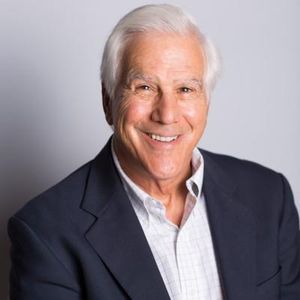 by Ronald S. Katz
by Ronald S. Katz
INTRODUCTION
In a list of organizations creating inequities, the National Collegiate Athletic Association would certainly be included. For example, like professional sports, the NCAA is a multi-billion-dollar enterprise, but, unlike professional sports, it pays only a minuscule percentage of its revenues to its athletes, mainly in the form of athletic scholarships. In the field of intellectual property, those players have not been allowed to receive payments for their names, images and likenesses, even though every other student on campus has that right.
To remedy this latter injustice, California in September 2019 passed the Fair Pay to Play Act, allowing athletes rights regarding their names, images and likenesses similar to those enjoyed by all other students. Numerous other states are considering NIL legislation similar to California’s.
Because college sports receive much public attention, the California law, which does not come into effect until 2023, has generated numerous opinions about its potential effect. The extremes of those opinions range from those who say that the law will end intercollegiate sport as we know it to those who say that the law will have no effect. The NCAA has now also weighed in, stating, opaquely, that it will at some unknown point “permit” college athletes “the opportunity to benefit” from their name/image/likeness “in a manner consistent with the collegiate model.”
In fact, at this juncture, no one can really say what the effect, if any, of the law will be. That point was driven home by an order rendered on January 6, 2020, by the federal appellate court with jurisdiction over California, the Ninth Circuit Court of Appeals. Pursuant to that order, in the pending appeal (No. 19-15566) of In re: National Collegiate Athletic Association Athletic Grant-in-Aid Cap Antitrust Litigation, a case concerning the payment of college athletes, “The parties are directed to file…briefs…on the impact, if any, of California’s Fair Pay to Play Act…on this case.”
If the judges of the Ninth Circuit do not yet know the effect of the NIL law, it is fair to say that no one else does either. In my opinion, the best that can be done at this point, as below, is to put the law into context by triangulating among the extreme opinions noted above and the NCAA’s position on the Fair Pay to Play Act.
EXTREME OPINION #1: NIL LEGISLATION WILL END INTERCOLLEGIATE SPORT AS WE KNOW IT
There is logic supporting this view. For example, there is no difference in economic effect if an athlete receives from an alumni booster of a university $10,000 under the table, which violates NCAA rules; $10,000 in salary, which violates NCAA rules; or $10,000 for name, image or likeness, which would be legal under the Fair Pay to Play Act and, possibly, under new NCAA regulations. Because money is fungible, it really does not matter, in an economic sense, for what reason it is purportedly paid. Therefore, payment for names, images and/or likenesses can completely undermine the NCAA principle that athletes should not be paid. The amounts paid, in theory, could be virtually unlimited.
EXTREME OPINION #2: NIL LEGISLATION WILL HAVE NO EFFECT
This extreme view has support in the law. Under the Commerce Clause of the U.S. Constitution, states cannot make laws that regulate interstate commerce, and intercollegiate sports clearly constitute interstate commerce, viz., the NATIONAL Collegiate Athletic Association. Indeed, a case decided by the Ninth Circuit Court of Appeals in 1993 (NCAA v. Miller, 10 F.3d 633) applied this principle to intercollegiate sports.
In that case, Nevada made a law that would have caused NCAA disciplinary proceedings to have rules in Nevada different from those that the NCAA applied nationally. Like the Fair Pay to Play Act, the Nevada law had been emulated in other states.
The court did not hesitate to invalidate the Nevada statute on the ground that it regulated interstate commerce in violation of the U.S. Constitution: “The statute directly regulates interstate commerce and runs afoul of the Commerce Clause both because it regulates a product in interstate commerce beyond Nevada’s state boundaries, and because it puts the NCAA…in jeopardy of being subjected to inconsistent legislation arising from the injection of Nevada’s regulatory scheme into the jurisdiction of other states.” It is difficult, if not impossible, to distinguish the judicial reasoning applied to this Nevada legislation from the judicial reasoning that would be applied to California’s Fair Pay to Play Act.
THE NCAA’S OPAQUE PRONOUNCEMENT
As noted above, in October, 2019, after the California law passed, the NCAA issued a vague statement to the effect that It will study how college athletes may be paid for their names, images and/or likenesses “in a manner consistent with the collegiate model” at some unstated point in time. One problem with the NCAA’s statement is that the collegiate model is nowhere clearly defined.
Underscoring that fundamental problem is that the District Court decision being considered in the Ninth Circuit order mentioned above (In re Nat’l Collegiate Athletic Ass’n Athletic Grant-in Aid Cap Antitrust Litig., No. 14-MD-02541 CW, 2019 WL 1747780, (N.D. Cal. Mar. 8, 2019)) concluded that the NCAA rules “that permit, limit, or forbid student-athlete compensation and benefits do not follow any coherent definition of amateurism,” which is the core principle of the NCAA. This finding was based, among other things, on inconsistent definitions of amateurism given by different NCAA witnesses and on the fact that at trial, according to the court’s opinion, there was evidence of seventeen different ways-such as payment for post season bowl or championship play–that the NCAA permits athletes to be compensated.
Thus, whatever the NCAA’s definition of an amateur is, it does not comport with the dictionary definition: “a person who engages in a study, sport or other activity for pleasure rather than for financial benefit or professional reasons.” Given the above, it is difficult to divine how the NCAA will create a system of payment for athlete names, images and likenesses “consistent with the collegiate model.” It should be noted that payment for the names, images and/or likenesses of athletes rarely have a connection to education.
CONCLUSION
Intellectual property injustice is a symptom of the NCAA’s underlying problem, and the Fair Pay to Play Act is a reaction to that symptom. The fundamental problem of the NCAA is that its top levels are indistinguishable from professional sports, and the theory of amateurism-however that is defined–does not work in that context. Whether the Fair Pay to Play Act survives or not, the pressure will continue to bring the regulation of college sport in line with its reality.
Ronald S. Katz is a Senior Counsel at GCA Law Partners LLP. A co-author of Sport, Ethics and Leadership, he will be speaking on the subject covered above at the 2020 IP and Social Justice CLE this coming February 28.
Blog Post On 17th Annual IIPSJ CLE Conference
17th Annual IP & Social Justice CLE Seminar
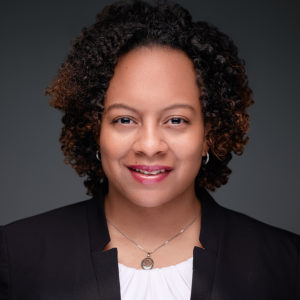
by Tashia Bunch, CLE Co-Chair
Thank you to all that participated in the 17th annual IP and Social Justice CLE program. Our program is the longest running IP and social justice CLE program in the country. We work hard to start conversations surrounding diversity in IP and to help ensure these conversations continue to take place. And our conversations aren’t just theoretical, we focus on real world solutions for increasing awareness of social justice issues and diversity in the field of IP. We focus on diversity in several ways; diversity of our CLE panelists, diversity of attendees, and discussions of how IP ownership impacts diverse communities.
Diversity of our CLE panelists: Every year we feature Howard Law alumni on our panels and we attempt to include someone from a minority group on every panel. This year all but two sessions included a minority speaker.
Diversity of attendees: Each year we attract a highly diverse audience to attend our program. This year, the program was held at Howard University School of Law attracting students and alum of the prestigious HBCU (Historically Black Colleges and Universities). Additionally, we offer a discounted rate for alumni of Howard Law and next year we expect to expand that discount to attendees that are alumni of any HBCU in the nation.
Discussions of impact of IP on diverse communities: Every year, we ask all of our speakers to be sure that they discuss the social justice implications of the topic they are covering at our program. We also host a social justice luncheon which annually features one or two discussions of IP rights and social justice.
This year, we had sessions featuring discussions on ways to increase diversity in the IP bar, including federal judges offering career and practice tips to Howard Law students in attendance to increase the pipeline into the profession to in house counsel discussing ways to increase diversity and inclusion at their own companies and within the law firms they work with.
This year’s social justice luncheon featured two topics. The first was a discussion of the recently passed California Pay to Play Act and the fairness of allowing student athletes to be compensated for use of their name, image, or likeness and what this law and others like it that are being circulated in state legislatures around the country could mean for student athletes. The second panel “Remembering Invention of a Slave: Patents and the Continuing Struggle for Civil Rights” discussed inventorship and the struggle to acquire patents in the African American community.
If you weren’t able to attend this year, you missed a day of lively and engaging discussions. We hope that you will consider joining us next year. Thanks to one of our sponsors, Microsoft, we were able to record several of the CLE sessions this year. We plan to share some of these videos with you throughout the year to encourage you all to engage in these conversations.
Please save the date for next year’s conference – Friday, March 5, 2021
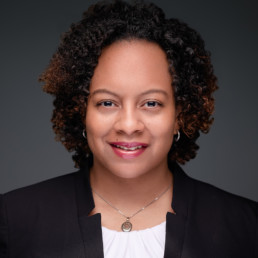
Tashia is a 2006 graduate of Howard University School of Law, which is how she first learned about IIPSJ. She currently works as a Legal Policy Attorney in the Office of the Deputy Commissioner for Trademark Examination Policy at the United States Patent and Trademark Office (USPTO). Previous positions at the USPTO included serving as the Acting Trademarks Chief of Staff and as a trademark examining attorney.
Blog Post On Trademarks and Black Lives Matter
Trademarks and Black Lives Matter
Black Lives Matter. I Can’t Breathe. Say Her Name. George Floyd. Trayvon Martin. Breonna Taylor. Unfortunately, the list of phrases and names goes on. With each police involved killing, a new hashtag is born. And after awhile we see it everywhere. Used in connection with social media posts, on protest signs and t-shirts, and in connection with requests for donations to support change.
Whenever a death occurs, there is usually a slight influx of trademark applications submitted to the USPTO. For example, there are 30 applications that have been filed with the phrase Black Lives Matter, 13 applications with the phrase I Can’t Breathe, and 3 that include the name Trayvon Martin. Applications are filed by a variety of sources, including individuals, newly created foundations, the deceased’s estate, or other organizations.
Many of the applications have been abandoned after receiving one of two refusals for registration. The first refusal these applications may receive is because they suggest a false connection with someone or their estate, and that individual is not connected to the trademark application. For example, one application for the mark I Can’t Breathe was refused registration for a false connection with the estate of Eric Garner. Those that can show connection to the individual or institution can overcome this refusal.
Another refusal these applications receive are because they are such a commonly used phrase that consumers will not recognize it as a trademark. In other words, the term or phrase is used by so many that the public would not believe it is supposed to indicate one particular source. Instead they would read the phrase as simply indicating support of the message or movement. This refusal can be overcome by submitting evidence that the public will view the mark to indicate a single source.
If you see a trademark application in the USPTO records and have evidence that it is owned by a group other than those actually connected with the movement or individual, you can contact the USPTO through a letter of protest. More information on submitting letters of protest can be found on the USPTO website at https://www.uspto.gov/trademark/trademark-updates-and-announcements/letter-protest-practice-tip .
Although many are unable to register these names and phrases with the USPTO, they may still use them in connection with their products and services. Not all that are using the names and phrases are part of the movement. Check out this NPR story about the Black Lives Matter foundation which has collected millions of dollars during the recent protests, but has no connection the well-known Black Lives Matter Global Network foundation: https://www.npr.org/2020/06/16/878852994/a-company-that-profits-off-of-the-black-lives-matter-movement.
As we choose groups to support through sharing information, purchasing products, or donating money to an organization, we should be sure to check the source that we are supporting. Website and social media “about” pages or sections should give additional details about the organization to confirm whether it’s the group you actually want to support.
Black Expression, Black Protests, and Black Lives
Black Expression, Black Protests, and Black Lives
A Look at What Black People Have to Lose At the Hands of the EARN IT Act
We are living history: a pandemic that has disproportionately killed Black people, the murders of Ahmaud Arbery, Breonna Taylor, and George Floyd, and the racial reckoning that soon followed. All this in the final months of a presidential election. There has never been a more important time to fight for free speech online than now.
This Administration’s position on this moment in history was made clear during the White House’s July 4th celebrations. Standing in a packed amphitheater in front of Mount Rushmore, President Trump delivered a divisive speech that described his presidential campaign as a battle against a “new far-left fascism” seeking to wipe out the nation’s values and history. He went on to describe protestors as “angry mobs...trying to tear down statues of our founders, deface our most sacred memorials and unleash a wave of violent crime in our cities.”
The President made no mention of the disproportionate impact of Covid-19 diagnoses and deaths among Black Americans or the validated fear that policies to open up communities will not be borne equally. Nor did he mention the images and videos of horrific police violence against Black Americans — especially the deeply disturbing killing of George Floyd — that went viral on platforms like Facebook, YouTube, and Twitter, sparking protests in all fifty states.
Amidst that spark, social media platforms became a tool to organize our activism, amplify our voices, and share our version of current events - a phenomenon that would have been actively impeded without Section 230. Written in 1996 by former Congressman Chris Cox (R-MN) and Congressman Ron Wyden (D-OR), Section 230 fostered free speech and innovation online by establishing that users, not the website that hosts their content, are the ones responsible for what they post online. It also gave companies the ability to limit exposure to offensive content like tweets that glorify violence without fear of being sued for bias or having their site shut down.
This past week, the Eliminating Abusive and Rampant Neglect of Interactive Technologies Act of 2020 (EARN IT Act), a law that forces online platforms to change how they moderate content online by censoring more of their users’ communications, was voted out of committee. Under the EARN IT Act, platforms would lose Section 230 protections and likely take drastic measures to mitigate their exposure. Measures that would not only limit free speech across the Internet but will disproportionately silence the voices of Black people.
It goes without saying that even with the protections of Section 230, social media companies continue to struggle with the task of content moderation. But we have to consider the strong possibility that without Section 230, sites would either limit what users can post, to avoid being sued, or stop moderating entirely. In the first scenario, content like the videos that captured the officer kneeling on George Floyd's neck and Eric Garner’s haunting final words of “I can’t breathe,” would have been blocked from social media platforms. In a world without 230, platforms might not allow posts that are critical of the Administration’s response to the pandemic because they could be interpreted as defamatory. In the second scenario, sites would choose not to moderate at all, and thus avoid responsibility for anything their users post. These sites would be breeding grounds for false, dangerous and hateful content.
In the days leading up to one of the most important elections of our lives, we cannot support any acts by Congress that will stifle our ability to power our movements and express ourselves. The EARN IT Act endangers the momentum of our activism and our ability to lift up our own narratives.
Blog Post On Diversity and Innovation
Blog Post on the Importance of Diversity and Innovation
by Tashia Bunch, IIPSJ Administrative Director
The 2018 SUCCESS Act required the US Patent and Trademark Office (USPTO) to work with the Small Business Administration (SBA) to determine the number of patents owned by women, minorities, and veterans and to provide recommendations to increase that number. A report was provided in 2019 that included steps the USPTO plans to take as well as legislative recommendations. One such step by the USPTO was the launch of the National Council for Expanding American Innovation (NCEAI) initiative last month. The initiative includes representatives from private companies, academia, and government to help the agency develop a comprehensive national strategy to build a more diverse and inclusive innovation ecosystem.
As we explore ways to build this ecosystem, we must acknowledge why this is important to the country as a whole and specifically in minority communities, identify current barriers to equal access and opportunities, and provide solutions for breaking down those barriers.
We know that increasing innovation is valuable to society as a whole. This idea appears in the U.S. Constitution when it grants Congress the power to issue patents and copyrights in order to promote the progress of science and useful arts. Today, the United States promotes itself as a global leader and continuing contributions in science, technology, engineering, arts, and math (STEAM) fields are necessary to remain in that position. Moreover, creativity and innovation often lead to new business ventures and avenues for income contributing to the national economy and job creation.
Increasing IP creation and ownership in minority communities will contribute to these societal goals. It is also important to address economic justice principles of equitable access to financial opportunities. Creativity and innovation can lead to financial freedom through IP ownership and entrepreneurship. Access to education in STEAM fields beginning as early as elementary school as well as resources and community programs providing access information and assistance in protection and monetization can help expand IP creation and ownership in minority communities. As such, we strongly advocate for policies and programs providing education and access to the tools and information necessary to innovate and to monetize their innovations.
IIPSJ encourages a continuing dialogue on this important topic both on the impact and value of diversity in innovation and creativity and on ways to increase diversity in STEAM fields. Earlier this year at our annual CLE program, we featured a panel presentation titled “Remembering Invention of a Slave: Patents and the Continuing Struggle for Civil Rights”, which discussed inventorship and the struggle to acquire patents in the African American community from slavery to the present. You can view this discussion on our YouTube channel.
We have also shared a variety of materials discussing the topic in our monthly newsletter. Materials such as the NPR podcast and post detailing how conditions during the periods of post-Reconstruction and Jim Crow obliterated the legal incentives for black inventors to apply for patents and otherwise undertake innovative endeavors. Along with the story of Percy Julian, a chemist who managed to innovate and acquire over 130 patents during Jim Crow. Additional links below.
IIPSJ will continue to engage in continuing conversations on this topic, advocating for policy changes to serve minority communities and looking for other ways to help further the conversation and make change.
Links:
– USPTO launched the Expanding Innovation Hub, an online platform available on the USPTO website that provides resources for inventors and practitioners to encourage greater participation in the patent system
– Invention of a Slave and the Ongoing Movement For Equal Justice, by Dennis Crouch
– Motion Picture Association panel “Understanding Copyright’s Role in Diverse Storytelling”
– Copyright Alliance – Educational content addressing race and racism
Blog Post On IP Empowerment for All
IP Empowerment for All
– Howard University School of Law’s Intellectual Property Student Association
THE PROBLEM
“In a system where billions of dollars are generated in part due to the athletic success of student-athletes, the restrictions on non-game related NIL deals do not prevent exploitation— they are exploitative.” – Professor Gabe Feldman, Tulane Law School; Director, Tulane Sports Law Program; Associate Provost for NCAA Compliance
***
While O’Bannon’s decision and the subsequent law changes in California and Florida is great progress around name, image, and likeness (“NIL”) as it pertains to the NCAA and student athletes, it has also created some other issues.
Uniformity is one of those issues. With the absence of federal legislation covering NIL standards for college athletes, California’s Fair Pay to Play Act has in essence created a “venue shopping” system where student athletes can choose a school to attend simply because it’s located in a state with more favorable NIL laws. In addition, large amounts of conflicting legislation can lead to mass confusion.
The other issue is that, in other states, students are dealing with the traditional harms of student athletes in the market for non-game NIL payments:
- Student athletes—just as other students—have property rights in their name, image and likeness. Many student athletes have created tremendous value in their NILs and, absent NCAA restrictions, would receive significant compensation for them in an open market. These men and women—often from socio-economically disadvantaged families—are deprived of the economic benefit the market would pay for their property.
- Some student athletes will actually have the most value to their NIL while they are in school. For example, some athletes are injured prior to professional drafts. Therefore, the NCAA’s policy prevents those athletes from properly capitalizing off of their image when it is most beneficial for them to do so.
- But most importantly, the stripping of an innate, legal right in consideration for the ability to play a sport (without any education about its existence) leaves the athletes less inclined to know how to properly use and commercialize their IP in the future.
THE MISCONCEPTION
One of the most common complaints against “Fair Pay to Play” is the argument that athletes do not deserve to be paid for playing a sport. This usually comes from people with little understanding of NIL or the NCAA’s policy, and rests solely on the literal meaning of the phrase.
But it’s important not to confuse third-party NIL compensation with other types of compensation. Most importantly, the NCAA is not contemplating changes that would allow colleges to pay college athletes. The Board of Governors remains fiercely opposed to “pay for play” and other forms of university-to-athlete compensation outside of the grant-in-aid (tuition, fees, room and board, required course-related books etc.). Third-party compensation for NIL is also not compensation for the underlying labor of playing a sport. No college will be allowed to pay their athletes for their NIL or their labor. The legislation would merely allow for student athletes to have the same NIL rights as every other student-creator.
THE SOLUTION
Howard University School of Law’s Intellectual Property Student Association (“IPSA”) has held a long-standing devotion to the application of social justice in the area of IP. It naturally follows that we would like to support a federal bill that would give college athletes the opportunity to profit off of their image and likeness that they have worked hard to curate.
Currently IPSA and our IP Empowerment For All subcommittee is in the process of updating research on current legislative proposals regarding NIL. This research will be imputed into a one-pager that more thoroughly addresses the need for particular federal legislation in this area. Then, we can utilize the paper as a tool to persuade our peers and colleagues to sign a petition in support of the proposal. While the NCAA’s proposal to Congress is effective in addressing uniformity, the language of the proposal is still very restrictive for student athletes.
As a result, we are working diligently to ensure that the proposed bill we choose to endorse and share addresses concerns across our communities and reflects our mission of social justice.
We are confident that armed with the correct information, many people will see that this proposal is long overdue. Please continue to check this space for our selected proposal and link to our petition!
Blog Post IP Attorney Interviews
Interviews with Attorneys of Color in IP
In 2020, spring and summer protests of racial injustice and mistreatment by police increased momentum to a movement to support diversity and inclusion in a variety of spaces, including in the legal field. Our work at the Institute has always included efforts to increase the diversity of the intellectual property legal bar. In 2003 the Institute established its annual IP and Social Justice CLE program, in part to provide opportunities for IP attorneys of color to present their expertise before IP experts in in-house corporate and governmental legal departments, elite law firms, and other IP entities. For the past seventeen years, this program has also enabled minority IP attorneys to serve as role models for dozens of law students and to encourage them to pursue careers in IP practice.
We believe the lack of diversity in the IP legal bar must be addressed in a variety of ways. We previously shared the Bloomberg Law article, Black IP Lawyers Who’ve Made It Look to Grow Ranks Beyond 1.7%. Now we build on that conversation starter with interviews with successful IP attorneys of color to hear their honest perspective:
- Esther Lim
- Mariessa Terrell
- Daryl Lim
- Jennifer Hayes
- Lita Rosario-Richardson
- Philip G. Hampton
- Idris N. McKelvey
Esther Lim
This month we feature an interview with Esther Lim.
Watch the full interview here.

Esther H. Lim is Partner & Chief Diversity and Inclusion Officer at Finnegan, Henderson, Farabow, Garrett & Dunner, LLP, and Patent Chair of the IIPSJ IP and Social Justice CLE program. Watch as she provides valuable insight into her personal journey to a career in patent litigation, portfolio management, licensing, and counseling, and the importance of diversity in intellectual property practice.

The interview was conducted by Ariel Batiste, a 2023 graduate of Howard University School of Law, and current associate at Finnegan.
Mariessa Terrell
This month we feature an interview with Mariessa Terrell.
Watch the full interview here.

With evolving definitions on what intellectual property includes and rapidly emerging technology, trademark and fashion attorney Mariessa Terrell discusses the unconventional career pathways taken that launched her to the forefront of a landscape shift in intellectual property law.
From her beginnings as a student at Howard University School of Law, Mariessa found a way to incorporate her love of fashion into her journey. Landing at the United States Patent and Trademark Office(USPTO) in the department responsible for beauty fashion matters was just the beginning. Since then, she has gone on to develop specialized practice areas at her law firm, served as D.C. Fashion Commissioner, and assumed the role of Adjunct Professor & Supervising Attorney of the Howard University School of Law Intellectual Property Law Clinic. She details that staying focused on what she wanted helped navigate her through her unique route to success.
After an extended hiatus, Mariessa made her way back to the USPTO office where she is the Attorney Advisor to the Trademarks Customer Outreach section where she develops the USPTO educational programs for experienced trademark practitioners. She also is Executive Director of the High Tea Society, a mentoring program for girls in Washington, D.C., and a creative writer with several published short stories featuring her alter ego, Simone Butterfly.
Contact Mariessa:
Web: MariessaTerrell.com
Social Media: @MariessaTerrellEsq
Email: M@MariessaTerrell.com

This interview was conducted by Leeandria Williams, a law student at Thurgood Marshall School of Law.
Daryl Lim
This month we feature an interview with Professor Daryl Lim.
Watch the full interview here.

Professor Daryl Lim is a very busy man. He is the H. Laddie Montague Jr. Chair at Penn State Dickinson Law, associate dean for Research and Innovation, and the founding director of Dickinson’s IP and Innovative Initiative. Incredibly, Professor Lim is also a co-hire in Penn State’s Department of Computational and Data Sciences, and an affiliate at Penn State’s Center for Socially Responsible Artificial Intelligence.
Truly IP’s international man of mystery, Professor Lim is an alumnus of the University of Singapore, the University of London (London School of Economics), and Stanford University. In addition to his professorial duties, he serves as a peer reviewer for several leading law journals as he is himself an award-winning author on the intersection of IP, technology, competition policy, and the public good.
During the interview, Professor Lim tackles the hard-hitting questions, including whether the practice of law as we know it will survive the current influx of generative AI chatbot programs, like “ChatGPT.” Thankfully, Professor Lim assures us that future lawyers who possess distinctly human characteristics–such as empathy, creativity, and a passion for social justice–will always be able to add value.

This interview was conducted by Liana Alston, a third-year law student at Howard University School of Law.
Jennifer Hayes
This month we feature an interview with Jennifer Hayes.
Watch the full interview here.
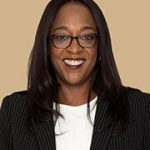
In this interview Jennifer Hayes, head of Jordan IP Law’s Pharmaceutical, Biotechnological, Life Sciences, and Chemical and Materials Practice groups gives her perspective on diversity in the legal profession and the importance of mentorship. Early in her career, Jennifer followed in her father’s footsteps and became a registered pharmacist in the state of Maryland. Later, her mother encouraged her to seek out a career in patent law.
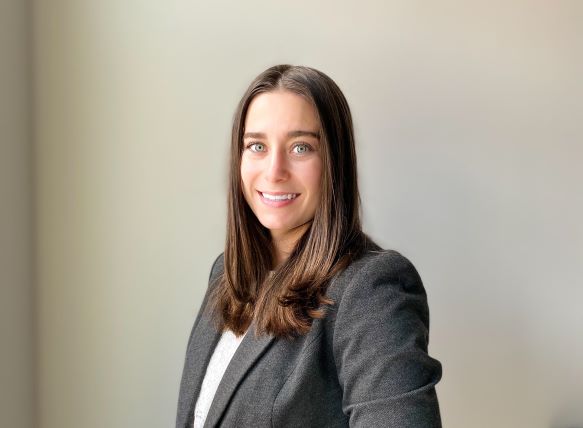
This interview was conducted by Erin Williamson, a third year law student at The George Washington University Law School. in the interview, Jennifer stresses the importance of “not taking no for an answer” and diligently pursuing opportunities to grow in one’s practice. In the interview, Jennifer talks about her experiences building Jordan IP’s chemical practice from the ground up and the challenge of bringing in new clients. Throughout the interview is one consistent theme: understand your strengths and never stop seeking opportunities to improve yourself.
Lita Rosario-Richardson
This month we feature an interview with Lita Rosario-Richardson.
Watch the full interview here.

Lita Rosario-Richardson runs WYZ Girl Entertainment Consulting, where she provides legal advice and advocacy for creators relating to intellectual property and entertainment issues. Early in her career, Mrs. Rosario-Richardson founded and was the VP of Business and Legal Affairs for University Music Group which produced multi-platinum artists Dru Hill, Sisqo, and MYA. She has represented numerous artists, including George Clinton, Missy Elliot, members of Parliament Funkadelic, Afrika Bambaataa, and Soul Sonic Force to name just a few. She is also an adjunct professor at the University of the District of Columbia’s Department of Mass Media, Visual, and Performing Arts and American University’s Kogod School of Business.
Philip G. Hampton
This month we feature an interview with Philip G. Hampton.
Watch the full interview here.
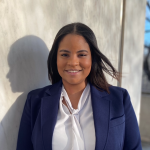
The interview was conducted by Elizabeth Rice, a third year law student at Howard University School of Law. In this interview, Chief Diversity & Inclusion Officer, Senior Partner and former Commissioner for Trademarks Phillip Hampton provides his perspective on diversity, the importance of mentorship, and success within the legal profession. Outside of his aforementioned experience, he is also an adjunct professor at Howard University School of Law and was recently awarded the 2021 Mark T. Banner Award, among many other recognitions and accomplishments.
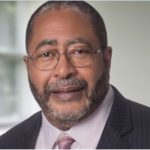
Throughout the interview Hampton emphasizes the need to increase the presence of women and minorities in the legal profession, especially in the areas of patent and copyright law. He makes mentions of his own efforts in his former position as Commissioner for Trademarks to do just that. He attributes his personal success to his persistence and sometimes, admittedly, his stubbornness. In the interview, Hampton talks about his experiences early on in his career and how those challenges encouraged him to persist and work harder. While a broad range of topics and anecdotes are covered, a consistent theme is Hampton’s dedication and commitment to helping others achieve success in the legal profession.
Idris N. McKelvey
In December 2020, we featured an interview of Idris N. McKelvey.
Idris McKelvey leads the Estée Lauder Companies’ Patent Group, where he is responsible for designing and executing the company’s global patent strategy, supporting more than 30 luxury cosmetics brands. Idris was promoted to Vice President, and Lead Patent Counsel, in July of 2018.
Prior to Estée Lauder, Idris served as patent counsel for Procter and Gamble, managing global patent portfolios for brands including Pantene®, Head and Shoulders®, Herbal Essences®, Cascade®, and Dawn®.
Idris earned his J.D. from Howard University School of Law in 2005, and his B.S. in chemistry from Howard University in 2002 (cum laude). Away from work, Idris volunteers with the Long Island chapter of Girls Inc. and Jack and Jill of America. Idris resides in Huntington, NY with his wife, Monique, and two daughters, Nadia and Zara.
The interview was conducted by LaTessa Gray*, a third year law student at Howard University School of Law. In the interview, Mr. McKelvey discusses his career as a patent attorney, provides advice for future IP attorneys, and discusses the diversity, or lack of diversity, of the IP bar.
Here’s a description of the interview in Tessa’s own words.
Vice President, Lead Patent Counsel of Estee Lauder, and full-time “girl dad” Idris McKelvey is nothing short of inspiring. In this interview, McKelvey gives his perspectives on the lack of diversity in the legal profession, how to distinguish yourself amongst legal talent, and the importance of accepting and seeking honest critique in career development. He also negotiates a frozen yogurt date with one of his daughters.
McKelvey details an insightful approach to his philosophy of success which includes falling into opportunities, self-accountability and awareness, and fostering intellectual curiosity. But this is not all talk. His commitment to the skills he believes were useful in his journey is evidenced by his own hobbies and interests: listening to a variety of music, travelling the world with his wife and daughters [which has been on a halt with the virus], and reading books that push him to think and approach the world differently. Many years removed from his days as a chemistry major at Howard University, McKelvey still makes an effort to learn from the world around him and to use those teachings as a tool to differentiate himself within the legal field.
Blog Post On NIL and Antitrust
NCAA’s Proposed NIL Regulations Are an Antitrust Violation Waiting to Happen
 by Ronald S. Katz
by Ronald S. Katz
The NCAA is no stranger to antitrust violations. Defendant in a landmark U.S. Supreme Court antitrust case in 1984, the NCAA has been on the wrong side of two Ninth Circuit decisions in the past five years (a blink of the eye in antitrust time). That record of recidivism, however, has not stopped the NCAA from, once again, ignoring the free market and proposing new regulations (“Proposal”) on the sale of the names, images and likenesses of college athletes. The Proposal, not surprisingly, runs afoul of those earlier court decisions.
Names, images and likenesses have been sold since time immemorial in a free market. Of course, in a free market, these transactions are confidential. How much someone is being paid for a name, image or likeness is clearly competitively sensitive information.
Such confidentiality will not exist in the contracts of college athletes, however. According to the NCAA’s October 14, 2020 press release on the Proposal, “student-athletes would be required to disclose name, image and likeness activities including compensation arrangements and details of relationships developed through the process.” Such disclosures would be made to what the press release calls “a third-party administrator.”
Also, a free market enables competitors to deal with whom they please. According to the press release, however, there will be significant restrictions on the college athletes. First, they cannot “particpate in activities involving a commercial product or service that conflicts with NCAA legislation (such as sports wagering or banned substances) … ” However, sports betting and so-called banned substances like cannabis are, of course, legal in many states.
More ominously, according to the press release, “schools would have the opportunity to prohibit activities that conflict with school values or existing sponsorship arrangements.” Because many of the schools have sponsorship arrangements with major sports equipment/apparel companies like Nike and Adidas, this is a significant curtailment of competition. As for “school values,” this hopelessly vague phrase has the potential of blotting out all NIL activity by college athletes.
Measuring the Proposal against the major antitrust cases lost by the NCAA paints a clear picture of antitrust violations on the horizon. The 1984 U.S. Supreme Court case, for example, NCAA v. Board of Regents of the University of Oklahoma, 468 U.S. 85 (1984), involved the NCAA’s policy of curtailing the number of football games a school could televise, much as the Proposal curtails the quantity of names, images and likenesses that a college athlete can sell.
The Supreme Court’s holding was foursquare against the NCAA: “that the record supports the District Court’s conclusion that, by curtailing output and blunting the ability of member institutions to respond to consumer preference, the NCAA has restricted, rather than enhanced, the place of intercollegiate athletics in the Nation’s life. Accordingly, the judgment of the Court of Appeals [against the NCAA] is Affirmed.”
The Proposal does not fare any better under the 2015 Ninth Circuit case, 0 ‘Bannon v. National Collegiate Athletic Association, 802 F.3d 1049 (20!5). That case involved paying athletes for their names, images and likenesses, which was completely forbidden at that time.
The Ninth Circuit held that higher educational institutions were prohibited from preventing such payments up to the cost of attendance at an institution of higher education: “In this case, the NCAA’s rules have been more restrictive than necessary to maintain its tradition of amateurism in support of the college sports market. The Rule of Reason [of the Sherman Antitrust Act] requires that the NCAA permit its schools to provide up to the cost of attendance to their student athletes.”
The Proposal also does not meet the standards of the 2020 Ninth Circuit case, In re National Collegiate Athletic Association Athletic Grant-in-Aid Cap Antitrust Litigation, No. 19-15566 (May 18, 2020). That case involved paying athletes for education-related expenses. The Ninth Circuit opinion prohibited the NCAA member schools “from enforcing rules that restrict the education-related expenses that its member institutions may offer students who play Football Bowl Subdivision football and Division I basketball.” Again, the Ninth Circuit’s holding was crystal clear: “the district court properly concluded that NCAA limits on education-related benefits do not ‘play by the Sherman Act’s rules.”‘
Based on the above, the Proposal, if it is enacted by the NCAA, will violate the antitrust laws. As Senator Richard Blumenthal of Connecticut was quoted in the November 14, 2020 issue of USA Today, the Proposal was “functionally useless” and “will do little to change the current exploitive state of college athletics.”
Ron Katz is a Senior Counsel at GCA Law Partners LLP in Mountain View, California. A co-author of the textbook Sport, Ethics and Leadership (Routledge, 2017), he will be speaking on the subject covered above at the 2021 IP and Social Justice CLE this coming March 5.
For more on this topic, check out these posts:
Recent Name/Image/Likeness Legislation Will Change the NCAA (or Not)
The California Fair Pay to Play Act- Finally IP Social Justice for Student Athletes
Blog Post On The SUCCESS Act
THE SUCCESS ACT: WHERE WE STAND & THE PATH FORWARD
In this post, Brittany Amadi and Gary M. Fox outline the goals and findings of Congress’ SUCCESS Act and expose the correlation between lack of diverse inventors and lack of diversity within the STEM field.
The SUCCESS Act was intended to address racial and gender disparity in USPTO applications by requiring the government to conduct a study on applications submitted by and patents issued to women, minorities, and veterans. Later on in October 2019, the bleak findings were made public and the USPTO carried on with five recommendations to address the disappointing report, which Amadi and Fox draw out in this post.
But Amadi and Fox also suggest that, while good starting points, the Act and the following recommendations fail to address the root of the problem. They argue that it is only and until we tackle the underrepresentation of women and minorities in the STEM field during the earlier stages of intellectual development that we can mitigate discrepancies of underrepresentation in inventorship.
For more on this topic, check out these posts:
IIPSJ’s Comments to USPTO on strategy for National Council for Expanding American Innovation
IIPSJ Comments On the National Strategy for Expanding American Innovation
Diversity in IP enterprise and innovation is critical and long overdue. The need has been highlighted in the USPTO report in response to the SUCCESS Act. IIPSJ Comments on NCEAI (1)
Blog Post On The IDEA Act
THE INVENTOR DIVERSITY FOR ECONOMIC ADVANCEMENT (IDEA) ACT OF 2021
Senator Mazie K. Hirono (D-Hawaii), Senator Thom Tillis (R-N.C.), Congresswoman Nydia M. Velázquez (D-N.Y.), and Congressman Steve Stivers (R-Ohio) re-introduced the Inventor Diversity for Economic Advancement (“IDEA”) Act in March 2021 to ensure equal access to the U.S innovation system.
Tillis cited several studies that show women and minorities apply and obtain patents at lower rates than male white counterparts. In fact, women make up only 13% of inventors, and Black and Hispanic graduates apply for patents at half the rate of White graduates.
To address these discrepancies, the IDEA Act would direct the USPTO to collect demographic information from patent applicants voluntarily. It also requires the USPTO to make the data publicly available in addition to reports on the data. This will help other researchers analyze the issue and offer solutions to the problem. The proposal now awaits judiciary committee review.
Data collection is the first step to identifying areas of change. You can access the text to the legislation here.
For more on this topic, check out these posts:
IIPSJ’s Comments to USPTO on strategy for National Council for Expanding American Innovation
Blog Post Status Update on Student Athlete NIL Legislation
Status Update on Student Athlete NIL Legislation
by Cole Baker
Name, image, and likeness (NIL) legislation takes effect in 7 states throughout July. These states (Alabama, Arizona, Florida, Georgia, Mississippi, Nebraska, and New Mexico) are part of a nationwide push by state legislatures to enact laws that allow for collegiate student-athletes to profit off their NIL. 39 states have introduced bills to their legislatures, and 16 states have officially signed NIL legislation into law.
How We Got Here
In September 2019, Gov. Gavin Newsome (CA) signed into law California’s Fair Pay to Play Act making it unlawful for universities to revoke a student-athlete’s scholarship for receiving compensation from use of his or her NIL in a commercial nature.¹ After numerous states followed suit by enacting similar legislation, the NCAA Board of Governors released a statement indicating that it would look to “modernize” its rules and add “flexibility” to its policy of banning any monetization of NIL by participating student-athletes.² After months of deliberation and direction to each subdivision of competition to discuss changes to its policy, the NCAA released another statement in April 2020 indicating that it is supportive of allowing athletes to sign endorsement contracts and appear in advertisements.³ The NCAA received draft legislation from each of its 3 subdivisions for updates to NIL policy in November of 2020.4
The NCAA has repeatedly called on Congress to enact federal legislation to both standardize NIL policy on a national scale and carve out an antitrust exemption for the NCAA to allow caps on NIL compensation earned by its athletes.5 So far there have been 8 bills introduced to Congress dealing with the issue. The Senate Committee on Commerce, Science, and Transportation held a hearing on June 9th to receive testimony on the issue of NIL for collegiate athletes, how a national policy would benefit consistency and fairness of its implementation both for institutions and athletes, and the competing interests at state between the NCAA, its member-institutions, and athletes. Senators Booker and Blumenthal stressed the importance of health-care related legislation being included in the prospective bill and championed their Athlete Bill of Rights. Mark Few, head coach of the Gonzaga men’s basketball team testified indicating it is embarrassing that nothing has been done thus far with respect to creating avenues for athletes to exploit their NIL rights. Mark Emmert, president of the NCAA, also testified urging the Senate Committee to consider five policy matters included in any NIL bill: (1) the bill put in place a unified national NIL model, (2) the bill support Title IX considerations, (3) the national policy expressly preempts state NIL law, (4) the bill safeguard the non-employee status of student athletes, and (5) the bill create legal exemptions for the NCAA and its member-institutions to antitrust concerns. Emmert received push back on the latter two recommendations from testifying witnesses and senators alike. Senator Cantwell, chair of the committee, concluded the hearing by indicating that due to the fact that more than half of the senate-committee members testified, the Commerce Committee is committed to get something done in regards to national NIL policy.
The NCAA has also received federal attention from the Department of Justice’s antitrust division, which undertook meetings and corresponded with NCAA officials regarding the policy reforms.6 The DOJ has expressed it’s wariness of the NCAA policies as violating antitrust laws. It has specifically taken issue with the antitrust concerns arising out of the NCAA’s purported 3rd-party “clearinghouse” agency proposal. The policy proposal indicates athletes would be forced to disclose NIL earnings to ensure compliance with a capped sum. The sum would be dictated by the NCAA’s determination of what represents a “fair-market value” for NIL.7 Furthermore, the Supreme Court heard oral arguments in Alston v. NCAA. While not dealing directly with NIL, it is an antitrust suit which may answer the question of whether the NCAA model is truly one of amateurism in a decision likely to be released this month.8 To learn more about the case, NPR recently looked into it in their Planet Money podcast.
A Summer of Change
So far, 39 states have introduced bills relating to student-athlete NIL compensation within their legislatures, and 16 of those states have signed these policies into law.9 The NCAA Division 1 council is expected to act on proposed policies on June 23, 2021.10 On July 1, 2021, NIL laws take effect in Alabama, Florida, Georgia, Mississippi, Nebraska (pending individual school adoption) and New Mexico; Arizona’s laws will take effect on July 23.
These state laws differ in scope. Some are less restrictive than the proposed NCAA policies, whereas others are more restrictive. For example, Mississippi’s law permits schools to prohibit athletes from wearing any clothes with a sponsoring-entity’s logo or insignia at any school-sponsored event, whereas the NCAA policy would regulate the appearance of athlete sponsors’ logos only during pre- and post-game activities.11 Furthermore, Mississippi prohibits athletes from receiving NIL compensation prior to enrollment in their first college class, whereas the current NCAA policy would allow for high school students to seek NIL compensation as early as their 9th grade year.12 On the other hand, New Mexico has some of the most lenient rules pertaining to NIL compensation. The state prohibits schools from terminating an athlete’s eligibility to participate or receive scholarships regarding any “food, shelter, medical expenses or insurance from a third party.” The state further prohibits schools from interfering with a student-athlete’s choice of footwear during any mandatory team activity.13
There are many questions left unanswered without a national policy in place from the NCAA or Congress. Will athlete’s still be subject to exploitation of their schools when most of the state laws leave determining acceptable commercial conduct up to the school’s own internal policy? How will school’s handle licensing issues where athletes appear in advertisements or promotions with their logos and insignia? Will athlete’s have their NIL earnings be capped or confined to monetary compensation, and is that even lawful under antitrust laws? Nevertheless, athletes in these seven states may be able to sign endorsement deals in July so long as they are compliant with state law. However, it is expected that the NCAA will file suit against these states if they do not come up with a national policy plan beforehand.14 Regardless, this summer marks the start of a new era of collegiate athletics which will undoubtedly change the landscape of sport for athletes who have for decades had their talents and work exploited by the NCAA model.
¹ CAL. EDUC. CODE §§ 67456-57 (2019).
² Board of Governors starts process to enhance name, image and likeness opportunities, NCAA (October 29, 2019).
³ Dan Murphy, NCAA group supports player endorsement plan, ESPN (April 29, 2020).
4 Taking Action–Name, Image, and Likeness, NCAA (2021).
5 Murphy, supra note 3.
6 Steve Berkowitz et. al., DOJ critical of NCAA’s view of antitrust compliance; association president Mark Emmert wants voting delay on rules proposals, USA Today (January 9, 2021).
7 Id.
8 Dan Murphy, Everything you need to know about the NCAA’s NIL debate, ESPN (May 24, 2021).
9 Tracker: Name, Image and Likeness Legislation by State, Business of College Sports (June 2, 2021).
10 Murphy, supra note 8.
11 Steve Berkowitz, Name, image and likeness laws vary by state. A closer look at those going into effect July 1., USA Today (May 28, 2021).
12 Id.
13 Id.
14 Murphy, supra note 8.
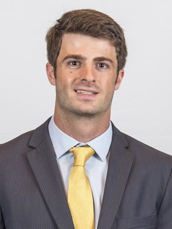
Cole Baker is a summer intern with IIPSJ. He is a rising 2L at the University of Maryland Francis King Carey School of Law.
For more on this topic, check out these posts:
Video: Right of Publicity Update
NCAA’s Proposed NIL Regulations Are an Antitrust Violation Waiting to Happen
Recent Name/Image/Likeness Legislation Will Change the NCAA (or Not)
The California Fair Pay to Play Act- Finally IP Social Justice for Student Athletes
Blog Post TPAC/PPAC Nominations
USPTO Seeking Nominations for Vacancies on the TPAC and PPAC
by Delaney Halvey
The U.S. Patent and Trademark Office (USPTO) is seeking nominations to fill upcoming vacancies on the Trademark Public Advisory Committee (TPAC) and Patent Public Advisory Committee (PPAC.)[1] TPAC and PPAC committee members are responsible for representing the diverse interests of the users of the USPTO with respect to trademarks and patents. Some of their recent work included in the TPAC and PPAC 2020 Annual Reports includes: a TPAC commendation of Trademark Operations during the COVID-19 pandemic, including modernization of IT products and adaption to teleworking; formation of a PPAC AI Subcommittee to provide guidance to USPTO leadership; TPAC review of the TTAB expedited cancellation pilot program aimed at “decluttering” the Trademark Register; and PPAC oversight of a Congress-driven effort to diversify inventorship.[2]
As these projects highlight, the members of these committees have an important and influential role in USPTO operations. They keep the USPTO accountable to their goals, both self-generated and passed down from Congress, while also providing input into future goals. Because there are several degrees of separation between the operations of the USPTO and the votes of stakeholders, the committees remind USPTO leadership of these stakeholders’ interests. Examples of this middleman role include public meetings, which provide a public forum for interested parties to air their opinions, and fee setting hearings, which allow for stakeholder testimony.
For the committees to be effective representatives of the community who uses the USPTO system, it is vital that their membership reflect the diversity of this community. Federal law requires each member to have a “substantial background and achievement in finance, management, labor relations, science, technology, and office automation,”[3] and provides only that small and large entity applicants must be represented.[4] Perhaps as is to be expected, the committees have been historically biased in memberships towards representatives of large entity applicants. Aside from the size of the entity applicant, other diversities the committee membership would benefit from reflecting include: the racial and cultural background of applicants, the industry of applicants, the gender identity of applicants, and the geographic location of applicants.
Nominations must be submitted electronically by completing the corresponding Public Advisory Committee application: https://tinyurl.com/ynae4a67 for the Patent Public Advisory Committee, or https://tinyurl.com/hcux6462 for the Trademark Public Advisory Committee. These applications ask for detailed contact information for both the nominating and nominated party, as well as information regarding publications, awards, credentials, and details about the organization represented by the nominated party. Nominations will be accepted on or before July 9, 2021.
[1] https://www.uspto.gov/about-us/news-updates/uspto-seeks-nominations-patent-and-trademark-public-advisory-committees
[2] https://www.uspto.gov/sites/default/files/documents/TPAC_2020_Annual_Report.pdf & https://uspto.gov/sites/default/files/documents/PPAC_2020_Annual_Report.pdf
[3] 35 U.S.C. 5(b)(3)
[4] https://www.federalregister.gov/documents/2021/05/25/2021-11047/patent-and-trademark-public-advisory-committees
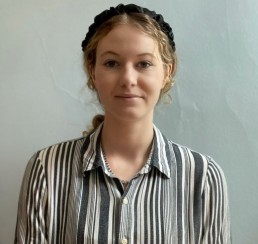
Delaney Halvey is a summer intern with IIPSJ. She is a rising second semester 3L at Georgetown University Law Center (graduating in December 2021.)
Blog,Policy,Diversifying IP Practice
Blog Post 2021 Summer Interns
Meet Our 2021 Summer Interns

Cole Baker is a rising 2L at the University of Maryland Francis King Carey School of Law. He is originally from Denver, Colorado. Cole graduated cum laude from the University of Delaware in the spring of 2020 where he played on the Division One men’s lacrosse team and double majored in Political Science and Economics. There, Cole was the chair of the men’s lacrosse team’s “Academic Weapons Committee,” an academic tutor for Political Science, Economics, and Science courses, and was a member of the Horn Center for Entrepreneurship. At Carey Law, Cole is a member of the National Trial Team which participates in mock trial competitions throughout the nation.
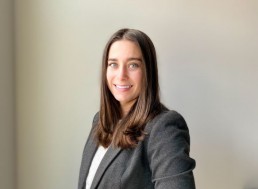
Erin Williamson is a rising third-year law student at The George Washington University Law School where she is concentrating her studies in intellectual property. Her interest in intellectual property began during her time as an undergraduate at Drexel University studying Music Industry Business. Erin aspires to pursue a career in copyrights and trademarks to advocate for the rights of creators. When she is not busy studying, she enjoys weightlifting and discovering new music for her ever growing Spotify library.

Delaney Halvey is a rising second semester 3L at Georgetown University Law Center (graduating in December 2021.) Delaney grew up in Tucson, Arizona, where she enjoyed hiking, camping, trail running, and mountain biking. In 2018, Delaney graduated from Texas A&M University with a degree in industrial engineering and minors in cybersecurity and math. As a college student, she knew she wanted to attend law school and was able to shadow several members of Raytheon’s legal department when she worked there as an engineering intern. As a law student, Delaney has worked in D.C.’s Landlord Tenant Resource Center, as a Research Assistant and Teaching Assistant at Georgetown, as an intern for the U.S. Office of Personnel Management Inspector General, and in her personal favorite job as a tennis coach at Brentwood Elementary. Delaney am excited for the opportunity to now be working for IIPSJ, and is looking forward to everything she will learn this summer.
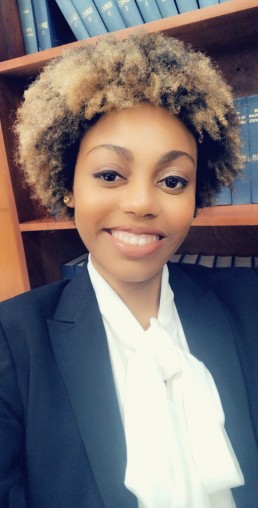
Sara Griffiths was born and raised in Kingston, Jamaica. After relocating to the United States for high school she went on to graduate magna cum laude from Miami-Dade College and thereafter transferred to American University and completed her education at the School of International Service. While there she earned a bachelor’s degree in International Studies with concentrations in Identity, Race, Gender and Culture and Peace, Global Security and Conflict Resolution with a regional focus in Latin America and the Caribbean. She is presently a law student at Georgetown University Law Center where she participates in both the Global Law Scholars and Human Rights Associates Program. She has interned at the Jamaican Court of Appeal, the 39th regional Caribbean Community (CARICOM) Heads of State Conference, and the Embassy of Jamaica at Mexico. She has particular interests in international human rights and public international law and intersectional and critical race theory and is fluent in English as well as Patois—the Jamaican Creole dialect.
Blog,Policy,Grassroots IP Awareness
Blog Post A Historic Victory for Student Athlete’s IP Rights—The NCAA Changes NIL Compensation Rules
A Historic Victory for Student Athlete’s IP Rights—The NCAA Changes NIL Compensation Rules
by: Cole Baker & IIPSJ Staff
Starting July 1, the NCAA changed its rules regarding student athlete commercial use and exploitation of their names, images, and likenesses (“NIL”) and their accompanying intellectual property rights, referred to as the right of publicity. For the first time in its history, the NCAA will allow member-schools to permit student-athletes to pursue opportunities to profit from their NIL and publicity rights, such as in product endorsement deals. The NCAA change in policy will finally allow student-athletes to participate in the billion dollar NIL industry derived from their talent, eradicating decades of unfair exploitation and IP social injustice. The NCAA adopts the new rules on an interim basis until “federal legislation or new NCAA rules” are enacted.
College Athletics as a Path to Education: The “Play for Pedagogy” Bargain
The modern tradition of the collegiate athlete is rooted in a bargain of the exchange of young athletic talent for a college education. However, with the advent of mass televised events and games, colleges and universities changed that bargain and insisted that student-athletes also allow them to exploit their NIL IP rights, but without adding anything to the student-athletes’ side of the deal. By unilaterally restructuring the student-athlete bargain, NCAA schools gained as much as $11 billion in revenues annually.¹ Seemingly everyone shared in these revenues, with the NCAA president earning more than $2 million a year, the top-50 Division 1 football coaches earning a median salary of more than $4 million a year, and NCAA schools receiving hundreds of millions of dollars in endorsements from athletic brands.²
Everyone benefited except the student-athletes. Under NCAA rules, students were not only denied a share in these revenues, they were also prevented from engaging in their own deals to benefit from their NIL intellectual property. For instance, for most of the past two decades, college athletes had their images and likenesses copied into video games but were not compensated by the video game makers. These rules even resulted in the loss of two University of Iowa swimmer’s eligibility due to a clothing line they created. The clothing line had nothing to do with swimming; however, the GoFundMe page that they used to start production mentioned that the two had met by swimming together at Iowa. In order to regain eligibility, both swimmers had to remove any pictures of themselves from the business’s website as well as any mention of University of Iowa swimming.³
A Policy Shift Toward IP Social Justice
In the wake of growing public criticism, targeted social activism, and a rapidly changing legal landscape, the NCAA Board of Governors voted on June 30, 2021 to approve a new policy, effective July 1. The Board announced that it had adopted a, “uniform interim policy suspending NCAA name, image and likeness rules” for student-athletes in every sport.
The policy is effective across “all three divisions,” and provides a four-prong guidance structure for member schools. The first guidance indicates that “Individuals can engage in NIL activities that are consistent,” with each school’s state law, and that schools “are responsible for determining whether those activities are consistent with state law.” The second indicates that athletes in states without a NIL statute can “engage in this type of activity” in accordance with NCAA rules. The third allows athletes to retain a “professional services provider” for advice in pursuing NIL monetization opportunities. Finally, the fourth guidance urges athletes to report their NIL activities to their schools.
The NCAA’s change in policy comes in response to immense public pressure, including new state laws and successful challenges to NCAA policies in the courts. In 2019 California enacted the “Fair Pay to Play Act”, which prohibits schools from preventing their student-athletes from exploiting their NIL intellectual property, and more than 30 other states soon passed similar legislation. Recently, in NCAA v. Alston the United States Supreme Court ruled in favor of an antitrust challenge to the NCAA’s policies, with Justice Kavanaugh noting that “the NCAA’s current compensation regime raises serious questions under the antitrust laws.”4 And the NCAA’s change in policy comes in the wake of a national conversation about systemic racial exploitation. While the NCAA’s compensation policies affect student-athletes of every race and gender, the disproportionate impact on black athletes, who make up the majority of athletes in the NCAA’s top revenue generating sports, football and basketball,5 has long been evident.
IIPSJ has long advocated for and today welcomes this progressive evolution in NCAA policy, which implements an IP social justice perspective toward student-athlete NIL intellectual property rights. While the policy change does not require schools to pay student-athletes, and still allows NCAA schools to capitalize on student-athlete NIL intellectual property through televised games, merchandising deals, and the like, the change in policy finally allows the student-athletes the chance of also benefiting from their intellectual property.
The NCAA is not out of the weeds of litigation, however. There is another consolidated class action in progress in the Northern District of California where athletes are claiming the NCAA’s rules on NIL are in violation of antitrust laws. Notwithstanding the NCAA’s changed policy, the suit goes further than what the NCAA’s policy change did. It seeks to permanently tear down all remaining NIL strictures. Furthermore, the suit seeks to recoup and distribute money to athletes made by the NCAA and its member conferences in licensing television rights.6
As the NCAA acknowledges, federal legislation is necessary to provide a national, uniform framework for student-athlete use of their NIL intellectual property rights. In the meantime, the new NCAA policy is an important step toward providing student-athletes a meaningful stake in the IP system, and fulfilling the social justice obligations of the intellectual property regime.
¹ Robert Zafft, Forbes, The Supreme Court, NCAA, and Juneteenth (July 5, 2021).
² Id.
³ Erin Jordan, The Gazette, Hawkeye swimmers’ clothing line causes NCAA violation (August 14, 2017).
4 NCAA v. Alston, 141 S. Ct. 2141, 2208 (2021).
5 NCAA.org, NCAA Demographics Database (March, 2021).
6 Zachary Zagger, Law360, NCAA Athletes Say Name, Image ‘Experiment’ Proves Case (July 27, 2021) (January 9, 2021).
For more on this topic, check out this page: https://iipsj.org/iipsj-advocacy/student-athlete-nil/
Blog Post UIC Law Name Change
UIC Drops John Marshall Name
by Delaney Halvey & IIPSJ Staff
Beginning on July 1st, 2021, The John Marshall Law School will no longer exist as it has for 122 years. The board of trustees voted in late May to rename the school University of Illinois Chicago School of Law, after a months-long review process spurred on by the rise of the Black Lives Matter movement after the murder of George Floyd in the summer of 2020.
The school’s original namesake, John Marshall, was not always widely viewed as a controversial historical figure. The 19th century jurist is referenced in the naming of more than a dozen other schools in the US, and has long been esteemed for his role in forming the American judicial system in his 34 year tenure as Chief Justice of the Supreme Court. However, Marshall also owned slaves for most of his life and rendered a number of judicial decisions in the favor of slave owners, a reality recognized by several petitions circulating online regarding this and other “John Marshall” institutions.¹
UIC Chancellor Michael Amiridis said of the change that a “thorough and carefully studied process [was followed] that included input from all corners of the institution and beyond, considered issues of racial injustice and aimed to ensure that our university continues to be a place where diversity, inclusion and equal opportunity are supported and advanced.” The change leaves only two law schools bearing Marshall’s name: Atlanta’s John Marshall Law School and the Cleveland Marshall College of Law. As reported by the National Jurist, “a spokesperson for Atlanta’s John Marshall said of the move: ‘Our Board of Directors is aware of UIC John Marshall’s decision and has no further comment at this time.’ Cleveland Marshall has also declined to comment. Earlier, it announced it was forming a law school name committee to look into the appropriateness of the name.”²
Expressive works of historical tribute and affiliation can implicate complex issues of IP Social Justice. Questions can arise as to the messages they intend to communicate, including the actions they intend to honor, and the attendant effect upon the mandate of equitable access, inclusion, and empowerment inherent to the social function of the IP system. These issues can be as multifaceted as the lives of the historical figures involved, and there is no one size fits all solution. Instead, resolution of these issues begins with the individual or institutional will to engage in difficult conversations toward forging, or re-forging, the national identity. The social breadth and significance of IP protection is germane to these conversations, and every stakeholder in the IP ecosystem has an interest in their conclusions. We encourage you to join IIPSJ in participating in and helping to shape this national discourse.
[1] https:/https://www.acslaw.org/expertforum/no-law-school-should-be-named-for-john-marshall/
[2] https://www.nationaljurist.com/national-jurist-magazine/uic-drops-john-marshall-name-citing-slave-owning-past
Blog Post Legislation Update
Proposed legislation and IP social justice
Device Access for Every American Act
The Device Access for Every American Act was introduced to both houses of Congress on September 14, 2021. The bill, which was introduced by Senator Raphael Warnock of Georgia and Congressman Donald McEachin of Virginia, claims to authorize the Federal Communications Commission (“FCC”) to create programming that allows Americans in need to redeem $400 vouchers so that they may buy laptops, tablets, computers or other devices. This legislation includes a proposal for $5 billion in federal funding for the establishment and implementation of the program. It would permit two low-income individuals per household to receive the vouchers so that families are able to have multiple devices. This effort, the Act additionally claims, would direct the FCC to integrate with device retailers as program participants, promote the program, and assist eligible Americans with enrolling in the program. Read the full text of the bill here.
Unleashing American Innovators Act of 2021
On September 21, 2021, U.S. Senators Thom Tillis and Patrick Leahy introduced The Unleashing American Innovators Act of 2021 as part of a bipartisan effort to amend the Leahy-Smith America Invents Act by addressing satellite offices of the United States Patent and Trademark Office (“USPTO”). The bill aims to expand access to the patent system for those who wish to participate in it by proposing the establishment of a sixth regional office in the Southeastern U.S. and creating “community outreach” offices around the country to provide support to potential patent seekers. If passed, the Act would create a program for first-time patent applicants which would create additional resources for assisting applicants with an application following a denial. The bill also seeks to reduce statutorily required fees for “small and micro entities” through amendments to the language of 35 U.S.C. 41(h) and the Leahy-Smith America Invents Act. Read the full text of the bill here.
Pride in Patent Ownership Act
Accompanying their introduction of the Unleashing American Inventors Act of 2021, U.S. Senators Thom Tillis and Patrick Leahy introduced the Pride in Patent Ownership Act to “ensure that the public has access to the true owner of a patent.” The bill aims to resolve the issue of costly litigation that parties undergo in identifying the beneficial owner of a patent by promoting transparency and creating a mandatory reporting requirement for patent owners. The reporting requirement would apply to the initial issuance of a patent and any subsequent transactions which results in a change in the “true ownership” of the patent. The mandatory reporting requirement, according to the bill’s official press release, would prove beneficial in instances where small businesses hope to identify the true patent owner for purposes of obtaining a license. Read the full text of the bill here.
Blog Post: 2022 HBCU Summer Interns join IIPSJ
2022 Summer Interns
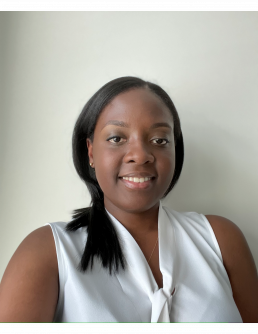
Phoebe Ogunwobi is a rising 2L at North Carolina Central School of Law. Phoebe was born and raised in London, United Kingdom. She has a MPS in Paralegal studies from The George Washington University in Washington, D.C. and a BA in Political Science from The University of North Carolina at Greensboro. Before attending law school Phoebe worked in both law and technology fields and hopes to continue to strengthen her interests in Intellectual Property and International Law.
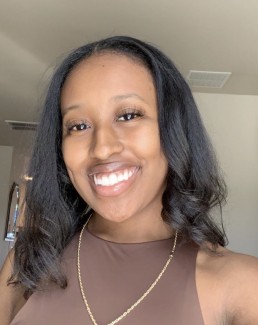
Leandre’a Scott is a rising second-year student at North Carolina University School of Law. Leandre’a graduated from East Carolina University with a Bachelor of Science in Biology. She has an interest in Intellectual Property law and aims to complete a patent clinic in the fall. Leandre’a strives to be a powerful force in anything she does and enjoys learning new things and then utilizing that knowledge for the better. Leandre’a is excited to continue to learn and grow within the IP community.
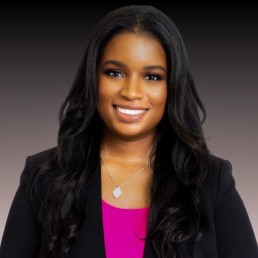
Leeandria Williams is an evening student at Southern University Law Center where she is a member of the Intellectual Property Law Association and the Fashion Law Society. She currently works in the client development department at Akerman LLP as a Senior Communications Specialist. A native of Houston, Texas, she received her undergraduate degree in journalism from Howard University in 2012. Outside of her professional and educational duties, she is an active member of Alpha Kappa Alpha Sorority, Incorporated and volunteers at various community events. She also proudly represents her hometown as the reigning Ms. Black Houston USA 2022.
[CLOSED 8/11/23] Applications Now Open: 2023-24 Wikimedia Race and Knowledge Equity Fellow
The inaugural year for the Wikimedia Race and Knowledge Equity (WRKE) Fellowship has been in a success. Now, thanks to continued generous support from our partners at the Wikimedia Foundation Knowledge Equity Fund, IIPSJ is pleased to announce that we are currently accepting applications to hire a new WRKE Fellow for the 2023-2024 year. You can view and download the full position announcement here.
Also in the coming weeks, be on the look out for resulting fellowship research and scholarship materials from our current fellow, Shreyanka Mirchandani Changaroth.
Questions and concerns may be directed to Tashia Bunch at Tashia.bunch@iipsj.org.
Blog,Innovative Thought Leadership
Wikimedia Highlights WRKE Fellow Contributions in Inaugural Year Review
Interested in learning about the “Why?” behind the Race and Knowledge Equity Fellowship program? Our partners at Wikimedia published a great piece on the Equity Fund where current IIPSJ fellow, Shreyanka Mirchandani Changaroth also received a special mention and quote:
IIPSJ’s inaugural Wikimedia Race and Knowledge Equity Fellow is Shreyanka Mirchandani Changaroth, a legal expert who has lived and worked in Singapore, Canada, and the United Kingdom, and is called to the Singapore bar. Shreyanka will lead work with IIPSJ to explore ways to impact IP policy in the US through community engagement. “We can now focus our efforts on tackling grassroots community education around intellectual property, something that goes to the very core of racial equity in the technological society,” said Shreyanka, when describing the new Fellowship.
Read their full article below.
Advocacy,Innovative Thought Leadership
Gonzalez v Google: Supreme Court Preserves Section 230, Empowers Marginalized Voices
The Empowerment of Marginalized Voices by Section 230 Preserved by the Supreme Court
Today the Supreme Court declined to disrupt the framework through which Section 230 of the Communications Decency Act promotes access to knowledge and free speech through the Internet. Finding that the plaintiffs’ complaint appears insufficient to provide a basis for their substantive claims, the Court refrained from analyzing the possible application of Section 230’s online platform immunity provisions to such claims.
“The Supreme Court’s ruling in Gonzalez vs. Google implicitly acknowledges the complexity of the issues and interests impacted by Section 230, including the need to preserve venues through which marginalized and vulnerable voices and perspectives can be heard,” said Lateef Mtima, Director of the Institute for Intellectual Property and Social Justice. “The Amicus brief filed by the Scholars of Civil Rights and Social Justice highlighted these concerns, in an effort to aid the Court in understanding the importance of Section 230 in protecting the Internet as a marketplace for diverse and non-traditional ideas, including intellectual property achievement by marginalized creators. The Court’s decision today preserves the status quo achieved by Section 230 in balancing access to knowledge and speech interests with the goal of protecting the public from harmful and malicious conduct on the Internet.”
The Supreme Court’s decision can be found here.
The Institute for Intellectual Property and Social Justice works to promote social justice in the field of intellectual property law and practice, both domestically and globally. Advocating for core principles of socially equitable access, inclusion, and empowerment throughout the IP ecosystem, IIPSJ’s work ranges broadly and includes scholarly examination of IP law from a social justice perspective; advocacy for social justice cognizance in the shaping and implementation of IP legislation and policy; initiatives to increase the diversity of the IP bar; and programs which promote greater awareness and understanding of IP protection, particularly among historically and currently disadvantaged and underserved groups, to empower them to exploit intellectual property effectively.
Blog,Advocacy,Innovative Thought Leadership
Warhol v Goldsmith: Supreme Court Upholds that Every Artist Matters, Photographer Goldsmith Protected Warhol Case
Every Artist Matters: The Supreme Court Protects Photographer Goldsmith in the Warhol Litigation
The Supreme Court decided today that the late Andy Warhol infringed upon the rights of photographer Lynn Goldsmith when he used her photograph of music legend Prince to create a silkscreen rendering of the late artist. The Court agreed with Goldsmith that Warhol’s use was not permitted under the copyright doctrine of Fair Use, which allows the use of a copyrighted work without the creator’s permission under certain circumstances.
“Today’s decision ensures the vitality of the Fair Use doctrine while protecting artists, particularly marginalized and developing artists, from the distortion of the doctrine into a tool for the misappropriation of one artist’s work by another artist with greater fame and public recognition,” said Lateef Mtima, Director of the Institute for Intellectual Property and Social Justice. “Elite patrons of the arts often gravitate to the work of famous artists, and in many situations are ignorant of the predecessor works produced by marginalized and lesser-known artists and which have been unfairly misappropriated by artists of renown. The Institute filed an amicus brief in support of photographer Goldsmith to support the proper application of the Fair Use doctrine as a critical tool to promote learning through and creative building upon artistic and literary achievement, while respecting the legitimate ownerships rights and artistic interests of creators in their work.”
The Supreme Court’s decision can be found here.
The Institute for Intellectual Property and Social Justice works to promote social justice in the field of intellectual property law and practice, both domestically and globally. Advocating for core principles of socially equitable access, inclusion, and empowerment throughout the IP ecosystem, IIPSJ’s work ranges broadly and includes scholarly examination of IP law from a social justice perspective; advocacy for social justice cognizance in the shaping and implementation of IP legislation and policy; initiatives to increase the diversity of the IP bar; and programs which promote greater awareness and understanding of IP protection, particularly among historically and currently disadvantaged and underserved groups, to empower them to exploit intellectual property effectively.
2023 HBCU IP & Tech Law Summit Recap
On March 2, 2023, IIPSJ, co-host Perkins Coie, and several sponsors, hosted the 5th Annual Microsoft Technology Summit to provide a comprehensive “diversity pipeline” experience for law students. During the Technology Summit, law students learned about new opportunities in intellectual property(IP) and technology law and policy practice.
Acting Principal Deputy National Cyber Director of the Office of the National Cyber Director Kemba Eneas Walden delivered the keynote speech to attendees alongside Founder of the HBCU IP & Tech Law Summit Charlie Bingham for a fireside chat. Acting Director Walden recounted her journey to her current role as a Hampton University graduate and addressed issues of cybersecurity that her office plans to handle as a result of President Joe Biden’s newest initiative.
The Summit consists of two key components: a full day of student-focused IP and technology law updates with networking and recognition of student academic and extracurricular achievement in these fields, including the presentation of “micro” scholarship awards paid directly to students. This year, the following were recipients of awards:
- D&I in Tech Ally Award
- Cameron Benton, NCCU
- Tech Law Policy Achievement Award
- Kayla Mitchell, 3L NCCU
- Samuel Cadet, HUSL
- Outstanding Achievement in IP Social Justice Award
- Daria Fogan, HUSL
- DeNashia Robinson, HUSL
- Brianna George, NCCU
- The IP & Tech Law Summit IP Social Engineer Award
- Michee Jacobs, HUSL
- Askhari Little, HUSL
- Tyrrell Ufot, NCCU
- The IP & Tech Law Summit IP Achievement Award
- Leandre’a Scott, NCCU
While the Summit was initially established for Howard Law students, it has since been expanded to include students at four historically black colleges and university law schools. In 2022 a pilot initiative was added to expand the scope of the program to assist students in finding internship opportunities in IP practice, and to provide internship stipends where the internships secured are uncompensated.
Some of the subjects covered during the event included data privacy, cryptocurrency, and blockchain and were presented by experts in the intellectual property field including executives from Uber, Perkins Cole, and Reed Smith hosting sessions such as:
- The Impact of Innovative Technologies on Society and the Practice of Law
- The Impact of Cryptocurrency and Blockchain on Society and the Practice of Law
- Paying it Forward: A Day in the Life of a Tech Lawyer
Find the full list of videos here.
Thank you to our sponsors!
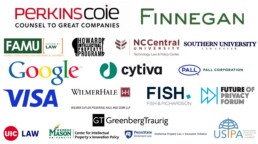
2023 IP & Social Justice CLE Recap
“IIPSJ’s annual conferences played an important role in developing a social justice perspective in intellectual property law and policy. The Institute’s mission is a vital one”- Honorable Raymond T. Chen
These were some of the key reflections to come out of the 20th Annual Intellectual Property and Social Justice CLE Conference, held on March 3, 2023. The event marked more than two decades of increasing the education surrounding the nexus of intellectual property and social justice as well as broadening the knowledge of intellectual property practitioners across the globe.
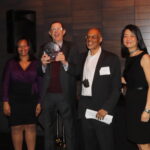
 As part of the 20th anniversary, we celebrated the program and Institute founders with awards. IP Social Justice Lifetime Achievement Awards were given to Thomas L. Irving and Steven D. Jamar.
As part of the 20th anniversary, we celebrated the program and Institute founders with awards. IP Social Justice Lifetime Achievement Awards were given to Thomas L. Irving and Steven D. Jamar.
And we honored Professor Lateef Mtima with an award as well that read:
Presented to Lateef Mtima 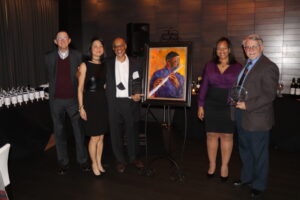
In recognition of your unwavering commitment to increasing diversity in intellectual property law and guiding the next generation of attorneys especially those from historically black colleges and universities
In appreciation of your contributions to the field of intellectual property law through your superior and thought-provoking authorship on the topic of intellectual property and social justice
In acknowledgement of your ongoing service to the intellectual property legal community through your teachings as a renowned lecturer and leadership as founder of the Institute for Intellectual Property and Social Justice.
For the CLE program, key attendee sessions included our annual IP Year in Review, social justice luncheon sessions: Unleashing American Innovation Act and Highlights from the Innovator Diversity Pilots Conference, as well as the annual Donald R. Dunner Judicial Panel, 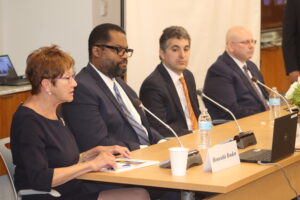 which included insights and reflections from the Honorable Leonard P. Stark, Judge with the United States Court of Appeals for the Federal Circuit, the Honorable Scott R. Boalick, Chief Administrative Patent Judge with the Patent Trial and Appeal Board in the U.S. Patent and Trademark Office, the Honorable Bryan F. Moore, Administrative Law Judge with the United States International Trade Commission, and the Honorable Susan G. Braden, Former Chief Judge (ret.) with the United States Court of Federal Claims.
which included insights and reflections from the Honorable Leonard P. Stark, Judge with the United States Court of Appeals for the Federal Circuit, the Honorable Scott R. Boalick, Chief Administrative Patent Judge with the Patent Trial and Appeal Board in the U.S. Patent and Trademark Office, the Honorable Bryan F. Moore, Administrative Law Judge with the United States International Trade Commission, and the Honorable Susan G. Braden, Former Chief Judge (ret.) with the United States Court of Federal Claims.
The IP and Social Justice CLE Conference benefits from participation from all demographics within the IP legal community: attorneys in private practice, in-house counsel corporate departments, government agencies, and public interest NGOs, as well as members of the judiciary and government officials. In addition to the keynote sessions, this year’s breakout sessions included networking and discussions with counsel from Meta, Under Armour, J.P. Morgan, 3M Company, Freddie Mac, Visa and Pall Corporation, affording many the opportunity to gauge the current climate on the field in terms of fair use, trade secrets, and adding value as in-house counsel.

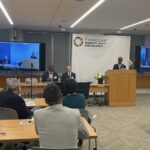

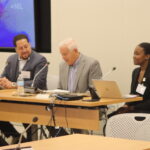
Year after year, the mantra of the conference remains the same – to expand the opportunities for minority attorneys to pursue careers and distinguish themselves in the field of intellectual property law. The Conference’s core objectives include:
● Educating minority and other IP attorneys on current developments in the law in an environment that highlights the social justice obligations of IP law.
● Providing minority and other attorneys in government, civil rights, public interest, and/or non-profit practice a free/nominal fee opportunity to develop IP practice skills.
● Providing an opportunity for experienced minority IP lawyers to demonstrate their expertise in the field to audiences they might not otherwise reach, while offering professional networking opportunities for minority and other IP attorneys.
Studies continue to confirm that African Americans and other minorities are severely underrepresented in intellectual property legal practice, notwithstanding the important contributions these communities make to intellectual property production and use in our society. Contributions from participants and speakers alike have enhanced the significance of the conference as the only intellectual property CLE program of its kind. Erika H. Arner, Managing Partner of Finnegan, Henderson, Farabow, Garrett & Dunner, LLP said, “Now more than ever we need organizations like IIPSJ, taking concrete and impactful actions to advance social justice and IP.”
The 2023 CLE sessions were:
- IP Law Year in Review – Trademark, Patent, and Copyright
- Donald R. Dunner Judicial Panel
- Highlights from the Innovator Diversity Pilots Conference
- Unleashing American Innovation Act
- Leading with IP and Adding Value to Corporations
- How Fair Is Fair Use? A Discussion About Andy Warhol Foundation v. Goldsmith
- In House Counsel Discussion on Trade Secret Law
- Updates on College Athletes NIL & Celebrities Right of Publicity
- Ethics
View the full list of videos here.
Thank you to our sponsors!

IIPSJ Attendance at the 64th World Intellectual Property Organization General Assemblies
(WIPO GA) (Geneva, 6-14 July 2023)
By Dr. Metka Potočnik (she/her/hers), Senior Lecturer in Law, Wolverhampton Law School
IIPSJ attended the 64th World Intellectual Property Organization (WIPO) General Assemblies (GA), in their capacity as the WIPO Accredited Observer. IIPSJ attended the official hearings at the WIPO Headquarters in Geneva, with the Associate Director for International Programmes, Dr Metka Potočnik, attending the length of the proceedings in person. These assemblies brought together a record number of delegates, with over 1,200 delegates in attendance, which exceeded the pre-Covid numbers of attendance in the General Assemblies. A full list of participants is available here, and all the sessions are available for viewing here.
IIPSJ previously observed several WIPO meetings online and took this GA as an opportunity to create strategic partnerships with Member States and other stakeholders, interested in creating access, inclusion and empowerment for under-represented creators and innovators in the global eco-system. IIPSJ representative attended the 10th WIPO-NGO Stakeholder Dialogue, which was organised in parallel with the 64th WIPO GA and took place on Monday, 10 July 2023, at WIPO New Building. WIPO Director General Tang and other WIPO experts met with over 40 Accredited Observers and NGOs, in discussing important issues, which require a multi-stakeholder response. The event has been placed in the spotlight for its importance, and more can be read here.
IIPSJ is aiming to contribute to the future discussions in WIPO, with the aim of building a more inclusive WIPO eco-system. The IIPSJ team are working towards a meaningful participation in the 44th Session of the Standing Committee on Copyright and Related Rights (SCCRR) (see here) and the 31st Session of the Committee on Development and Intellectual Property (CDIP) (see here). If you are interested in contributing to IIPSJ work in this space, do contact the IIPSJ directly.
Dr Metka Potočnik, IIPSJ Associate Director for International Programmes, Representing IIPSJ at the Opening of the 64th WIPO GA, Thursday, 6 July 2023, WIPO, Geneva, Switzerland Copyright: WIPO. Photo: Emmanuel Berrod. This work is licensed under a Creative Commons Attribution-NonCommercial-NoDerivatives 4.0 International License.
Dr Metka Potočnik in attendance, representing the IIPSJ at the WIPO-NGO Stakeholder Dialogue, at the 64th WIPO GA, Monday, 10 July 2023. WIPO Director General Tang addressing the WIPO NGOs and Accredited Observers. Copyright: WIPO. Photo: Violaine Martin. This work is licensed under a Creative Commons Attribution 4.0 International License.
Blog Post: IIPSJ Selects 2023-2024 Wikimedia Race and Knowledge Equity Fellows
2023-2024 Wikimedia Race and Knowledge Equity Fellows
KYRA ABRAMS
Bio:
Kyra Abrams is second year doctoral student at the University of Illinois at Urbana-Champaign. Her research interests surround data autonomy and data privacy, specifically what data autonomy would be like through a critical informatics perspective. She previously received her B.A. from UC Berkeley, where she studied interdisciplinary studies with a focus on techpolicy. She plans to become a tenure track professor at an R-1 Institution. Her hobbies include baking, reading, and listening to new music.
Project Description:
Throughout the duration of the fellowship, I aim to research the intersections between data autonomy and intellectual property and discuss critical analysis of law, policy, and court decisions. I intend to use critical content analysis as my methodology. This research will result in a whitepaper that will make recommendations to researchers and policymakers surrounding ways in which to respect data autonomy in accordance with what has and hasn’t worked for intellectual property rights in regards to marginalized communities.
AKSHAT AGRAWAL
Bio:
Akshat Agrawal is a litigator working in the courts of Delhi. He has finished his Masters in Law and Technology from the University of California, Berkeley School of Law, with pro bono honors. His LLM Thesis- “Resolving Copyright’s Distortionary Effects” pursued under the supervision of Prof. Talha Syed, will be upcoming in the Annual Review of the Berkeley Technology Law Journal, and was awarded Google’s Inclusive Copyright Thesis Award for the year 2023. Akshat is deeply interested in Copyright reform from the lens of law and political economy to ensure an inclusive cultural and knowledge policy.
Project Description:
The point of Copyright law, often misunderstood, was, is, and has always been to protect people who want to express in their lives from involuntary subjection to a market society, where their agency to express and participate in meaning-making is stomped by the requirement to meet basic needs which are only realized by thriving in a constant race for sustenance– the race of market competition. The only point of this legal tool is to enable self-preservation for all to the extent necessary to realize basic needs so that one continues to have agency and is enabled to produce expression. It is not to form a market. It is to enable, that is to protect from the inherent market logic- the logic of competing for your basic needs, irrespective of your social structural position (defined by involuntary social relations- that precede and our constitutive of our roles), with people in differential positions. Enablement in its legal scope however has a limit, especially when the enablement of one conflicts with the enablement of another- given the resource involved – speech- inherently constitutes and is constitutive of self-determination. Thus, the tool and its subsidiaries ought to be rethought- re-conceptualized in terms of scope, in terms of a continuum, or in terms of whether this tool of the right to exclude is even the best tool to achieve this goal of enablement or protection from involuntary subjection to a market society for basic needs of human flourishing. My focus, here at IIPSJ, is on proportionate enablement an idea fundamental to devising a method of fairly enabling, as well as, allowing partial amelioration of the structural losses suffered by those who have been invisible for long. The project will specifically focus on inducing this idea of proportionate enablement in knowledge distribution and shall identify modes of remedying publisher-researcher relations through better contractual clauses that are more accessible for researchers, fulfill the need for enablement for authors as well as ensure reasonable and not windfall recompense for publishers.
KAINEN BELL
Bio:
Kainen Bell is a Ph.D. student in Information Sciences at the University of Illinois at Urbana-Champaign. His research uncovers algorithmic biases and follows the work of digital rights activists and organizers of anti-surveillance campaigns in Brazil who protest facial recognition camera initiatives. Kainen’s goal is to learn how Afro-Brazilian communities collaborate to resist and prevent the abuse of surveillance technologies. He holds bachelor’s degrees in social work and business administration from the University of Washington in Seattle, and a master’s degree in social work from Columbia University in New York. Prior to his Ph.D., Kainen completed a Fulbright Research Fellowship in Brazil.
Project Description:
Through the support of the Wikimedia Race and Knowledge Equity (WRKE) Fellowship Program I will dedicate my time into creating resources, documents, and publications to support the efforts of the national anti-surveillance campaign in Brazil (#TireMeuRostoDaSuaMira). Over the past year I have been in conversation with Brazilian digital privacy rights activists and human rights organizations, and they have requested information about organizing efforts in the U.S. such as privacy protection laws created to ban or restrict the uses of facial recognition Technologies and collection of biometric data. They hope to use this information as a reference point for their own local organizing efforts. Through this project I strive to create a bi-directional exchange of knowledge and resources between these global communities.
ALBERT FOX CAHN
Bio:
Albert Fox Cahn is the Surveillance Technology Oversight Project’s ( S.T.O.P.’s) founder and executive director. He is also a Practitioner-in-Residence at N.Y.U Law School’s Information Law Institute and a fellow at the Harvard Kennedy School’s Carr Center For Human Rights Policy, Yale Law School’s Information Society Project, Ashoka, and TED. Albert received his J.D., cum laude, from Harvard Law School (where he was an editor of the Harvard Law & Policy Review), and his B.A. in Politics and Philosophy from Brandeis University.
Project Description:
I will use the fellowship as an opportunity to research the impact of library content filtering in blocking access to knowledge, particularly emerging threats to open inquiry in K-12 school libraries. Content filtering debates have existed for many years, but they take on new urgency in the post-Dobbs era. Working with librarians in states that seek to radically criminalize abortion care, I can identify how growing political and legal pressure is restricting library-based internet access to medically accurate information about abortion and other controversial topics. I would also examine the discriminatory impact of such restrictions, highlighting how restrictions in library-based internet compound the digital divide. For deliverables, the project would provide (at a minimum) a whitepaper geared towards lay readers and the press, using S.T.O.P.’s proven capacity to garner significant media attention. Additionally, I could create public explainer materials for the web and social media, distilling the key themes into infographics and other easily shared materials. Time permitting, I would also create additional materials targeted at supporting impacted librarians.
SHUBHA GHOSH
Bio:
Shubha Ghosh is Crandall Melvin Professor of Law at Syracuse University College of Law where he teaches and researches in the fields on intellectual property commercialization and technology law. His scholarship focuses on exhaustion of intellectual property rights, biotech and biomedical patenting, and issues of distributive justice. He earned a BA from Amherst College, a PhD from Michigan, and a JD from Stanford.
Project Description:
My starting point for my work as a Fellow is to develop an overlooked criticism of the Bayh-Dole Act: its overemphasis on universities and its exclusion of other institutions that can serve to channel creative energies to the public. Elementary schools, secondary schools, magnet schools, young entrepreneurs’ clubs, art schools—each engage students in developing their creativity and inventiveness. Yet, there is little engagement with the debates over intellectual property, crowd sourcing, and follow-on innovation that pervade many universities. Often lessons about intellectual property are reduced to warnings against downloading or arousing fear of Internet piracy. Less attention is paid to harnessing creativity and invention to the values of exchange and transferring knowledge. Several initiatives from the Wikimedia Race and Knowledge Equity project could remedy these gaps. First, a comprehensive state by state study of programs at the elementary and secondary school levels that target creativity and inventiveness among students. Identified programs could be studied to see how they engage with science, technology, engineering, arts and mathematics. (STEAM) curricula. Having identified the programs, my fellowship work would develop a survey to identify the needs of several of these programs with particular attention to open questions of intellectual property, knowledge sharing, and distribution of resources for teaching and encouraging innovation. These questions will serve as the basis for identifying policy reforms at the state and federal levels, building in part on the promise of the Bayh-Dole Act while reforming its vision and policy reach beyond the universities. White papers would be the work product of this extensive research with the Wikimedia imprimatur and my scholarly skills targeting key policy figures at the federal and state levels to alert them about the overlooked potential for students to learn about the links among creativity, commercialization, and public dissemination. Wikimedia White Papers on this topic will educate policymakers about programs to promote innovation outside the university ecosystem and their needs as we create new knowledge ecosystems.
OROMA WOMEODU
Bio:
R. Oroma Womeodu earned a J.D. from Tulane University Law School and a Bachelor’s Degree in Political Science from Wingate University. During her time at Tulane she acted as Managing Editor of Tulane’s Journal of Technology and Intellectual Property where she fostered an interest in and focus on intellectual property protection for Black fashion designers and similarly marginalized creator groups. She is committed to ensuring all creators are afforded adequate access to IP protection and hopes to one day assist in policymaking that contributes to this goal in America as well as her home nation of Nigeria. She spends her free time on the tennis court coaching players ranging from beginner to advanced.
Project Description:
I will be working with Dr. John R. Whitman as a research assistant on his book Making the Most of Prison. In this role, my deliverables will include creating a white paper on current impediments for the copyright registration process for people in prison, researching and proposing an adjusted copyright registration process for imprisoned people, as well as creating a directory of attorneys and firms that do work in furtherance of protecting incarcerated people’s intellectual property and potentially organizing a panel discussion including these practitioners.
Blog Post: IIPSJ Written Statement Submitted to WIPO
IIPSJ Written Statement to the 44th Session of the WIPO Standing Committee on Copyright and Related Rights (SCCR)
November 6-8, 2023
IIPSJ is a WIPO Accredited Observer, seated in the United States, focused on matters domestically, and internationally. IIPSJ examines intellectual property laws and policies to see where full participation of disadvantaged, excluded, and marginalized groups may need redressing. IP systems should offer access, inclusion, and empowerment for all, not only a select group. At this time, we would like to add a few observations of general nature, to the 44th SCCRR Agenda Item Number 8.1 on the Proposal for Analysis of Copyright Related to the Digital Environment.
The digital environment offers both opportunities, and risks for the creatives, sharing their works online. Effective IP protection and exploitation must be considered against the interests of various groups of stakeholders. There is evidence across jurisdictions, that not all artists, creatives, or musicians, are making comparable income, and that some groups are marginalized by the IP systems. In 2021, the UK Intellectual Property Office conducted a survey, finding that women make from music seven thousand pounds less than men, who on average make twenty thousand pounds a year.i In 2022, a larger sample investigating the earnings by Black artists found, that on average, Black women make twenty-five percent less than white women.ii In 2023, evidence found that Black musicians with disabilities, have fewer opportunities in the sector still.iii
IIPSJ has an extensive network of scholars and sister organizations, who have explored the effects of IP systems on different groups of inventors and creatives, and they agree that the personal characteristics, such as gender(s), race, nationality, age, disability, class (or other), matter when it comes to access and enjoyment of IP systems (an intersectional approach). Making art, as making music, is a social activity, where conditions in which the individuals create, matter. WIPO’s commitment to an inclusive IP regime is demonstrated, among other, by its activities under “Intellectual Property, Gender and Diversity” and its current WIPO IP Gender Action Plan (IP GAP). IP GAP’s vision of gender equality will rely on research “to identify the scope and nature of the gender gap in IP and ways to close the gap”.iv IIPSJ would add to the action plan and stress that firstly, WIPO IP GAP commitments should be implemented in other WIPO Studies, Analysis, and Action Plans, across all Divisions (such as the here discussed Agenda #8.1), and secondly, that this research must be intersectional, to avoid any correctives which could continue to ignore artists, creatives, or musicians, who are currently disadvantaged, excluded and marginalized by the creative industries.
There cannot be a socially just approach towards building an inclusive IP system, if we focus ‘on gender alone,’ or operate under the assumption that the digital space is full of opportunities, equal to all. There is ample research to demonstrate that not all artists or creatives, have equal access or opportunities, to share their innovation and imagination with the world, to the mutual benefit of all in the society.
Prepared by Dr. Metka Potočnik
IIPSJ Associate Director for International Programs
i Intellectual Property Office, ‘Music creators’ earnings in the digital era’ (2021). Available: https://www.gov.uk/government/publications/music-creators-earnings-in-the-digital-era.
ii Black Lives in Music (BLIM UK), ‘Being Black in the UK Music Industry: Music Creators Part I’ (2021). Available: https://blim.org.uk/report/. For general research on women in UK music: Vick Bain, ‘Counting the Music Industry: the Gender Gap; A study of gender inequality in the UK Music Industry’ (2019). Available: https://vbain.co.uk/research/.
iii Black Lives in Music (BLIM UK), ‘Unseen. Unheard. Race and Disability – Black disabled experience in the UK’s music industry’ (2023). Available: https://blim.org.uk/report-unseen-unheard/.
iv World Intellectual Property Organization, ‘WIPO Intellectual Property (IP) and Gender Action Plan: the Role of IP in Support of Women and Girls’ (2022) 4. Available: https://www.wipo.int/women-and-ip/en/4.
Blog Post: IIPSJ Attendance at the 44th WIPO Standing Committee on Copyright and Related Rights (SCCR)
IIPSJ Attendance at the 44th World Intellectual Property Organization Standing Committee on Copyright and Related Rights (WIPO SCCR)
Geneva, 6-8 November 2023
IIPSJ attended the 44th World Intellectual Property Organization (WIPO) Standing Committee on Copyright and Related Rights (SCCR), in their capacity as the WIPO Accredited Observer. IIPSJ submitted a written statement and attended the official hearings at the WIPO Headquarters in Geneva, with the Associate Director for International Programs, Dr. Metka Potočnik, attending the length of the proceedings in person. These assemblies brought together delegates from Member States in person, and online, and a significant number of observers. A full list of participants is available here, and all the sessions are available for viewing here.
IIPSJ attended the WIPO General Assemblies in July 2023, and at this latest meeting continued to grow strategic partnerships with Member States and other stakeholders, interested in creating access, inclusion and empowerment for under-represented creators and innovators in the global eco-system. Delegates at the SCCR discussed the two standing issues (broadcasting and limitations and exceptions) and some other matters, such as copyright in the digital environment. Full agenda can be viewed here. On copyright in the digital environment IIPSJ representative offered an oral intervention, highlighting the need to align the work of the SCCR with the work WIPO has done in its Intellectual Property Gender Action Plan, which was adopted in 2023 (see here). Furthermore, Dr. Potočnik stressed that all research and evidence collection from artists and creators must be intersectional, focusing not only on all genders, but also race, class, age, (dis)ability of the creators, inclusive IP systems are meant to protect. The written statement can be viewed here (page 3), and the oral intervention is available here (at 02:41:17).
IIPSJ will contribute to future discussions in WIPO, with the aim of building more inclusive IP systems across different jurisdictions. The IIPSJ team are working towards a meaningful participation in the 31st Session of the Committee on Development and Intellectual Property (CDIP) (see here), whilst awaiting the confirmation of the 2024 schedule, where further work will be presented. If you are interested in contributing to IIPSJ work in this space, do contact the IIPSJ directly.

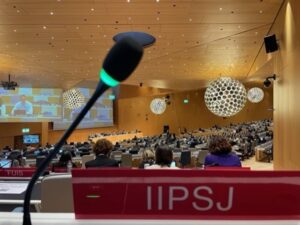
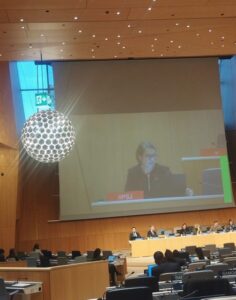
Blog Post: 2023 End of Year Recap
2023 End of Year Recap
As we close another successful year, we want to highlight some of the impact of your contributions for 2023:
The Nexus of Social Justice and Intellectual Property
- Our monthly newsletters (https://iipsj.org/latest-news/) provided readers with timely and relevant recent developments in intellectual property law that have particular impacts on diverse communities and the concept of social justice, including:
- The Supreme Court Decision in Gonzalez v. Google (https://iipsj.org/gonzalez-v-google/), which IIPSJ Founder and Director Lateef Mtima noted “implicitly acknowledges the complexity of the issues and interests impacted by Section 230, including the need to preserve venues through which marginalized and vulnerable voices and perspectives can be heard.”
- The Supreme Court Decision in Warhol v. Goldsmith (https://iipsj.org/warhol-v-goldsmith/), which IIPSJ Founder and Director Lateef Mtima noted “ensures the vitality of the Fair Use doctrine while protecting artists, particularly marginalized and developing artists, from the distortion of the doctrine into a tool for the misappropriation of one artist’s work by another artist with greater fame and public recognition.”
- Public Knowledge’s paper entitled Streaming in the Dark: Where Music Listeners’ Money Goes – and Doesn’t, which explained how billions in music subscription revenues “trickle up” into the pockets of “Rightsholding Middlemen,” leaving comparatively little for the artists themselves (https://publicknowledge.org/policy/streaming-in-the-dark-where-music-listeners-money-goes-and-doesnt/).
- Working with our various academic partners, IIPSJ organized the ninth annual IP MOSAIC Conference, where we created a space for IP scholars, political activists, practicing attorneys, community organizers, and policy makers to discuss papers and collaborate on various topics of IP empowerment. (https://iipsj.org/programs/ip-mosaic/) The theme was IP Rights and Wrongs: Advancing Social Justice and Ethics.
Diversifying the Legal Field and the Intellectual Property Bar
- For two decades, the IIPSJ IP and Social Justice CLE program (https://iipsj.org/2023-ip-social-justice-cle-recap/) has provided a venue through which to showcase minority and women IP attorneys. The 20th Annual IP & Social Justice CLE program (https://youtube.com/playlist?list=PLpjeDSnL4i4lEMJf0N-48iqiZYF-CBvSb) explored the latest developments in IP law, including the relevant social justice impacts, strategies, and opportunities for enhancing the social efficacy of the IP legal regime.
- Working with our various academic partners and event sponsors, IIPSJ worked with Charlie Bingham to organize the 5th Annual HBCU IP & Tech Law Summit (https://iipsj.org/programs/hbcu-ip-tech-law-summit/), where the audience was treated to leading technology lawyers discussing Artificial Intelligence, Data Security and Privacy, Tech in Sports & Entertainment, Blockchain, Cybersecurity and more.
- In August, IIPSJ participated in the United States Intellectual Property Alliance (USIPA) Increasing Diversity in Innovation (IDII) (https://increasingdii.org/) 2nd Annual Conference, where companies, law firms, universities, the USPTO and the U.S. Department of Commerce in the came together to discuss increasing diversity in the U.S. innovation ecosystem, and how they are working to transform it. IIPSJ Founder and Director Lateef Mtima shared his insight by speaking in the “What Can Universities Do?” panel.
- With the goal of highlighting minority IP attorneys to serve as role models to encourage the pursuit of careers in IP practice, IIPSJ continued our Attorneys of Color in IP interview series (https://iipsj.org/blog-post-ip-attorney-interviews/), which featured interviews with Professor Daryl Lim, and trademark and fashion attorney Mariessa Terrell.
Advocacy for Participation in the Intellectual Property System
- IIPSJ Founder and Director Lateef Mtima co-authored and submitted an amicus brief to the Supreme Court of the United States regarding Gonzalez v. Google (https://iipsj.org/amicus-brief-gonzalez-v-google/), which cited the IIPSJ publication Diversity and Inclusiveness in the Online Creator Economy.
- In April, IIPSJ attended (https://mailchi.mp/iipsj/wrke-fellowship-update-ip-sj-article-events-of-interest?e=6f3c6b845f) Race + IP ’23 (https://raceipconference.org/2023/), where audiences had the opportunity to hear from a number of illustrious Critical Race IP scholars, including IIPSJ Founder and Director Lateef Mtima, who talked about a forthcoming book (https://www.cambridge.org/core/books/cambridge-handbook-of-intellectual-property-and-social-justice/981BDAF47503507CCB43ED96FDFADF1A) on IP and social justice. The theme of this year’s conference was “The Imperial Scholar Revisited,” which covered wide variety of topics, such as traditional knowledge, the history of music, abolitionism, inclusion, institutionalism, and their adjacency to IP.
- In July, IIPSJ Associate Director for International Programs, Dr. Metka Potočnik, attended the 64th World Intellectual Property Organization (WIPO) General Assemblies (GA) (https://iipsj.org/iipsj-attendance-at-the-64th-world-intellectual-property-organization-general-assemblies/) at the WIPO Headquarters in Geneva and represented IIPSJ as a WIPO Accredited Observer. These assemblies brought together a record number of delegates, with over 1,200 delegates in attendance, which exceeded the pre-Covid numbers of attendance in the General Assemblies.
Community Outreach that Empowers Creators of Color to Share, Protect, and Monetize Their Work
- IIPSJ continued our Intellectual Property for the People Series (https://iipsj.org/programs/ip-for-the-people-open-academy/) to help creators, inventors, and entrepreneurs from communities of color understand and explore the rights and resources available to them. This year’s series included the following free, one-hour webinars: Name/Image/Likeness Rights, IP Basics for Creators, IP for Entrepreneurs, USPTO Provides Trademark Basics for Entrepreneurs, Starting/Funding Your Business, and Business Agreements/Contracts. Replays of all sessions are available on our YouTube page (https://www.youtube.com/playlist?list=PLpjeDSnL4i4mPRA4CX44FjLcSUv1CyMug). The series will continue to run in 2024, with necessary topics such as filing patent and trademark applications, and how development of IP works within the context of a business.
- IIPSJ’s inaugural Wikimedia Race and Knowledge Equity (WRKE) Fellow (https://iipsj.org/wikimedia-race-and-knowledge-equity-fellowship/), legal expert Shreyanka Mirchandani Changaroth, finished the one-year, full-time fellowship in September, during which time she lead work with IIPSJ to explore ways to impact IP policy in the U.S. through community engagement (https://iipsj.org/wikimedia-highlights-wrke-fellow-contributions-in-inaugural-year-review/). As we look ahead to 2024, IIPSJ is pleased to announce the 2023-2024 Wikimedia Race and Knowledge Equity (WRKE) Fellows: Kyra Abrams, Akshat Agrawal, Kainen Bell, Albert Fox Cahn, Shubha Ghosh, and Oroma Womeodu (https://iipsj.org/2023-2024-wrke-fellows/).
Blog,IP Mosaic Conference,Leading IP Discourse
Mosaic 2023 Event Recap
On October 27-28, 2023, IIPSJ, along with University of Illinois Chicago Law, hosted the 9th Annual IP Mosaic Conference with the theme IP Rights and Wrongs: Advancing Social Justice and Ethics.
During the conference, attendees were able to listen to two plenary panel presentations which are saved on our Youtube page. The presentations were:
International IP and Climate Change
Moderator: Metka Potočnik, Senior Lecturer in Law, University of Wolverhampton, Law School and Director of The F-List for Music CIC
Panelists:
- Peter Oksen, World Intellectual Property Organization, Global Challenges Division
- Antony Taubman, World Trade Organization, Intellectual Property Division
Copyright Behind Bars: At the Intersection of Systemic Incarceration and IP Social Justice
Moderator: John R. Whitman, Ph.D., author, Executive Director, Museum for Black Innovation and Entrepreneurship
Panelists:
- Jeanie Austin, Ph.D., Librarian, Jail and Reentry Services, San Francisco Public Library
- Wendy Jason, Founder and Director, Justice Arts Coalition, nonprofit national network for those creating art in and around the criminal justice system (invited)
- Doran Larson, Ph.D, Professor of Literature, Hamilton College and Founder and Co-Director of the American Prison Writing Archive
- Viva R. Moffat, Professor of Law, Co-Director, Intellectual Property and Technology Law Program, Sturm College of Law, University of Denver, advocating for IP rights for currently/formerly incarcerated and society
- Fury Young, Founder and Co-Executive Director, Die Jim Crow, the first nonprofit record label for currently and formerly incarcerated artists
In addition, participants were able to present their papers and ideas for papers and receive feedback from attendees on their ideas. These five separate paper presentation panels were:
- IP & Tech
- 2023 Ben Liu Scholars
- The Role of Patent Law: from Technicalities to Social Correctives?
- IP and Social Action: Ways to Empowerment?
- Music Creators and Society: System Reboot or Reform to Building Better Partnerships?
We hope you can join us this fall as we celebrate the 10th Annual IP Mosaic Conference at in person and online at Marquette University Law School (dates TBA).
Press Release: Institute for Intellectual Property and Social Justice Expands Board, Goals
Press Release: Institute for Intellectual Property and Social Justice Expands Board, Goals
The Institute for Intellectual Property and Social Justice, a twenty-one year old organization founded by Howard University law professor, Lateef Mtima, has expanded its board to include twelve thought leaders in IP legal practice and policy. The expansion will facilitate IIPSJ’s ability to focus nationally on its goal of promoting social justice through the most valuable property currently in existence: intellectual property.
“IIPSJ has been able to accomplish quite a bit from a modest beginning,” said Mtima. “It has helped to foster a more socially responsible and inclusive conversation about the role of IP protection in our society. Through the capabilities and insights of this very distinguished board IIPSJ will be able to build significantly upon these accomplishments.”
The expanded board will be chaired by Idris Mckelvey, Lead Patent Counsel at the Estée Lauder Companies Inc, and an alumnus of Howard University School of Law (2005). Its new members include:
Jeremiah Chan, Esq., Associate General Counsel – Meta Platforms
Joseph Drayton, Esq., Partner – Proskauer Rose LLP
Izu Emeagwalli, Esq., Executive Director and Assistant General Counsel – J.P. Morgan
Oliver St. Clair Franklin CBE, Honorary British Consul for Greater Philadelphia
Jonathan Goins, Esq., Principal – Lewis Brisbois Bisgaard & Smith LLP
Philip Hampton, Esq., Partner – Polsinelli P.C.
Suzanne Harrison, Principal – Percipience LLC
Tom Irving, Esq., Partner – The Marbury Law Group, PLLC
Esther Lim, Esq., Partner – Finnegan, Henderson, Farabow, Garrett & Dunner, LLP
Lita Rosario-Richardson, Esq., Shareholder, Chair Entertainment Law Group – Shulman Rogers, P.A.
Tony Sebro, Esq., General Counsel – Change.org
Karyn Temple, Esq., Senior Executive Vice President and Global General Counsel – Motion Picture Association
“We are looking forward to our first expanded board meeting on April 4,” said Mckelvey. “The recruitment process generated a lot of enthusiasm for using this tool, intellectual property, which is not often associated with social justice, to create a more just and prosperous society.”
Blog Post: The National Strategy for Inclusive Innovation – A Framework for IP Social Justice
The National Strategy for Inclusive Innovation: A Framework for IP Social Justice
On May 1, 2024, the United States Patent and Trademark Office announced the adoption of the National Strategy for Inclusive Innovation (NSII). The NSII was developed by the USPTO with support from the Council for Inclusive Innovation (CI2), and “is based on a vision for United States leadership in innovation that will lift communities, grow the economy, create quality jobs, and address global challenges.” The USPTO intends to accomplish the vision set forth in the NSII by increasing participation in science, technology, engineering, and mathematics (STEM) and innovation, both generally and through related entrepreneurship, and thereby “unleash every American’s ability to fully take part in the innovation economy.”
The NSII embodies a bold initiative through which to pursue the mandate of the Unleashing American Innovators Act, signed into law by President Biden on December 29, 2022, and to achieve the social justice obligations and effects integral to an effective intellectual property ecosystem. While promoting IP endeavor has been at the forefront of American advances in science and technology since our nation’s inception, as noted in the NSII, leading research reveals that participation in the American innovation ecosystem is “exceptionally unequal”. A recent report by the USPTO indicates that only 12.8% of all inventors named on U.S. patents are women, while a Harvard study revealed that White Americans are three times more likely to become inventors than Black Americans, and that the children of the top 1% of income earners are 10 times more likely to become inventors than children with family incomes below the median.
The NSII represents a targeted, comprehensive strategy for ensuring that all Americans enjoy meaningful opportunities for access to, inclusion in, and empowerment through the IP and innovation ecosystem. The NSII is structured around four “cornerstone” goals, each addressing “a critical inflection point in the lives of potential innovators”: (i) Inspiring New Generations of Innovators; (ii) Educating and Empowering Innovators; (iii) Advancing Inclusive Innovation; and (iv) Bringing Innovation to Market. Based upon these cornerstone goals, the NSII includes a range of specific policy recommendations, from enhancing efforts to standardize and scale youth innovation education to expanding initiatives through which to leverage and increase commercialization support and tech transfer to benefit all American communities.
Through the NSII, the USPTO takes a leadership role in meeting the great challenge of confronting the demographic, economic, and geographic under-representation of citizens in the innovation economy. Every American must enjoy the opportunity and the privilege to contribute to the innovation storehouse, and to achieve this the NSII seeks to address every underserved cohort, including rural regions, veterans, elder communities, persons with disabilities, those who have educated themselves in non-elite or non-traditional settings, including trade schools, community colleges, or work experiences, as well as those who are under-resourced. To cultivate our nation’s full potential, “the United States must make sustained investments in its most important asset—the American people—by ensuring that every individual—irrespective…of ethnicity, gender, disability, or location—has access to the resources and opportunities to innovate.”
IIPSJ commends the National Strategy for Inclusive Innovation and its social justice-oriented perspective towards the American innovation ecosystem. We hope you will review the full report at https://www.uspto.gov/initiatives/equity/national-strategy-inclusive-innovation.
Blog Post: IIPSJ Oral Statement to WIPO
IIPSJ Oral Statement to the 65th World Intellectual Property Organization (WIPO) General Assemblies (GA)
July 9-17, 2024
Honorable Chair, Director General, distinguished Delegates, thank you for the floor.
Institute for IP and Social Justice stresses that IP systems must balance economic and
social aims equally, in a manner that offers access, inclusion, and empowerment for all.
WIPO’s IP Gender Action Plan should include initiatives designed to also address
intersectional discrimination and misogyny in the creative and innovative ecosystems. We
stress the need to move away from projects that prioritize only “getting more women into the
system.” Intersectional discrimination and misogyny are systemic barriers that must be
corrected. IP laws must form part of the solution.
Efforts to address intersectional discrimination must also be at the heart of data collection
projects. More should be done to develop methodologies for non-registrable IP rights
(mainly, copyright); and methodologies beyond the mere binary counting of genders, so that
we also include gender-diverse people.
For more, please see our written statement.
Prepared by Dr. Metka Potočnik
IIPSJ Associate Director for International Programs
Blog Post: IIPSJ Attendance at the 65th World Intellectual Property Organization General Assemblies
(WIPO GA) (Geneva, 9-17 July 2024)
By Dr. Metka Potočnik (she/her/hers), Senior Lecturer in Law, Wolverhampton Law School
IIPSJ attended the 65th World Intellectual Property Organization (WIPO) General Assemblies (GA),
in their capacity as the WIPO Accredited Observer. Now attending regularly, IIPSJ participated in the
official hearings at the WIPO Headquarters in Geneva, with the Associate Director for International
Programs, Dr. Metka Potočnik, attending the length of the proceedings in person. These
assemblies brought together another record number of delegates. A full list of participants is
available here, and all the sessions are available for viewing here.
IIPSJ attended the GA sessions for the second time in Geneva, after having observed several WIPO
meetings online, since 2020. IIPSJ continues to take the GA meetings as an opportunity to build
strategic partnerships with Member States and other stakeholders, interested in creating access,
inclusion and empowerment for under-represented creators and innovators in the global eco-
system. IIPSJ contributed to the discussion in writing (see here), and in the session (view here, at
02:31:12).
IIPSJ representative, Dr. Metka Potočnik, also attended the 11th WIPO-NGO Stakeholder Dialogue,
which was organised in parallel with the 65 th WIPO GA and took place on Thursday, 11 July 2024, at the WIPO New Building. WIPO Director General Tang, Deputy Director Edward Kwaka and other WIPO experts met with over sixty Accredited Observers and NGOs, in discussing global challenges, which require a multi-stakeholder response. IIPSJ sent their question in advance, and continued informal conversations with WIPO and several interested stakeholders for the duration of the GA meetings. The event has been placed in the spotlight for its importance, and more can be read here.
IIPSJ is continues to contribute to future discussions in WIPO, with the aim of building a more inclusive WIPO eco-system. The IIPSJ team are working towards a meaningful participation in the 46th Session of the Standing Committee on Copyright and Related Rights (SCCRR) (see here, 2025 dates to be confirmed) and the 33rd Session of the Committee on Development and Intellectual Property (CDIP) (see here). If you are interested in contributing to IIPSJ work in this space, do contact the IIPSJ directly.
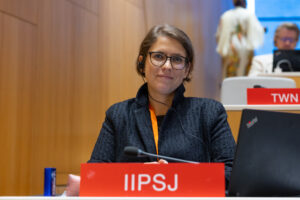

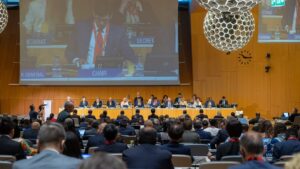
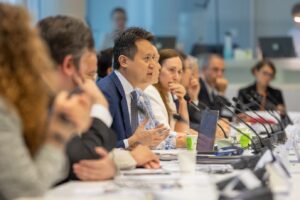
Blog Post: WRKE Fellow Project Update
Wikimedia Race and Knowledge Equity (WRKE) Fellow Project Update
Kainen Bell, PhD Candidate at the University of Illinois – Urbana Champaign, and 2023/2024 WRKE Wikimedia Foundation Fellow, recently completed the 2024 Summer Global Policy Fellowship at the Institute for Technology and Society (ITS) in Rio De Janeiro, Brazil. He was one of ten researchers selected worldwide who share common interests in technology and its interfaces with law, and who want to expand their knowledge about the Brazilian technological context.
The intensive four-week program took place in July, and included a series of meetings with ITS partners in Rio de Janeiro, Brasília, and São Paulo including the Ministry of Science, Technology, and Innovation, Brazil’s National Data Protection Agency, NuBank, The Center for Security and Citizenship Studies (CESeC), and others concerned with AI Development and Regulation in Brazil. Bell also presented a lecture titled, “AI Ethics: Regulating Facial Recognition in Brazil” at the International School of Law and Technology offered by ITS in partnership with the University of Montréal.
Bell will remain in Brazil conducting his dissertation research which uncovers algorithmic biases and follows the work of digital rights activists and organizers of anti-surveillance campaigns in Brazil who protest facial recognition camera initiatives. His goal is to learn how Afro-Brazilian communities collaborate to resist and prevent the abuse of surveillance technologies in their neighborhoods.
The findings from his dissertation fieldwork and ITS Global Policy Fellowship contribute towards his WRKE fellowship project, which is to dedicate time into creating resources, documents, and publications to support the efforts of the national anti-surveillance campaign in Brazil.
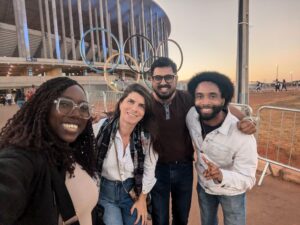
(Kainen Bell on the far right with other ITS Global Policy Fellows outside of the National Soccer Stadium in Brasília, Brazil)
2024 IP & Social Justice CLE Recap
“IIPSJ’s annual conferences played an important role in developing a social justice perspective in intellectual property law and policy. The Institute’s mission is a vital one”- Honorable Raymond T. Chen
For the 21st Annual IP and Social Justice CLE Program, key attendee sessions included our Annual IP Year in Review, Social Justice Luncheon Plenary Sessions: Increasing Diversity in Innovation and HUSL-ing In-house at JPMC, as well as the Annual Donald R. Dunner Judicial Panel, which included insights and reflections from the Honorable Leonard P. Stark, Judge with the United States Court of Appeals for the Federal Circuit, the Honorable Patricia Tolliver Giles, Judge with the United States District Court for the Eastern District of Virginia, the Honorable Scott R. Boalick, Chief Administrative Patent Judge with the Patent Trial and Appeal Board in the U.S. Patent and Trademark Office, and the Honorable Susan G. Braden, Former Chief Judge (ret.) with the United States Court of Federal Claims.
The IP and Social Justice CLE Conference benefits from participation from all demographics within the IP legal community: attorneys in private practice, in-house counsel corporate departments, government agencies, and public interest NGOs, as well as members of the judiciary and government officials.
The IP and Social Justice CLE Program was co-hosted by law firm Finnegan, Henderson, Farabow, Garrett & Dunner LLP, with Finnegan Partner & Chief Diversity and Inclusion Officer Esther H. Lim being presented with the IP Social Justice Lifetime Achievement Award.
The 2024 CLE sessions were:
- Key Highlights of 2023: Patent, Trademark, and Copyright
- Donald R. Dunner Judicial Panel
- Increasing Diversity in Innovation
- HUSL-ing In-house at JPMC
- Inclusive Innovation and Cutting-Edge IP Strategies
- How to Help the Trial Court Judge Understand Patent Law
- Embracing the Future of AI, Cybersecurity, and Privacy
- Updates on College Athletes’ NIL & Celebrities’ Right of Publicity
- Ethics
View the IP and Social Justice CLE session videos here.
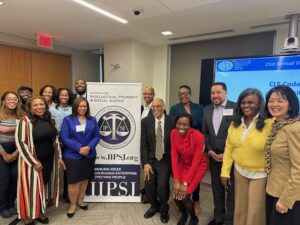
Thank you to our sponsors!
![]()


![]()

